DEVELOPING


DEVELOPING






























PPC is an iconic material and solutions provider of quality and consistent cement, aggregates, ready-mix and fly ash. We also provide technical support to our customers. PPC’s story stretches back over 130 years to where we were first incorporated on the outskirts of Pretoria in 1892. As the first cement plant in South Africa, we have established ourselves as a resilient organisation by adapting to ever-changing economic, operating and political environments. This Sub-Saharan brand continues to grow beyond South African borders into Botswana, Zimbabwe, Democratic Republic of Congo and Rwanda where our footmark extends. We are proud to be a leading provider of quality building materials and solutions to empower people to experience a better quality of life.










PPC is honoured to be making contributions to the quality of education through our strength beyond initiatives. One such initiative has been the construction of Redeemed Kids Kingdom Pre-school, providing a safe and conducive learning environment for early childhood development. Moreover, through our SUREACADEMY Technical Skills Centre we have implemented job creation programs, a Graduate Development Program that offers work experience opportunities for recent graduates and a Yes Program initiative that offers employment opportunities to unemployed youth. At the centre of our 100% quality products, PPC believes in quality workmanship, hence we have trained at least 4 000 brick makers and provided CETA Accredited bricklaying, plastering and construction management training courses to at least 200 SMMEs. Through these Strength Beyond initiatives PPC is playing a vital role in improving the quality of education, fostering job creation, and promoting skills development for the betterment of communities and an improved quality of life.


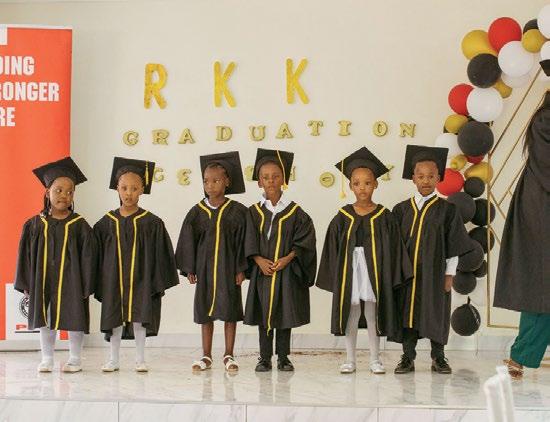
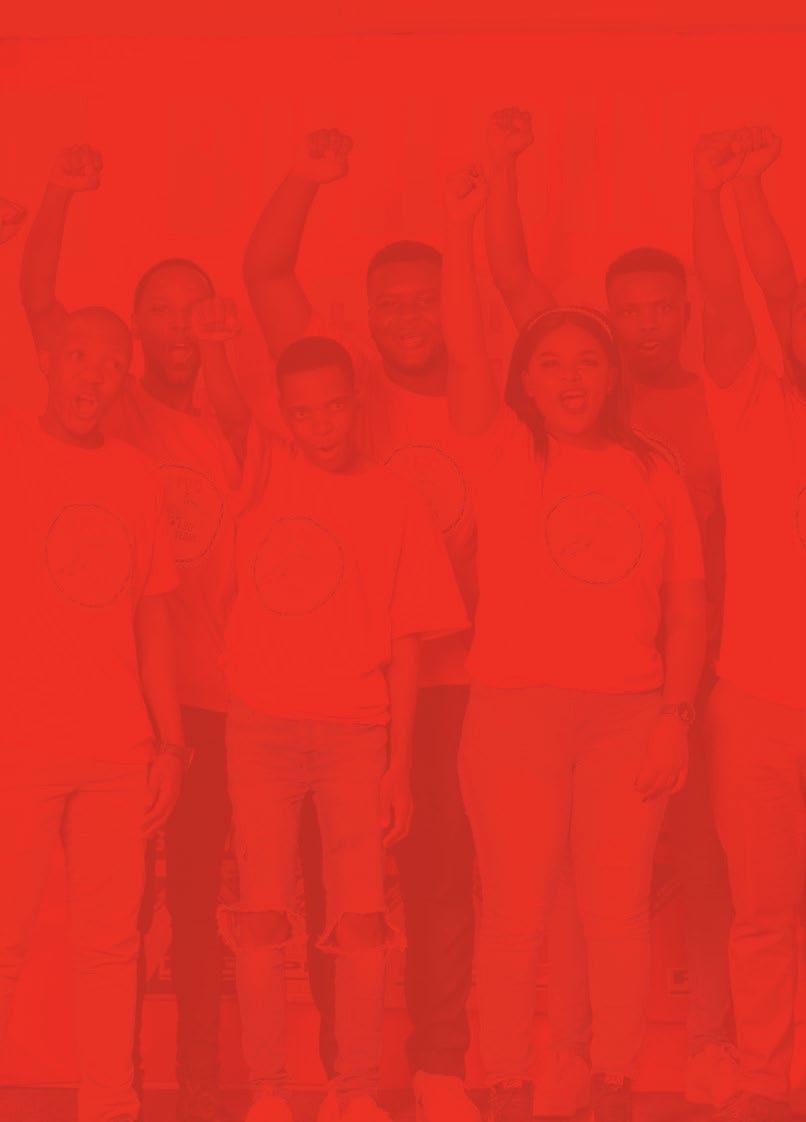
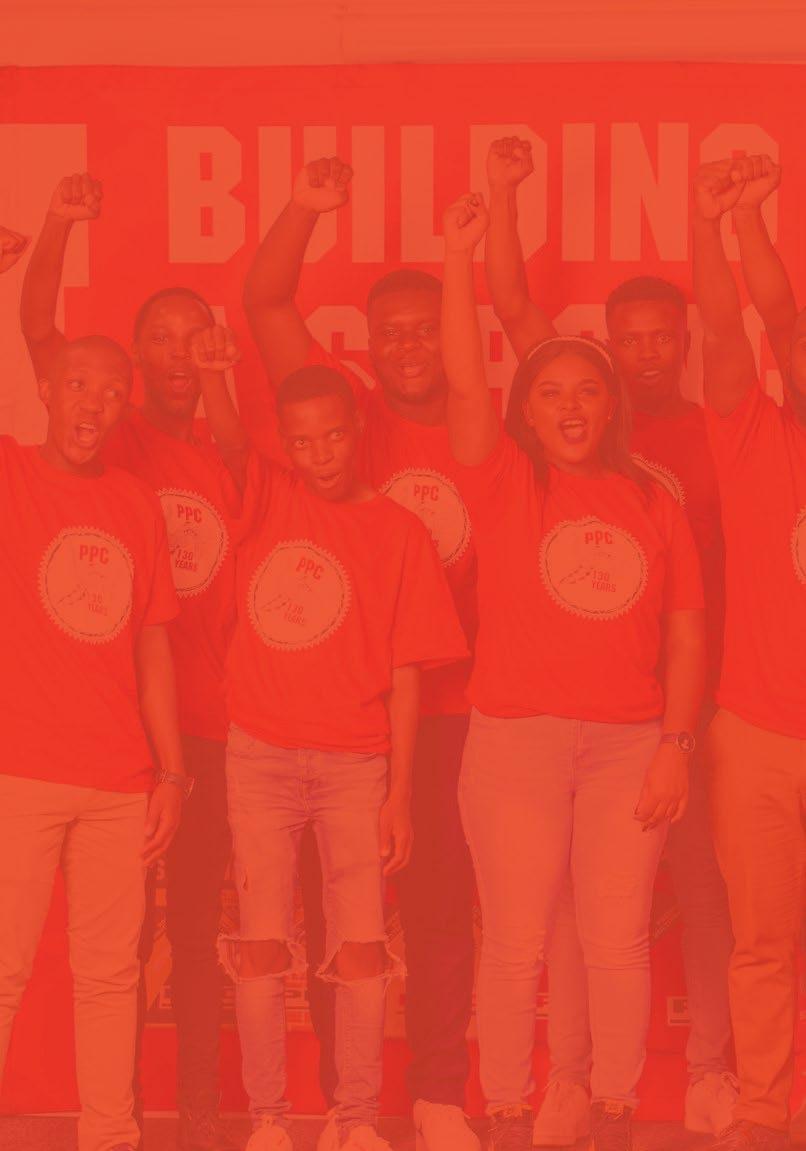
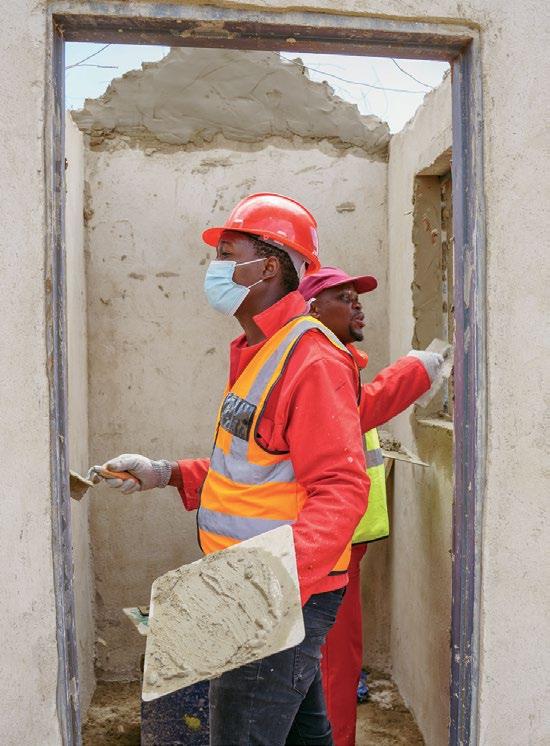
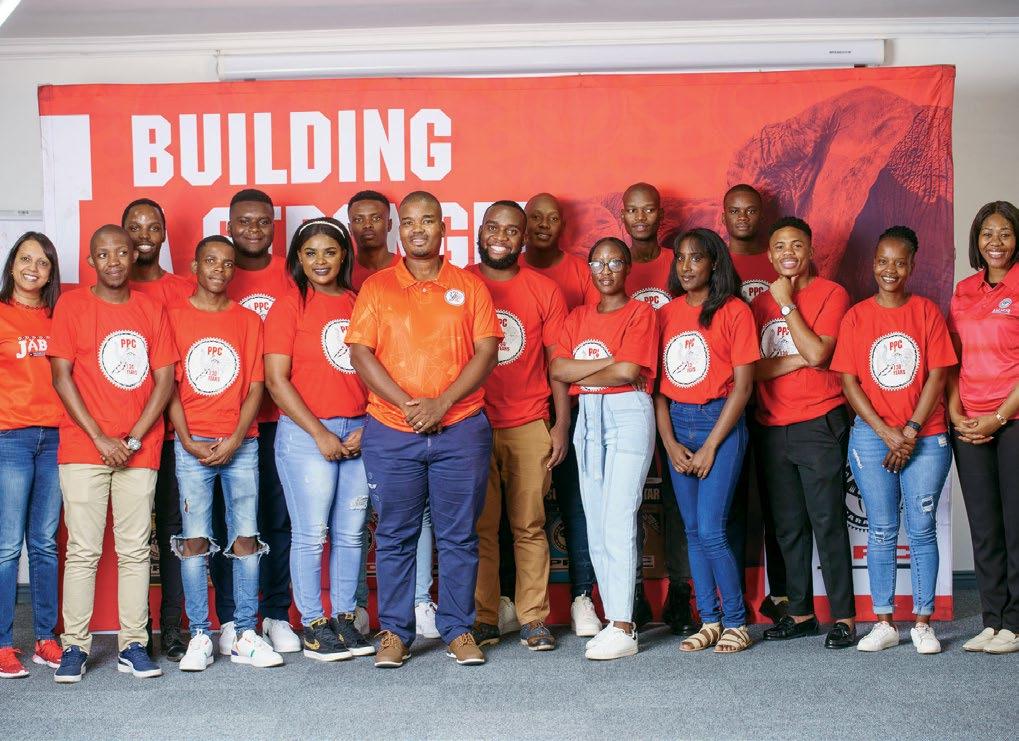
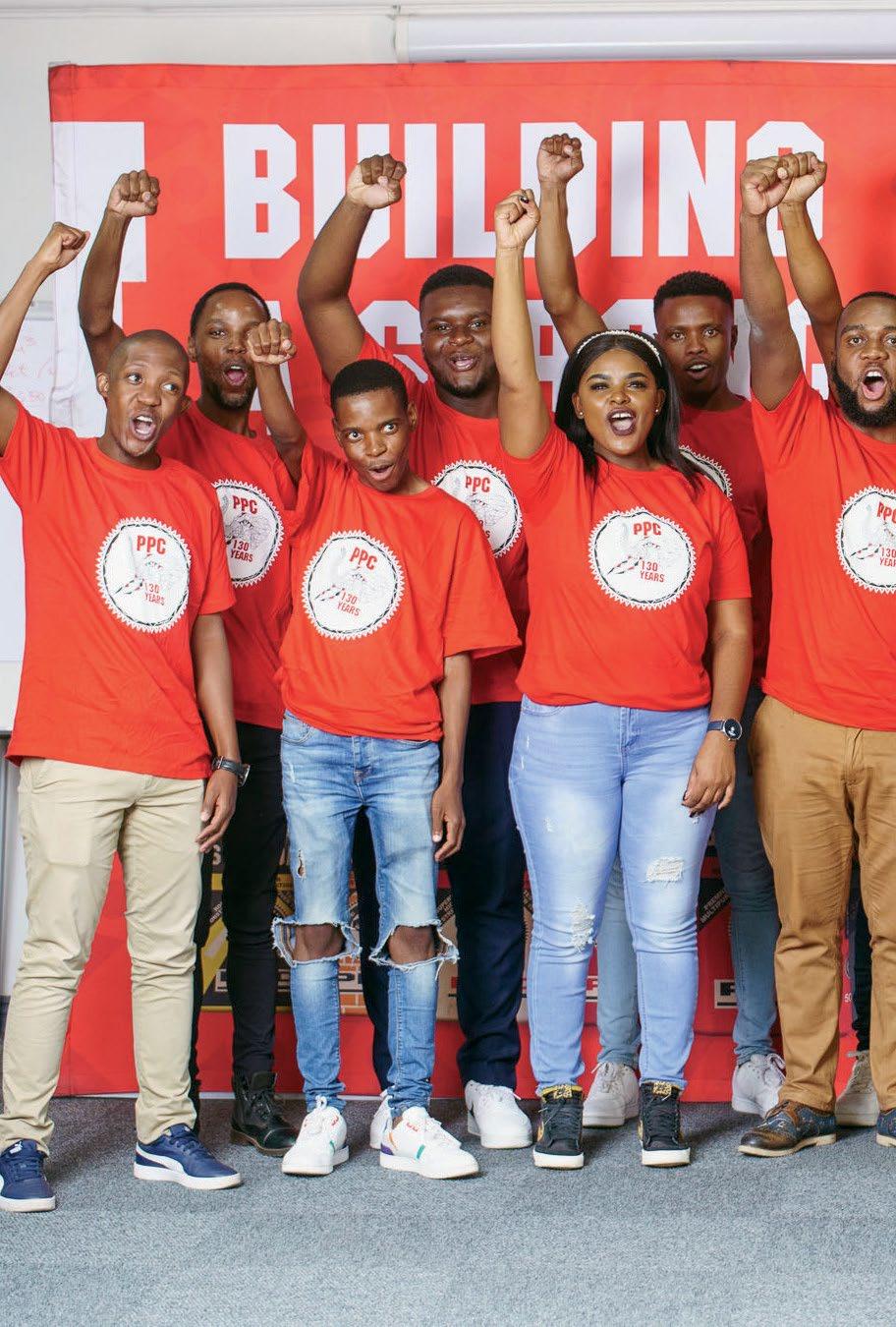
PPC is proud to be a leading provider of 100% local 100% quality building materials as well as solutions to empower people to experience a better quality of life
BhekiMthembu
PPC'S ORIGINS CAN BE TRACED BACK OVER 131 YEARS TO THE OUTSKIRTS OF TSHWANE IN SOUTH AFRICA. ESTABLISHED IN 1892 AS THE FIRST CEMENT MANUFACTURER IN THE COUNTRY, PPC HAS DEMONSTRATED RESILIENCE BY ADAPTING TO AND NAVIGATING CHANGES IN DIVERSE OPERATING ENVIRONMENTS.

Its influence has expanded across sub-Saharan Africa, and it has built a robust portfolio in emerging markets within the region. This diverse portfolio enables PPC to effectively address the dynamic economic, operational, and political landscapes. In a conversation with FUTURE SA, Bheki Mthembu, PPC's Head of Inland Business Unit, sheds light on its endeavours in skills training…
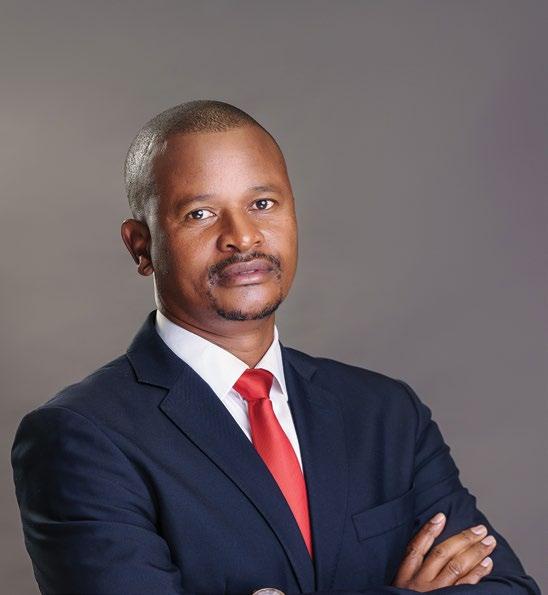
Tell us a bit about the Sure Academy and the rationale for its establishment.
The Sure Academy was established to address the critical skills shortages within the company and the industry at large.
PPC needs a highly motivated, skilled, and productive workforce to execute its strategy and create value for stakeholders. The limited pool of required resources in South Africa and globally simply gets more expensive, the more demand there is for that pool.
PPC’s deliberate strategy to focus on skills development increases the pool of talented and motivated individuals and helps positions PPC globally.
What is the graduate development programme?
The graduate development programme is an important element of the Sure Academy aimed at developing young talent who have just obtained their qualification.
In 2023, PPC onboarded 11 new graduates who joined our existing three graduates in South Africa in the fields of mechanical, chemical, electrical, and mining engineering, chemistry, geology, supply chain, and finance. This is a 24-month development programme aimed at building young talent within the scarce skills of the industry and improving our bench strength.
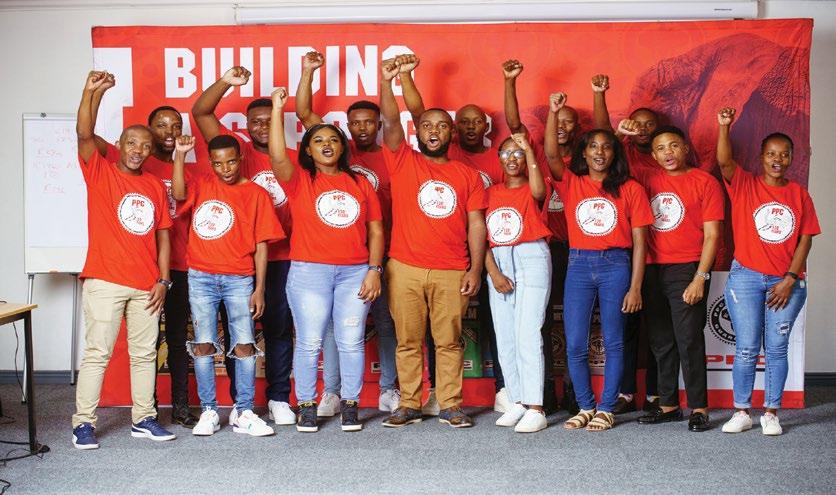
What is the Technical Skills Centre?
The Sure Academy is proudly associated with the Technical Skills Centre (TSC) whose main focus is on running learnerships and the creation of artisans.
The learnerships facilitated through the TSC include electrical, fitter and turner, millwright, and boilermaker. The Technical Skills Centre is open both to PPC as well as external learners, which includes learners from the Office of the Premier in the Northwest. The TSC is accredited with the QCTO under the DHET umbrella.
Tell us more about accreditation, and how the Sure Academy ties in with CSI/socio-economic development initiatives undertaken by PPC. PPC exists to empower people to experience a better quality of life. We believe in going beyond providing quality building materials by investing in the communities in which we operate.
The Sure Academy exists to live up to this mission. With the shortage of skills we are facing, the academy is aiming to address that. Two of our CSI pillars include skills development and education, which is what the Sure Academy is addressing.
Besides the Sure Academy, PPC is a proudly South African company committed to helping to build the country. Unemployment, and especially youth unemployment, is a huge challenge and it is vital that companies like us do our bit to bridge the skills mismatch that is undermining South Africa’s development, and also help to reduce unemployment levels. PPC launched CETA-accredited courses that include bricklaying, plastering, and construction management. It incorporates both theory and practical instruction. Over 200 bakkie builders from across South Africa have been trained and successfully completed the NQF level 3 (bricklaying and plastering) and 4 (construction management) courses and received South African Qualifications Authority certificates.
It is no secret that South Africa has a critical shortage of qualified artisans, and the country needs at least 60% of school leavers to pursue artisan-type training to meet its demand for scarce skills. What are your thoughts on this?
A qualification is essentially an entry into the workplace and signals certain traits such as commitment to study and the ability to cope with work and social pressures; however, it does not necessarily equip you for the workplace.
It is important that graduate development programmes provide a buffer between university and the individual developing into a professional. This should include mentorship, coaching, regular assessments of completed tasks, and presenting ideas to management.
How does the Sure Academy help drive employment opportunities within industry for newly-minted female graduates?
Our bursary and graduate development programmes aim to attract more women into the industry. The criteria for both these programmes give preference to women. In addition to this, we aim to develop women through our leadership development programmes.

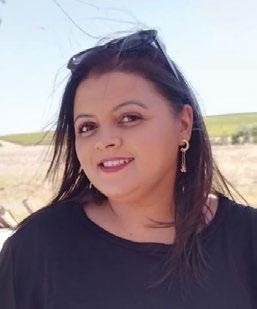
Education, skills development and training is the key to unlocking a successful and productive future. Education assists in unlocking employment opportunities, and is also essential for innovation, improving efficiencies, and driving sustainability.
Over the past years, a major positive for continuous learning has been the establishment of alternative education and training centres. Gone are the days when it was just school and university or college available as avenues for learning. Today we have options such as online schooling, short courses (in person or online) and more, that all ensure we have a platform to continue our learning journey irrespective of age. The other bonus that comes from this is that some platforms are more cost-efficient, which speaks to inclusivity.
The elephant in the room, however, is that while education is often the key to finding employment, unemployment is rampant and compounded by realities such as an increased cost of living and so forth. How often do we read stories of graduates who remain unemployed?
There is no straightforward answer on how to address this, but a starting point would be increased collaboration and partnerships between the private sector and government institutes. Another key factor for all learners and students is to note that education is invaluable – it is never a wasted investment. The reality is that in today’s world, we have to keep pushing on all fronts – developing ourselves, not giving up, and continuing to pursue our goals.
There are a variety of paid and free courses that can potentially help us on our individual journeys, but our mindset is critical. We have to think strategically and sometimes be a bit bolder than we are.
There are challenges, but there are also opportunities… Good luck on your journey of continuous learning!
info@ixist.co.za
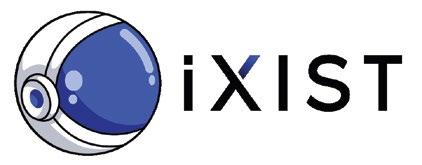

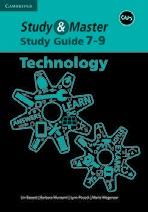
2 Q&A: PPC’s Sure Academy addressing critical skills shortages in the industry
10 Cover Feature: Coca-Cola Beverages SA Investing in our young people is the key to our future success
16 Q&A: National Youth Development Agency NYDA – Empowering youth
20 Donor fatigue? Now is not the time for South Africa’s NGO education sector
24 ECD key for unlocking a brighter future
28 The seed to success… reading from an early age

30 Tech for good: Tipping the scale on children’s mental health through digital reading
32 Advertorial: Maskew Miller Learning
New name, same game – Pearson SA rebrands to Maskew Miller Learning
28
34 Why do our kids get the short end of the parenting stick?
38 Monster Trucks: empowering & therapeutic
42 Future-proofing SA’s school curriculum through STEM programmes
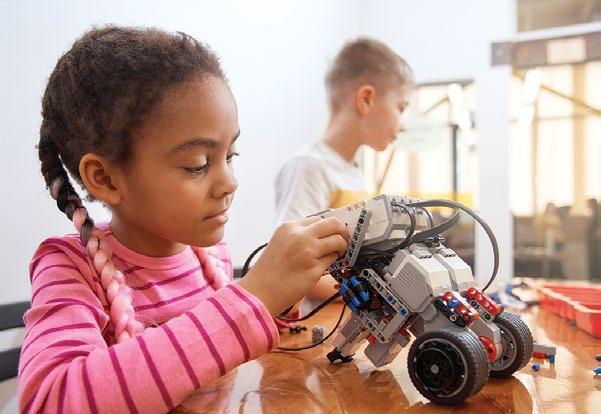
44 Tackling the widening STEAM skills gap

46 Need to fast-track ICT in education

48 Developing young entrepreneurial minds
50 5 reasons you should take a further studies programme
52 The importance of self-expression for kids
53 Advertorial: Acrobranch A treetop experience like no other!
54 Observing mental health awareness among scholars
56 Education: a holistic foundation for lifelong learning
58 The value of tutoring: step in to help your child step up
62 Helping children navigate AI
64 Uplifting educators is key to advancing transformation in the education sector
67 Advertorial: Cambridge Cambridge Primary and Lower Secondary
69
70 Career design: mapping your future
74 Post-matric avenues to explore
76 AI & higher education
78 Meaningful & impactful community engagement in higher education
42 78
82 Don’t allow the ghosts of student debt to haunt your future
84 Business schools show a competitive edge in alumni employability
86 Advertorial: ITRISA
International Trade Institute of Southern Africa (ITRISA)
NPC a world leader in trade training & development

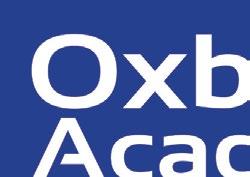
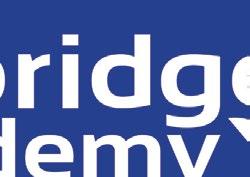


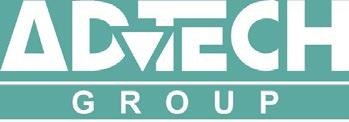
FOLLOW US
@futureSA.Media
PUBLISHER: Elroy van Heerden-Mays elroy@mediaxpose.co.za
EDITOR: Tashne Singh editor@futuresa.co.za

SUB-EDITOR: Tessa O’Hara tessa.ohara@gmail.com
CONTENT MANAGER: Wadoeda Adams artwork@mediaxpose.co.za
EDITORIAL CONTRIBUTORS:
Velaphi Ratshefola
Lauren Bright
Theresa Michel
Jonathan Hoffenberg
The Love Trust
Advantage Learn
Mayank Dhingra
Regent Business School
Jessica Hawkey
Simbongile Dyi
Ursula Fear Yershen Pillay
Roelof van den Berg
DESIGN & LAYOUT: Anja Bramley Shaun van Heerden-Mays
MEDIA PARTNERSHIPS: Maurisha Niewenhuys maurisha@mediaxpose.co.za
PROJECT MANAGER: Rene van Heerden rene@mediaxpose.co.za
ADVERTISING SALES: Rashieda Wyngaardt rashieda@sabusinessintegrator.co.za
Jacqueline-Ann Marsh jacqui@mediaxpose.co.za
DIGITAL AND SOCIAL MEDIA:
Jay-Dee van Rensburg
Kyla van Heerden
Ketsia Makola Kiangebeni
DISTRIBUTION & SUBSCRIPTIONS: Shihaam Gyer distribution@mediaxpose.co.za
CHIEF FINANCIAL OFFICER: Shaun van Heerden-Mays

WEBSITE ADMINISTRATOR: Justin McGregor
RECEPTIONIST: Daniela Daniels
PICTURE CREDIT: 123rf.com
DISTRIBUTION: On The Dot | Media Support
Van Heerden Mays Publications CC t/a Media Xpose Company Reg No: 2010/128859/23


8 www.futuresa.co.za 102


Disclaimer: The views expressed in this publication are not necessarily those of the publisher or its agents. While every effort has been made to ensure the accuracy of the information published, the publisher does not accept responsibility for any error or omission contained herein. Consequently, no person connected with the publication of this journal will be liable for any loss or damage sustained by any reader as a result of action following statements or opinions expressed herein. The publisher will give consideration to all material submitted, but does not take responsibility for damage or its safe return.


Cover Feature: Coca-Cola Beverages
SOUTH AFRICA IS A COUNTRY RICH WITH PROMISE AND POTENTIAL, BUT ALSO FACES SIGNIFICANT CHALLENGES. THE MOST PRESSING OF THESE ISSUES RELATES TO OUR COUNTRY’S UNEMPLOYMENT FIGURES, AND IN PARTICULAR, THAT OF RISING YOUTH UNEMPLOYMENT.
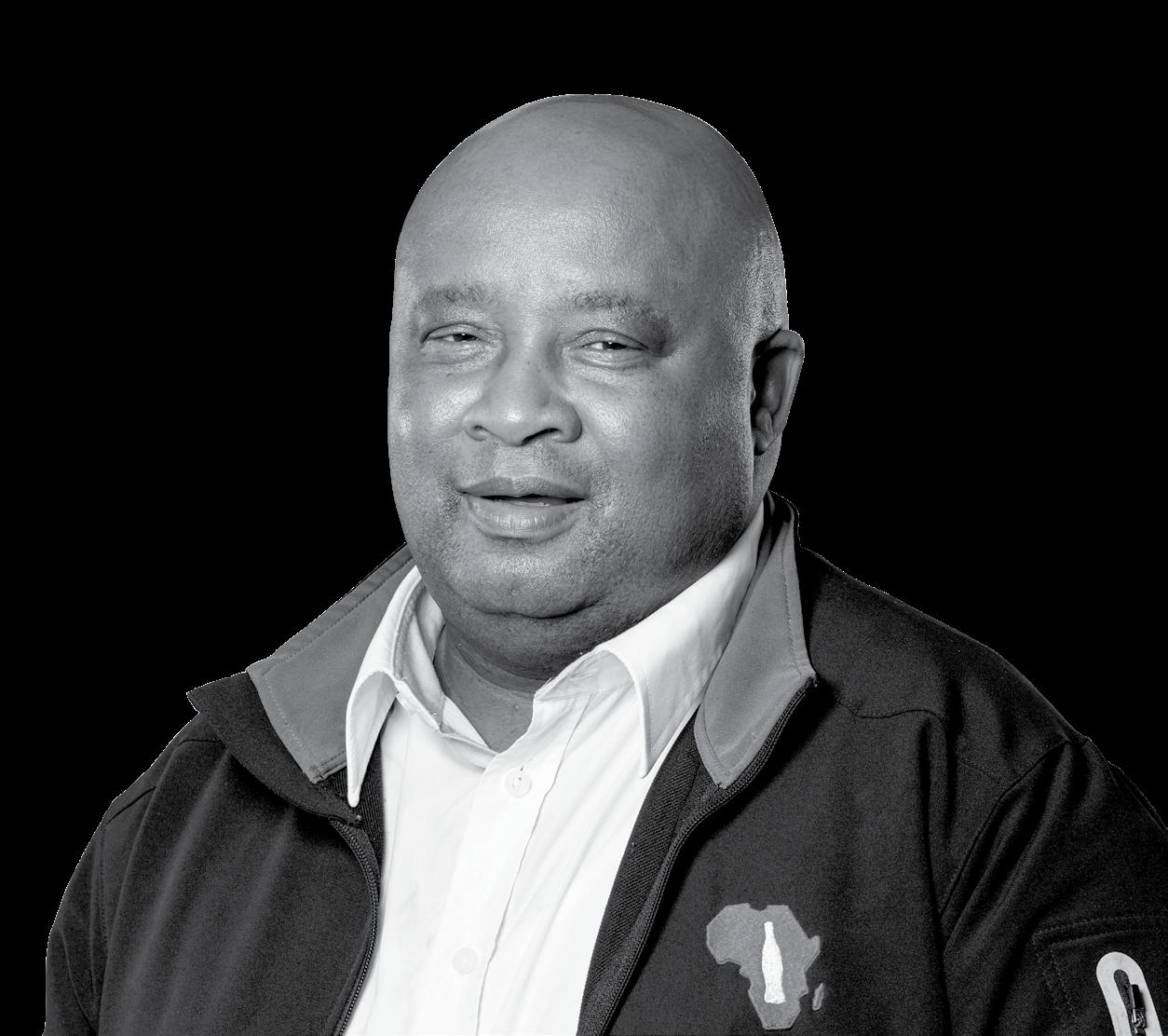 Velaphi Ratshefola
Velaphi Ratshefola
With South Africa’s unemployment rate showing no signs of improvement in the short-term, coming in at 32.9% for Q1 of 2023 according to a Stats SA Report, poverty is a daily reality for many and exacerbates the inequality we see all around us.
The unemployment picture is the worst in the youth segment, with over 51% of young people unemployed. According to the latest Quarterly Labour Force Survey, the unemployment rate for different age cohorts is:
• age 15-24 = 62.1%
• age 25-34 = 40.7%
• 35-44 = 27.9
One ray of light is that the unemployment rate for graduates is 10.6%, which is 22.3 percentage points lower than the national official unemployment rate of 32.9%. This shows the benefit of directly investing in education outcomes early on.
Our human capital – and how we harness this – is what will define our country and our continent’s future trajectory.
Our goal must be to support and create an enabling environment for our young people to learn, grow and become economically active citizens.
To this end, Coca-Cola Beverages South Africa (CCBSA) has adopted the three pillars of education, employability and entrepreneurship as a framework for our economic inclusion strategy.
Education is a critical tool in eradicating poverty and promoting sustained, inclusive, and equitable economic growth for sustainable development.
At CCBSA, we recognise that education is central to the development and improvement of the lives of young people in South Africa. Supporting the educational aspirations of our youth is one way in which we believe we can help turn the tide and create a better future for all in South Africa.
CCBSA launched the Study Buddy Fund in 2021 to assist young people across communities in which CCBSA has operations, to access tertiary education. The Fund pays for full tuition, accommodation, as well as textbooks in line with our holistic approach to supporting students.
To date, we have invested over R8 million to support deserving students. This is one of our initiatives and one as an organisation, we are tremendously proud of.
The Study Buddy Programme also includes support groups,
career advice and study support to give bursary recipients “every opportunity at a successful academic career”.
Our Study Buddy Fund comprises four programme pillars:
1. Host Community Bursary Programme: The bursary programme provides scholarship support to indigent academically strong students who meet entry requirements for access to universities. This financial support covers registration, tuition, accommodation, meal allowances and textbooks.
2. University Partnership: This provides funding to students already at university but who do not have bursaries and/or NFSAS funding and are often regarded as the “missing middle”. Of the more than 80 students we have supported to date, half were young women.
3. TVET College Support: This targets young people in CCBSA host communities who are registered in TVET colleges. The scholarship support focuses on technical skills development, specifically geared towards the CCBSA value chain i.e., electrical, or mechanical engineering.
4. Ligbron: This is e-Learning using technology to improve the teaching and learning of mathematics and science. CCBSA has supported over 6 000 students to date.
But more than just education support, we believe in developing young people to become capable leaders of tomorrow, be it in communities, society, business, or any other sphere of life. We are determined to invest in them through holistic support programmes that offer tools, including life skills, to assist the student to reach their full potential.
This is who we are as an organisation. We believe that companies which grow their businesses the right way and are invested in and support the communities in which they operate, creating inclusive and sustainable growth opportunities, will help shape a better-shared future for all –including our business.
But more than just education support, we believe in developing young people to become capable leaders of tomorrow, be it in communities, society, business, or any other sphere of life.
At CCBSA, we have a number of initiatives which are aimed at helping job seekers find meaningful and sustainable employment.
Much of this is centred around skills development, including up-skilling or re-skilling, in order to enhance job prospects and increase earning potential.
Our focus on youth empowerment is to also assist with skills development, particularly for graduates who may require additional training in soft skills that would make them more employable, or which would aid their own entrepreneurial efforts.
The success of these programmes is defined by the extent to which we boost income, unlock sustainable earning potential, improve skills, and business knowledge, resulting in access to economic opportunities.
Whether investing financial resources, our time, or our expertise, we take our responsibility to the communities we call home seriously.
The small, medium and micro enterprise (SMME) sector is a
vital engine of growth in South Africa, particularly as we still claw back many of the losses due to the impact of the Covid-19 pandemic.
But starting and then sustaining a small enterprise is not a simple task. Around 70% of SMMEs fail within the first two years, with many entrepreneurs citing lack of funding, proper business skills, as well as access to markets as among the major impediments.
We launched our Bizniz in a Box (BiB) initiative in 2016 with a view to creating a platform to support emerging and small businesses, particularly those run by youth and women, and especially in informal and rural areas.
Bizniz in a Box aims to create an ecosystem of viable microbusinesses offering complementary products and services in a community, using a spaza or house shop as the anchor. Each business operates out of a custom-designed container. These businesses would help cover various needs of the local community, including a business centre and internet café, a car wash, a fast-food shop or a mini baker.
Through our BiB programme, we are hoping to help reduce youth unemployment and associated poverty levels and inequality by providing opportunities for youth to grow, sustain

their businesses and have an enhanced quality of life. The BiB initiative has supported over 700 entrepreneurs across several provinces, including Limpopo, Gauteng, Mpumalanga, Eastern Cape, and KwaZulu-Natal. We have provided 758 containers, including 400 for young entrepreneurs, and spent more than R120 million on BiBrelated activities.
I am a firm believer in co-creating solutions that will help youth and by extension, our country - and, coupled with the energy and enterprise of youth, the Bizniz in a Box (BiB) is the perfect vehicle to help drive the critical SMME sector. Our responsibility is to have the appetite to continue providing them with continuous support as that’s the only way we can guarantee success.
I admire the enterprise and resilience of young people, but we have a responsibility to create a conducive environment and to provide the tools and platforms for young people to plough their energies and ideas into.
In struggling economic conditions such as we are experiencing currently, we need a focused approach to tackle some of the challenges we face as a country.
There is a need for all stakeholders to collaborate and cocreate solutions that will bring hope to young people, be it providing access to education, employing them or helping them build businesses.
At CCBSA, we have invested in multiple skills development and entrepreneurship, as well as supplier development incubation programmes, as part of building greater economic inclusion, particularly for those most marginalised in our society.
Our strategic framework seeks to embed economic inclusion across our entire value chain and make it part of how we do business the right way. Investing in communities and in the future of our people and our country will ensure the sustainability and success of our business.
Coca-Cola Beverages South Africa (CCBSA) is a proudly South African company that began operating as a legal entity in July 2016, after the merger of six non-alcoholic ready-to-drink bottling operations. We are a level 1 B-BBEE empowered company. We employ over 7 000 people at 13 manufacturing facilities across the country. As a subsidiary of CocaCola Beverages Africa (CCBA) and a bottler for The Coca-Cola Company, our vision is to refresh Africa every day and make our continent a better place for all.
We manufacture and distribute Coca-Cola beverages that make life’s everyday moments more enjoyable, while doing business the right way. The result is shared opportunities for our customers, our employees, our communities, and our shareholders. We conduct our business ethically, transparently, and conscientiously. We espouse an inclusive business culture to reflect our African identity.
We accelerate sustainable, profitable revenue growth across all categories and offer an innovative portfolio of products that respond to customer needs and consumer preferences. Profitability is important, but not at any cost. People matter. Our planet matters. We do business the right way by following our values and partnering for solutions that benefit us all.

ASANDA LUWACA, EXECUTIVE CHAIRPERSON OF THE BOARD OF DIRECTORS AT THE NATIONAL DEVELOPMENT YOUTH AGENCY (NYDA), BEGAN HER ACTIVISM FOR THE YOUTH OF SOUTH AFRICA WHILE WORKING WITH YOUTH ORGANISATIONS. SHE LATER CONTINUED HER ACTIVISM IN THE POLITICAL SPACE WHERE SHE SERVED ACROSS VARIOUS LEADERSHIP STRUCTURES. FUTURE SA SPOKE TO HER…

What are the key challenges facing youth, and how does the NYDA help address these?
South Africa faces the triple challenge of poverty, inequality, and unemployment. In addition to the divides of geography, race and education, Covid-19 has exacerbated the divide between those who are employed, have jobs, and are “included” in society; and
those who are unemployed and are “excluded.” Women and young people have always struggled more in the labour market, and the pandemic has made them significantly worse off.
Youth unemployment is the greatest concern, with two-thirds of the more than one million young people entering the labour market each year not in any form of employment, education or training.
The NYDA is a South African-based agency established primarily to address challenges faced by the nation’s youth. The Agency was established by an Act of Parliament (Act 54 of 2008). The institution was established to be a single, unitary structure addressing youth development issues at national, provincial and local government level. The Agency should be seen within the broad context of South Africa’s development dynamics.
The NYDA implements youth development programmes to address multi-faceted challenges particularly unemployment, entrepreneurship and implement National Youth Service programmes in support of the young people of South Africa. The Agency has rationalised its work and has a renewed focus towards youth entrepreneurship and the creation and facilitation of jobs, as well as the coordination of the National Youth Services Programme across all sectors of government and society.
Through the various products and services of the NYDA, young people have access to education and skills opportunities, which promote their growth and allow them to become active members of their community. From gender-based violence and femicide to persistent high unemployment; various forms of poverty; poor quality education; increasing inequality gap; and many other challenges that hinder young people’s smooth transition to adulthood. It is worthy to note that, the gap between the number of youths seeking employment and the employment opportunities available to them continues to grow wider.
The NYDA continues to align its policies and strategic plans to contribute towards the achievement of the Presidential Youth Employment Intervention Plan by aligning and implementing the JOBS programmes, partnering with different sectors for training, its grant programme aligned to specific sectors, unlocking opportunities for SETA learnerships, and coordinating NYS programmes with key stakeholders.
Unemployment, particularly youth unemployment, is a major challenge. How is the NYDA helping to tackle this issue?
Let me outline the programmes that are reflective of integrated approach across sectors:
The Presidential Youth Employment Intervention: The PYI is South Africa’s most comprehensive effort to address youth
unemployment to date. Its goal is to enable more young people to move from learning to earning. It seeks to coordinate, accelerate and enhance existing programmes and unblock pathways to employment, training and youth enterprise. Additional recourses drive the development of innovative approaches.
The Revitalised National Youth Service: We need to mobilise young people to become active citizens of our democracy, while earning an income and increasing their employability. The NYS is not an employment programme. The primary aim of the NYS programme is to mobilise young people to become active citizens of the country’s democracy while earning an income and increasing their employability. It is a programme that is specifically outlined in the National Development Plan.
The Community Services: The purpose of the Community Service activities as envisaged for the NYS programme is to enhance service delivery efforts and improve the lives of marginalised communities. The basic characteristics of meaningful community service include services and activities that:
• are valuable to the community and can be performed at high standards by participating young people;
• are delivered through organisations that work with young people and through the interventions/programmes offered helps young people to and development agency;
• prioritise working with excluded young people to improve their ability to either find work, generate income, become leaders-activists-change agents;
• enhances service delivery efforts and improves the lives of marginalised communities; and
• helps create social networks that young people would not ordinarily have access to.
Considering the realities facing South Africa, such as loadshedding, how is NYDA empowering youth to help plug the gaps?
The NYDA plays a lead role in ensuring that all major stakeholders i.e., government, private sector, and civil society prioritise youth development and contribute towards identifying and implementing lasting solutions which address youth development challenges. We undertake engagement and advocacy for the integration and mainstreaming of youth development in all spheres of government, private and civil society. Furthermore, the NYDA designs and implements programmes aimed at improving the lives and opportunities.
As a point of departure in this period of loadshedding in the country, the NYDA has embarked on new stage of concerted effort to understand the impact of loadshedding on youth enterprises in South Africa. A study was conducted to understand the level at which loadshedding affects young entrepreneurs. It discovered that the effect of loadshedding ranged from issues of operational aspects, revenue loss,
working hours, network, and reduction in production and damage to equipment.
The Agency is looking into power generation capacity facilities such as the invertors within the grant programme as a facility for small business operation response. This may allow business to operate within the hours of loadshedding.
On 9 December 2021, during the meeting between H.E. President Cyril Ramaphosa, Minister Maite Nkoana Mashabane and the newly appointed NYDA Executive Board, a political commitment was made for South Africa to host the Nelson Mandela Youth Dialogue and Ethical Leadership Programme (NMYDELP).
It was intentional to name this initiative Nelson Mandela Youth Programme as its purpose is to use Nelson Mandela’s life as the example of how young people should be resilient and remain focused on attaining their life’s goals in the face of adversity. The Nelson Mandela Foundation as the custodian of the Nelson Mandela legacy was consulted and the necessary permission to use the name was granted.
Is there potential for NYDA to play a more prominent role in addressing challenges relating to youth, and if so, what would be required?
So far the implementation of the Presidential Youth Employment Initiatives and the approved IYDS (Integrated Youth Development Strategy) at national and provincial level presents great hope in ensuring coordinated planning takes place in all three spheres of government. Since its approval, two provinces have had their provincial strategy approved and one province has been funded.
Who qualifies for these programmes?
Any young person with an idea who is between 18 and 35 years old and is a South African citizen. NYDA also assists register unregistered eligible small businesses and offers funding up to R250 000. Additionally, small businesses that are operational but need additional funding are assisted.
What is the success rate of programmes?
The NYDA’s evaluations on its programmes suggests the success rate is currently between 60 and 70%.
What areas should youth look towards to help drive the economy and enable meaningful impact?
• Fourth Industrial Revolution (ICT)
• Oceans economy
• Agriculture
• Logistics
• Beauty care and therapy
• Legal
Young people can access NYDA support online through there website: www.erp.nyda.gov.za or get in touch with their closest NYDA branch.
What are opportunities that youth should explore?
Skills offered by TVET colleges and skills that will ensure that youth are employable for the future demands of the economy. Also, compliance to legal requirements for BBBEE.
Is there sufficient support from the private sector and government in terms of partnering with NYDA?
More can be done to ensure we rope in private partnerships. We are currently working with key stakeholders such as:
• Clicks
• Sasol
• Bidvest
• Capitec
What are some of the programmes NYDA offers to help empower youth?
• Business Management Training
• Grant programme
• Mentorship
• National Youth Service
• Small business support training
How sustainable are the programmes run by NYDA?
They are fairly sustainable as our grant facility allows for youth to be funded to enable for demonstratable progress. However, considering the economic environment there could be instances whereby businesses find it challenging to achieve high impact as a result of realities facing the country.
• Sun International
• Anglo American Anglo
• Unilever
• Coca-Cola
• MTN
• Standard Bank
We intend to engage the following companies on partnerships in the next twelve months:
• Aspen
• Ascendis Health
• Discovery
• FirstRand
• Sanlam
• Massmart
• Woolworths
• Shoprite
• Naspers
• Vodacom
• Dimension Data
• Tiger Brands
What is the ceiling in terms of project funding by NYDA?
The NYDA Grant Programme is designed to provide young entrepreneurs with an opportunity to access both financial and non-financial business development support in order to enable them to establish or grow their businesses.
The programme focuses on youth entrepreneurs who are intentional, promising and are at new stages of enterprise development. Young people whose business ideas qualify for the Grant Programme, depending on their individual needs, will also undergo some of the NYDA’s non-financial support services including mentorship, business consultancy services, market linkages, business management training, and the youth cooperative development programme.
If a proposal requires additional funding, how does NYDA help facilitate this?
The NYDA assists proposals by creating the necessary market linkages for enterprises looking to expand their businesses. This is done through, among other things, linking the enterprises with the relevant Development Finance Institutions (DFI’s) and other relevant departments that can assist where we are unable to.
What is the biggest misconception that people have of the NYDA?
NYDA is independently responsible for youth challenges in the country, and it is the only solution to the youth challenges. Whilst the NYDA is mandated to champion youth development, the responsibility lies on all stakeholders to ensure that youth development is realised.
What are some of the future projects that the NYDA is planning?
The SANDF has significant capacity to massify skills development for the youth. Against this backdrop, we will develop together with the SANDF a proposal to place the Defence Force at the forefront of South Africa’s skills revolution, technology transfer and “War on Youth Unemployment”. This is a programme we look forward to rolling out.
Some of our performance highlights, not limited to, are as follows:
1. 8th Clean Audit.
2. Zero irregular and fruitless expenditure.
3. 2.9 million young people registered on PYEI’s SA Youth platform.
4. 2005 youth-owned enterprises supported with
financial interventions.
5. Growing NYDA grant programme from R56 million to R94 million to double the number of enterprises supported.
Concluding remarks:
The youth of South Africa are faced with challenges that are multi-faceted where the NYDA ought to intervene and assist where possible, thus ensuring no young person is left behind in the socio-economic development of South Africa.
It is important therefore to develop a multi-level strategy that seeks to build a new social compact with the aim of getting all business and social partners involved in the overarching goal of getting the youth, and those in the rural areas in particular, to enter the economic activity space.
It is imperative we leave no young person behind. One of the areas of focus is ensuring the Agency prioritises quality services across all provinces, with a particular focus on communities in the rural areas.
What tips would you give to youth to help smooth the application process?
Since the NYDA has gone digital, the process has gone much faster and the organisation hopes to improve even further. We encourage youth to thoroughly explore our website for a list of all our product offerings to ensure they select the right product suitable for their business needs.
Over the past three years, NYDA has launched new NYDA centres and districts. Importantly, we are working to ensure that these centres and districts are effective. Young people can either access NYDA support online through the website, which is accessible at: www.erp.nyda.gov.za or get in touch with their closest NYDA branch. Branch details are available at: www.nyda.gov.za/Contact-Us.html
The NYDA Customer Service Team is also available from Monday to Friday between 08:00 and 17:00. The team can be reached on tel: 0800 58 58 58 or by email at: info@nyda.gov.za.
For further information, the NYDA is available on various online platforms such as:
Facebook: National Youth Development Agency
Twitter: @NYDARSA
Instagram: @nyda_insta
YouTube: @NYDASouthAfrica
LinkedIn: National Youth Development Agency (NYDA)
TikTok: @nydarsa
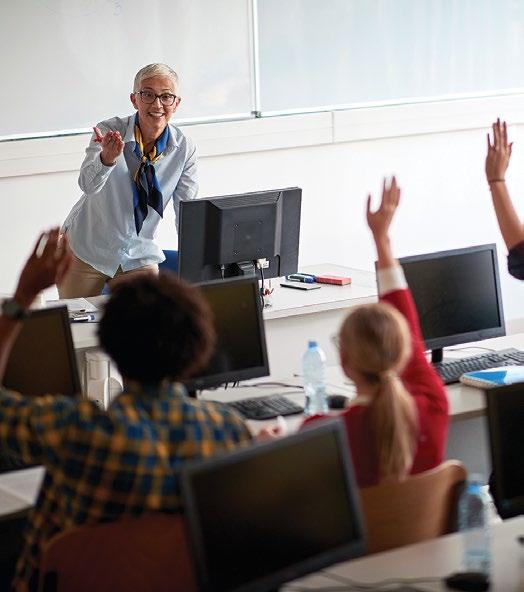
THERE ARE NOT MANY LISTS WHERE YOU WILL FIND SOUTH AFRICAN RIGHT ON TOP. HOWEVER, WHEN IT COMES TO OUR OUTRAGEOUSLY HIGH YOUTH UNEMPLOYMENT RATE WE ARE, SADLY, RIGHT UP THERE WITH SOME OF THE WORST FIGURES IN THE WORLD.
By Lauren Bright, Chief Executive Officer of Kay Mason Foundation
Quarterly employment statistics released by Stats SA on 28 March 2023 tell us nothing more than what we already know. A total of 94 000 more South Africans were not in fulltime employment between December 2021 and December 2022, and a further 85 000 were not in part-time work.
Worse still, results from the Quarterly Labour Force Survey (QLFS), 4th Quarter 2022 report shows that of the over 10 million young people aged 15-24 years in South Africa, only 2.5 million were in the labour force. The largest share (7.7 million or 75.1%) of this group of young people are those that are inactive in the workspace. The main reason for this inactivity, according to the survey, is discouragement, i.e., they have lost hope of finding a job that suits their skills or in the area they reside.
This worrying crisis is likely to get much worse before getting any better. It’s a terrifying thought given the severe consequences of high unemployment rates have for our economy, social stability, and future standing in the world.

Investing in education is the simple solution to improving these figures. Education is the foundation for economic growth and social development, and it is the most effective tool for breaking the cycle of poverty and unemployment.
While the Department of Education has made commendable strides over the years in improving access to education, the system is still plagued by numerous challenges such as a lack of basic resources, an acute shortage of qualified teachers, and inadequate infrastructure. Added to this, are ongoing concerns about corruption and mismanagement of funds.
As with Eskom, while the government fumbles its way through the challenges, South Africa’s educational non-profit sector has been stepping up to the plate, working against extreme odds to fill in the gaps and ensure no child is left behind.
Organisations like the one I work for, the Kay Mason Foundation, which relies purely on donor funding, focuses on providing scholarship opportunities to low-income youth and enhancing the skillset of high school learners from grade 8 to 12.
While I wholeheartedly believe in the importance of early childhood development education, time and time again, I see in the work that we do, just how much guidance and nurturing are also required during the late teen years, in helping to mold tomorrow’s workers.

It doesn't take much for the wheels to come off completely and throw a child off track during this very vulnerable time in their lives. The work of educational NGOs is instrumental in providing this age group with both academic and psychosocial support on their schooling journey, particularly for those learners who come from disadvantaged backgrounds.
But help is needed. The hefty burden of solving South Africa’s high youth unemployment should not be saddled with education NGOs alone. Over the years, our biggest advocate and strongest support has been not from the government but from the private sector. They understand that for us to continue making a dent in our unemployment rate, we need to ensure our school leavers have the right skills and knowledge to succeed in today's rapidly changing economy to meet the current skills shortages and challenges head-on.

We know that the only way educational NGOs can continue keeping learners connected to learning and achieve the impossible is with the private sector continuing to champion our course. However, we also know that a challenging postpandemic economy is leading to a rise in NGO donor fatigue, which can threaten, if not end, all progress.
As an industry, we are fully cognizant that today’s donors are hard-pressed for cash – from big business right down to low-income households – everyone is feeling the financial pinch thanks to rising inflation, and an ongoing war in Europe that is causing an escalating cost of living squeeze. In the world of business, this means dwindling budgets and difficult decisions, and sensitive conversations about whom to continue supporting and whom to cut loose, but while resources might be shrinking, the needs and pressing demands of our country remain the same.
We can see that great things happen when the private sector works hand in hand with NGOs to invest in our country’s future and the quality education of our youth. Aside from supporting a worthy cause, this is the answer to so many of our country’s problems (yes, even the loadshedding saga).
In addition to bringing hope and realising the dreams of millions of South African youngsters and knocking us off the worst-youth-unemployment-rate-on-the-planet list, ongoing investment in education will also aid our failing economy. It will create a skilled workforce on par with some of the best in the world and which can drive economic growth, promote innovation and entrepreneurship, and reduce poverty and inequality.
Educational NGOs are doing their part, but they simply cannot afford to lose the momentum and go it alone. We all have a stake in our collective future.
www.kmf.org.za
Kay Mason Foundation CEO, Lauren Bright, has over 20 years’ experience in the events, sponsorship procurement, NPO, fundraising, client service, and operational project management arena. She has worked on large-scale and global events and prides herself on her ability to adapt, pivot and get things done. She has a Bachelor’s degree in African Languages and Industrial Psychology. She is a trained neuro-linguistic programming practitioner and corporate coach, as well as an abstract artist. Lauren was previously the Country Manager for Operation Smile South Africa and started her position as CEO at the Kay Mason Foundation beginning of 2021.
Enrol and register at MTN Online School and you’ll get access to world-class learning material at the click of a button. MTN Online School includes everything from interactive assessments, virtual classrooms and live streaming to a wide range of information, a library and so much more.

Get ahead by registering today on www.mtnonlineschool.co.za

24
ECD key for unlocking a brighter future

Monster Trucks: empowering & therapeutic
The seed to success... reading from an early age
THE BAMBALEARN APP BY AFRIKA
TIKKUN BAMBANANI (ATB) WAS DESIGNED TO FACILITATE TEACHER PROGRESSION, EQUIPPING THEM TO SCREEN FOR LEARNING DIFFICULTIES AND ARRANGE AN INTERVENTION, PROVIDE PSYCHOSOCIAL SUPPORT AND MONITOR CHILD GROWTH AND PROGRESS. THE BAMBALEARN APP AIMS TO EXTEND CHILDREN ON THE CURRICULUM ENSURING THAT NO CHILD IS LEFT BEHIND.
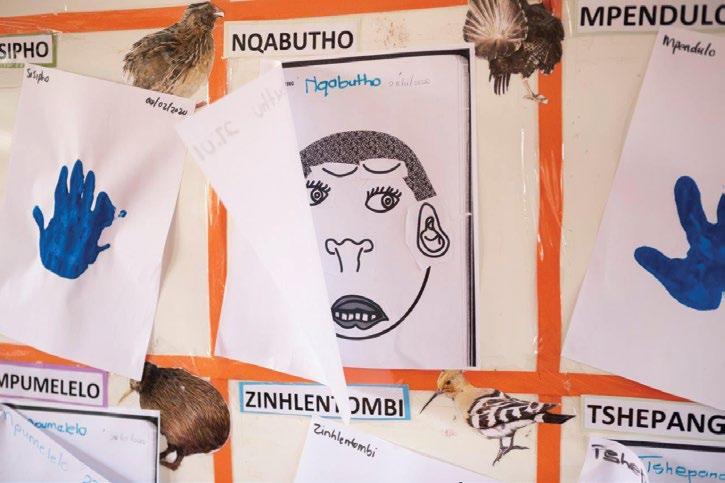
The period from birth to six years old is the most vital stage of brain development for children and these informative years represent a crucial window of opportunity for education.
The ATB programme is developed to ensure early childhood care and education that is truly inclusive. It is much more than just preparation for Grade 1. ECD is the foundation for emotional wellbeing and learning throughout life; and is one of the best investments a country can make as it promotes holistic development, gender equality and social cohesion.
To reach as many children as possible aged birth to six years of age across all rural and underprivileged communities of SA, and to provide play-based learning through trained ECD teachers who will build a solid foundation for their education and overall wellbeing.

The long-term vision is to standardise the ECD curriculum throughout SA to ensure that no child is left behind in terms of education, which will lead to equal opportunity for all children in SA.

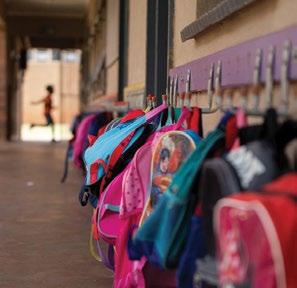
Approximately 800 upskilled practitioners working in 200 Early Learning Centres in disadvantaged communities and underprivileged rural areas are providing a solid foundation for 10 000 children through this initiative.
ATB aims to provide a safe, nurturing and stimulating environment for South African children and invest in their education by providing them with the tools they need to succeed. Early childhood education has a positive impact on our society as a whole; helping reduce poverty, promote economic growth, and decrease the likelihood of negative social outcomes such as crime and substance abuse.
• ECD Curriculum age 0-6 years
• Teacher training
• Resource kits
• Data-free online assessment centre to monitor student and teacher progression
• Data-free online screening tool assessment for children
The three-year ECD programme is presented as a customised ATB package to suit the needs of each centre/community. It includes a five-day teacher pre-training programme, monthly up-skill teacher training, an online curriculum, printed manuals and workbooks, an online assessment centre and in-class mentorship.
Registered as part of the Afrika Tikkun brand, the ATB training, assessment and curriculum programme has brought together a team of ECD practitioners, theorists, educators, investors and therapists to create the best ECD curriculum available in South Africa and make it available to ECD practitioners and children living in under-resourced communities around South Africa. The programme readily collaborates with the government and private sectors.
Early Childhood Development (ECD) is the period spanning from birth until the year before a child enters formal schooling. Research shows that children who do not have access to adequate ECD are more likely to struggle academically and have lower earning potential as adults, and they are also more likely to engage in risky behaviours, such as substance abuse or criminal activity. Furthermore, the effects of inadequate ECD can have an intergenerational impact on children, in that they are likely to struggle as parents themselves, trapped in a perpetuated cycle of poverty.
Sadly, the highest failure rate in South African schools occurs in Grade 1. Investing in ECD can lead to better school readiness,
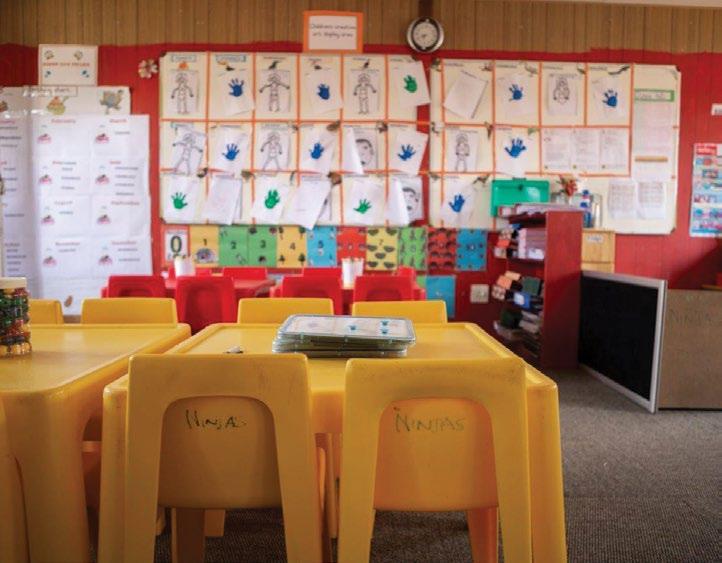
• In-class teacher training and mentorship
• The BambaLearn App for children from 2-6 years old
Sadly, the highest failure rate in South African schools occurs in Grade 1.
improved academic achievement, higher earning potential, and better health outcomes in adulthood. Additionally, a nurturing and supportive early childhood environment can promote positive social-emotional skills and behaviours, which can lead to stronger relationships and increased well-being throughout life.
We can change the trajectory of many young children currently at risk if we equip ECD practitioners with the skills needed to deliver quality early learning programmes that meet children’s developmental needs.
Many ECD centres in under-resourced communities are not able to employ qualified practitioners, and although a lot of their staff do have years of working experience, they do not have the formal training to design outcomes-based programmes. To support these centres, we have developed an innovative and comprehensive ECD curriculum that is designed to meet the developmental needs of children aged one to six years, which can be implemented by ECD practitioners who have little or no formal ECD training.
• Developing an outcomes based ECD curriculum that provides the framework for children aged one to six years to meet their developmental milestones and equip them with the skills needed for future academic success.

• Providing the ATB curriculum to participating centres in the form of printed manuals, workbooks, theme posters and assessment portfolio files. An online version of the curriculum is also available.
• Offering off-site training to ECD practitioners and principals up-skilling them to implement the ATB curriculum, as well as outcomes and teaching methods.
• Providing in-classroom training and mentoring for the first three years of implementation.
• Monitoring and assessing practitioner progress through online teacher progression assessments and monthly tasks they are required to upload. Any gaps identified will be addressed by our trainers through offering additional training sessions, as well as on-site implementation support.
• Using tracking sheets to assess the termly progress of all children aged one to six years who are in the programme.

• Providing the schools with screening assessment tools for children aged six months to six years.
• Providing ongoing support through site visits from year 1, and into year 3.
These activities are supported by two innovative technologies, thereby removing geographical limitations as any ECD centre with the internet can access the programme.
BambaLearn is an app that allows young children to develop their critical thinking and reach their milestones through play. Created by experts and designed for (and loved by) children ages 2-6 years, this app ensures that age-appropriate milestones are reached through rigorous performance monitoring through games.
These include a wide variety of educational puzzles, story books, numeracy activities, problem-solving games, literacy, shapes, tracing, counting, and letter and number recognition. This app ensures that no child is left behind by enabling stronger learners to work ahead and providing extra revision and repetition for weaker learners.
The goal is to improve and standardise the ECD content in our nation’s ECD centres, empowering practitioners to spend more time with the children. The ATB assessment centre ensures that no child or teacher is left behind. ATB provides tracking sheets and termly reports to monitor learner progression, focusing on critical developmental milestones, screening tools to red-flag learners that require intervention, and practitioner tracking and evaluating.
A state-of-the-art remote upload portal allows us to assist and observe our learners and teachers, especially schools in remote areas. ATB’s online trainers assess and report on all activities and video tasks assigned to the practitioner for the week.
The potential of millions of young children is lost due to our inability to provide families living in marginalised communities with access to quality early childhood education programmes. ATB’s vision is to uplift the lives of our children and improve the quality of ECD teaching in South Africa to reach remote and disadvantaged communities and ECD centres with the knowledge and resources needed to implement an effective ECD curriculum, changing the trajectory of thousands of young beneficiaries of this programme.
The potential of millions of young children is lost due to our inability to provide families living in marginalised communities with access to quality early childhood education programmes.
What makes Afrika Tikkun Bambanani different?
What makes Afrika Tikkun Bambanani different is their approach to sustainability. The Sustainable Development Goals (SDGs) and Environmental, Social, and Governance (ESG) goals aim to promote sustainable and responsible practices, with the SDGs addressing a wider range of development issues on a global scale, and ESG goals focusing on the environmental, social, and governance factors of companies and organisations.
The underlying value of the ATB programme is to “leave no child behind”, and in so doing supports several SDGs, including:
• SDG 1 (No Poverty): Effective ECD programmes can break the cycle of poverty by improving children’s development, health, and learning outcomes, which ultimately leads to better employment opportunities and higher incomes in adulthood.
• SDG 4 (Quality Education): This ECD programme has been designed to prepare children for school and lifelong learning by providing high-quality early learning experiences, such as language and literacy development, social-emotional skills, and critical thinking.

• SDG 5 (Gender Equality): As inclusivity is one of ATB’s priorities, the programme aims to address gender inequality by providing equal opportunities for boys and girls to learn and develop, addressing gender stereotypes, and empowering parents to support their children’s education.
• SDG 10 (Reduced Inequalities): This programme can be adapted to include all children, including those living with disabilities, and has been designed to be relevant to all children, including those from poor households, in the spirit of “leave no child behind”.
ATB is looking at how to link its centres to its health and psychosocial programme, which focuses on nutrition, psychosocial intervention, eye screening and audio screening, Once this is included, ATB will also be supporting SDG 3 (Good Health and Wellbeing).
Afrika
Play-based learning: A play-based programme which nurtures vital life skills including social, emotional and cognitive development. This enhances the whole child by providing the self-confidence required to explore new environments and experiences.
Broad-based curriculum: A curriculum based on an eclectic education system which combines knowledge from multiple disciplines and educational theorists that is developmentally appropriate. The approach encourages children to think independently, with an emphasis on teaching a child how to think, rather than what not to think.
Child-centred approach: The approach is child-centred, ensuring children play an active role in the classroom. Children are encouraged to share their thoughts and ideas, enabling them to learn from each other.
Measurable results: The assessment model monitors key learning areas like cognitive, physical, and social-emotional development. These skills are continuously assessed through ATB’s tracking sheets and screening tools.
Unfortunately, many children in rural communities lack access to the resources they need to succeed academically. That's why
ATB is reaching out to corporations and individuals to join them in their mission to close the education gap.
Through sponsorships, it becomes possible to work together to provide early learning centres with the resources, curriculum, and training necessary to give children the best possible start in life. This ‘Adopt-an-Early Learning Centre’ will make a meaningful difference in the lives of countless children and help create a brighter future for all.
Corporations and individuals are invited to join ATB in this effort by adopting a learning centre enabling ATB to ensure that children have access to the education they deserve. Together, we can make a positive impact on the lives of children and help build a more equitable society.
For more information about Afrika Tikkun Bambanani, visit https://afrikatikkunbambanani.org/
THERE IS A GROWING BODY OF EVIDENCE SUGGESTING THAT EARLY CHILDHOOD EDUCATION PROVIDES PERSISTENT, LIFE-LONG BENEFITS TO CHILDREN AND THAT A COMPREHENSIVE BIRTH TO AGE FIVE PROGRAMME HAS LASTING EFFECTS ON IQ AS WELL AS ACADEMIC AND ECONOMIC ACHIEVEMENT.

This is because the neurological foundation for lifelong learning is developed during the first five years of life when a child’s brain grows the fastest and is most responsive to experiences and the environment.
Research indicates that the socio-emotional skills learnt in early childhood have a greater impact on later-life outcomes than cognitive skills. However, despite the proven advantages of early childhood education, South Africa has been struggling in this area. In 2021, an Early Childhood Centre Census found
In a 2022 Focused Impact Report, carried out by Makosi’s “10 000 Kids Project”, it was found that the early years of human development establishes the basic architecture and function of the brain. And while the study found education to be important, the quality of it was deemed just as crucial, if not more. This is because it found that an estimated 250 million children were not learning basic reading and math skills, despite half of them spending at least four years in school.
Pre-primary learning is therefore vital for young minds, and it all begins with reading. This helps them develop a love for learning and it’s a monumental steppingstone. For children, reading is not just a skill, it’s a journey of exploration and discovery. It opens their imagination and allows creativity to flourish and come to life.
that there were more than 42 000 early learning centres or programmes in the country.
The census further revealed some worrying statistics about the types of learning materials and toys on offer: 34% don’t have an outdoor play area with suitable equipment; 44% don’t have access to age-appropriate books; 59% don’t have theme tables; 50% don’t have materials for counting; 48% don’t have play dough; and 37% don’t have instruments for children to learn rhythm.
“This is why The SOOQ has a dedicated area for this stage of the learning journey for kids. As an online e-commerce store, we have various activities, toys, and books available, all locally supplied. Our online reading corner also includes a dedicated category for this stage of learning and stocks books supplied by a local bookstore called Story Café, located in Johannesburg,” says Kayla de Jager, Chief of Sales at The SOOQ,
”The reading corner is a part of the store that we are particularly proud of because of our growing selection of local authors in this category. Our collaboration with Story Café allows us to assist in providing access to reading resources needed by many in SA.”
Tamara Gordon, registered drama therapist and educator, as well as the founder of The Story Café, says embracing reading for meaning in early childhood development is more than decoding words on a page.
“We believe children need to understand and interpret the information they read in order to make sense of it all and connect with the world in a meaningful way,” she adds. “Exposing children to diverse book characters allows them to see the world through different perspectives. Stories from their own South African context helps them understand their communities better and appreciate different experiences and cultures.”
“It is essential for us to create a vibrant and diverse literacy ecosystem and by promoting and celebrating local talent, we are helping inspire a new generation of leaders, whilst providing young readers with stories they can relate to,” De Jager explains.
The Sooq and The Story Café aim to help parents and their kids on the learning journey by providing them with the resources they need on one accessible local online marketplace. They will also be launching live reading sessions soon via social media channels featuring local authors.
Through books, they make sense of the world, while understanding compassion and empathy. Their cognitive abilities begin to take shape and their language skills begin to develop. This will impact the rest of their lives.
“As a parent, you have the power to inspire your children and help them create a successful future. And it all begins with reading books. Be present in these early moments of life, and the rewards for your children will be priceless and life-long,” concludes De Jager.
The SOOQ is an online e-commerce store which provides a platform for small businesses in South Africa, offering products from fashion, accessories, shoes, baby items, food and more into one easily accessible store. The name The SOOQ is from the Arabic name for “marketplace” and is inspired by the amazing marketplaces of the world and the excitement, mystery and surprises that marketplaces naturally encompass.

IN SOUTH AFRICA, WHERE TWO OUT OF THREE CHILDREN FACE MENTAL HEALTH CHALLENGES AND APPROXIMATELY ONE IN SEVEN HAVE A TREATABLE MENTAL HEALTH CONDITION – MOST CHILDREN WILL CARRY THE BRAIN BURDEN THROUGH TO ADULTHOOD, DUE TO THE COUNTRY’S CHRONIC LACK OF SPECIALISTS AND FACILITIES TO SUPPORT THE UNIQUE NEEDS OF YOUNG MINDS.
It is no wonder then that South Africa ranks as one of the worst countries regarding mental health: according to a report by Sapien Labs, South Africa recorded the lowest average score on the mental health wellbeing scale, with the rate of citizens experiencing distress or struggling with mental health issues increasing by 8%, from 28.5% in 2020 to 36% by the end of 2021.
However, as parents and legal guardians seek for solutions to improve their little one’s mental health, the narrative around wellbeing should not be centred around statistics or the causes, but rather on how to resolve the challenge.

With the rapid evolution of technology, addressing children’s mental health challenges can be tackled through apps like Nooksy, an interactive South African reading application that enables faraway families to effortlessly read meaningful children’s books to their little ones and strengthen family relationships – all the while creating cherished memories through the power of storytelling.
Nooksy’s Early Childhood Development Specialist, Katie Modrau says: “Some children have predispositions to mental health impairments or have experienced significant trauma, and all these experiences play into the mental wellness of a child. While there are many factors to consider in children’s wellbeing, what’s going to assist them in working towards a healthy mental state starts from connection and relationships.”
“The research shows that the most important factor in developing healthy neural networks is from an environment of nurturing emotional connection and of feeling a sense of safety. Relationships are the key factor that lays foundations for all forms of the child's development, including mental health and interpersonal skills. Therefore, the lack of these connections can negatively impact a child’s developmental path,” she adds.
Founded by Yon Kahlon in 2018, the interactive reading app allows faraway family members to read meaningful children's books, from a world-first and evergrowing impact literature library to little ones with the aim of creating positive connections that help raise children that are conscious and mindful of the world around them. The app offers content that fosters the cognitive, social and emotional development of children and promotes a love for reading and learning.

“The heart of Nooksy has always been to create a space where we can connect and have conversations, which is a foundation for the promotion of good mental health. The space allows family members to bring up difficult issues such as bullying and promoting kindness, compassion and caring as the content has characters that are relatable. Therefore, we created a tool that allows families to connect and influence positive behaviour in little children, while enjoying a reading session,” Kahlon notes.
Due to the fact that some children may have difficulties in expressing their feelings, identifying mental disorders in children can be tricky as it presents itself in a unique manner, varying from case to case. The disorders are generally defined as delays or disruptions in developing age-appropriate thinking, behaviours, social skills or regulation of emotions.
“Children may not have the language to communicate that they are struggling or in distress, therefore parents may pick up behavioural changes such as withdrawal, anger and personality change.

“Reading has massive developmental benefits for children, even reading to an infant or unborn baby fosters a connection between the child and the parent, as they develop their senses, such as listening to the rhythm of the parent’s voice. Therefore, when family members are in-tune with their little ones, through regular traditions such as reading, they are able to quickly pick up on behavioural changes that children may have and respond quickly by getting the necessary assistance,” Modrau concludes.

PEARSON SOUTH AFRICA, FORMERLY A PART OF THE GLOBAL EDUCATION COMPANY PEARSON, HAS OFFICIALLY CHANGED ITS NAME TO MASKEW MILLER LEARNING. THIS MOVE IS THE RESULT OF A 75% SALE OF ITS SOUTH AFRICAN COURSEWARE PUBLISHING BUSINESS TO LOCAL PRINT PRODUCTION COMPANY, NOVUS PRINT (PTY) LTD.
This is good news for South African education, which deserves all the upliftment it can get to help improve education quality and outcomes. While South Africa’s class of 2022 received a stellar pass rate of 80%, over 400 000 learners who started Grade 1 in 2022, dropped out of the schooling system. The dropout rate highlights the importance of ensuring South African learners are not left behind.


“We take great pride in the difference we make in the education sector and understand how much more needs to be done,” says Nitesh Ramlagan, General Manager of Maskew Miller Learning.
The company creates and distributes textbooks, course materials and other learning resources used in schools, TVET colleges and universities. These resources are essential for students to learn and understand the material being taught, and for educators to effectively teach it.

The sale is a result of Pearson's strategic review of its international courseware publishing businesses around the world. The portion of the business that was sold in South Africa includes its K12, higher education, and technical vocational education and training catalogue. This includes trusted local courseware such as Platinum, Spot On, Dayby-Day, Today, Focus, Vuma, Smart-Kids, X-kit Achieve! and Fresh Perspectives, to name a few.
As learning materials provide a driving force for educational success, Ramlagan says Maskew Miller Learning will continue creating and publishing content in all 11 national languages for learners from Pre-school to Grade 12, as well
In the TVET and Higher Education space specifically, Ramlagan says the company’s mission is to provide effective curriculum content, services and solutions that are designed to enrich teaching and engage students enabling them to flourish in the working world.
“There has been no change in management or the range of trusted learning products and services on offer because we know how effective and important this department is,” he says.
In 2022, the organisation saw significant growth across all critical strategic objectives.
“Despite widespread economic challenges, we managed to exceed sales targets in Limpopo, Eastern Cape, and NorthWest. We also managed to position ourselves as a coding and robotics leader by creating the Smart-Kids coding and robotic workbooks,” he says.
“In 2022, we also achieved Level 1 Broad Based Economic Empowerment status through intentional and sterling efforts made by our human resources and transformation team. We were able to invest in talent by hosting our second virtual internship program and expanded our bursary programme,” he adds.
In 2023 and in the future, Ramlagan says Maskew Miller Learning will remain committed to growing its digital portfolio and maintaining the print collection.
“We will focus on eBook sales, invest in digital asset platforms and leverage partnerships to establish our international footprint.”
as content for the TVET curriculum and higher education institutions.
What’s more, this content will continue to be created in partnership with the Department of Education, teachers, learners, students, and parents.
“As a leading South African learning company, we do not only develop and create content and study materials. We are tasked with the critical responsibility of setting standards for education by curating and promoting high quality resources. We aspire to continue doing this with excellence across various education levels for decades to come,” he says.
From a print perspective, he says the business will invest in creating content to support the curriculum and opportunities, continuing its training and professional development and leveraging the existing brand's success.
“We are seeing a rise in the blended learning model and believe it presents endless opportunities to the education sector. In the coming years, we plan to tap into blended learning even more by integrating our eBooks and digital assets with our print material and creating a complete and scalable solution,” he adds.
Ramlagan says Maskew Miller Learning is a 100% South African-owned organisation.
“We understand the market and can address the challenges head-on with the support of the Novus Group.”
“A smooth transition from Pearson to Novus will be solidified by building the new Maskew Miller Learning brand identity under the Novus umbrella and identifying harmony between the two successful South African businesses. It will be driven by passion and purpose,” says Novus Group CEO Neil Birch.
Ramlagan says Maskew Miller Learning lends its name from the most trusted and recognisable publisher in South African education, Maskew Miller.
“Maskew Miller Learning will not only continue to provide trusted learning material, but this strategic realignment has opened an opportunity to provide products and services that are even more meaningful to the local industry and can make a real difference as we help mould the leaders of tomorrow. We look forward to focusing even more on how we can turn education into opportunity as we help South Africa realise its potential.”
 By Jonathan Hoffenberg, Parent and Community Empowerment and Support (PACES) Manager at the Parent Centre
By Jonathan Hoffenberg, Parent and Community Empowerment and Support (PACES) Manager at the Parent Centre
Most parents are stuck in a constant loop. I’ve worked with parents from diverse backgrounds and communities, and it’s very clear that a lot of them don’t think that parenting skills are something that needs to be learned. They assume that doing what their parents did, observing those around them, or the fact that they have lots of kids and have been doing this for a long time, qualifies them as good enough parents.
But the problem is that in too many instances, they are unknowingly transferring their own trauma and baggage onto their children, by not keeping their parenting skills in check.
According to research published on Neuro Health, about 61% of adults have suffered at least one adverse childhood experience (ACE), making it a strong likelihood that this event can impact the way one raises their own child. Children who have had adverse childhood experiences are more likely to suffer obesity, suicide, depression, heart disease, cancer, stroke,

In South Africa, the ability to practice ‘positive parenting’ is met with a lot of challenges. We have 11 million South Africans living below the international poverty line, living on as little as R28 a day, and more than 50% of children growing up in single-parent households.
This means most of our parents are driven by fulfilling basic needs first. Add to this the stress of daily life, and we have a situation where our young children are constantly getting the short end of the stick.
These parents who are unsupported and focussed on just trying to put food on the table, are more likely to suffer from depression, and depressed parents often revert to harsher punishment and tend to be inconsistent in their responses to children’s behaviour.
and drug or alcohol abuse. Those who experience more than one ACE, risk failing at school, having low-income jobs or no employment, and are six times more likely to have behavioural issues.
Mothers in this situation are less likely to be affectionate towards their children, and more often than not use corporal punishment. They are also likely to leave them unsupervised. This type of harsh, inconsistent parenting that features a lack of warmth and supervision increases the chances of children abusing drugs or alcohol, engaging in risky sexual behaviour, and becoming involved in crime.
But it’s not just the parents who are stuck in a vicious cycle of poverty that need help, it’s parents from all walks of life who are also in need of parent education. In today’s modern times, there’s an increase in single parents across the board, a growing number of two-income households, because both parents need to work, and a more pressurised ‘always on’ digital world, exacerbating the average parent's daily stress levels.
EVIDENCE STRONGLY SUGGESTS THAT EARLY POSITIVE PARENTING INTERVENTIONS THAT FOSTER SAFE, STABLE, AND NURTURING RELATIONSHIPS BETWEEN PARENTS AND CHILDREN HAVE MANY POSITIVE EFFECTS, INCLUDING THE PREVENTION OF CHILD MALTREATMENT AND CHILDHOOD AGGRESSION. NOT TO MENTION THE MILLIONS OF RANDS IT CAN SAVE GOVERNMENTS AND TAXPAYERS MONEY IN SOCIAL REFORM PROGRAMMES. BUT IF THIS IS SO, WHY AREN’T MORE PARENTS PRACTICING POSITIVE PARENTING?
How can we upskill parents?
To upskill parents in positive parenting, it’s vital that they first understand what good parenting is and why it’s so important. I think there’s a big knowledge gap here, with parents taking it for granted that their role as caregivers is a natural-born ability, not recognising that it requires conscious commitment and proficiency.
Considering that we need a license to marry, own a car, own a house, and we have to go to school to get a certificate, it almost seems ludicrous that anyone can be a parent. Parents and caregivers are a child’s first guide and frame of reference. The family is the first social group most of us encounter, yet it’s often the most overlooked as the key to fostering our potential
Positive parenting is essentially a move away from punitive parenting styles like physical punishment which often uses fear and encourages permissive or aggressive development. A positive parenting approach uses clear communication to set boundaries and give consequences for actions in a way that does not resort to shaming a child but rather builds their confidence.

The fact that this kind of parenting can help a child adjust at school, improve their problem-solving abilities, reduces behavioural issues, and lessen the chance of risky behaviour, means there’s a practical solution to raising responsible

citizens staring us right in the face. Easier said than done of course, but the key word is education.
How can we provide more parents with the education they need to be the best parents they can be, and as a result offer their children a brighter future? I believe it’s a hybrid approach of government, corporates, and community organisations coming together to offer solutions. This could be through outreach programmes that offer communities parent education and training, corporates who provide parenting workshops for their employees, or individual parents themselves who reach out to find the resources for support.
The best gift we can give our future generation is to first and foremost do our job as parents effectively. We owe it to our kids to do better, and it starts with providing support to those parents who need it most.
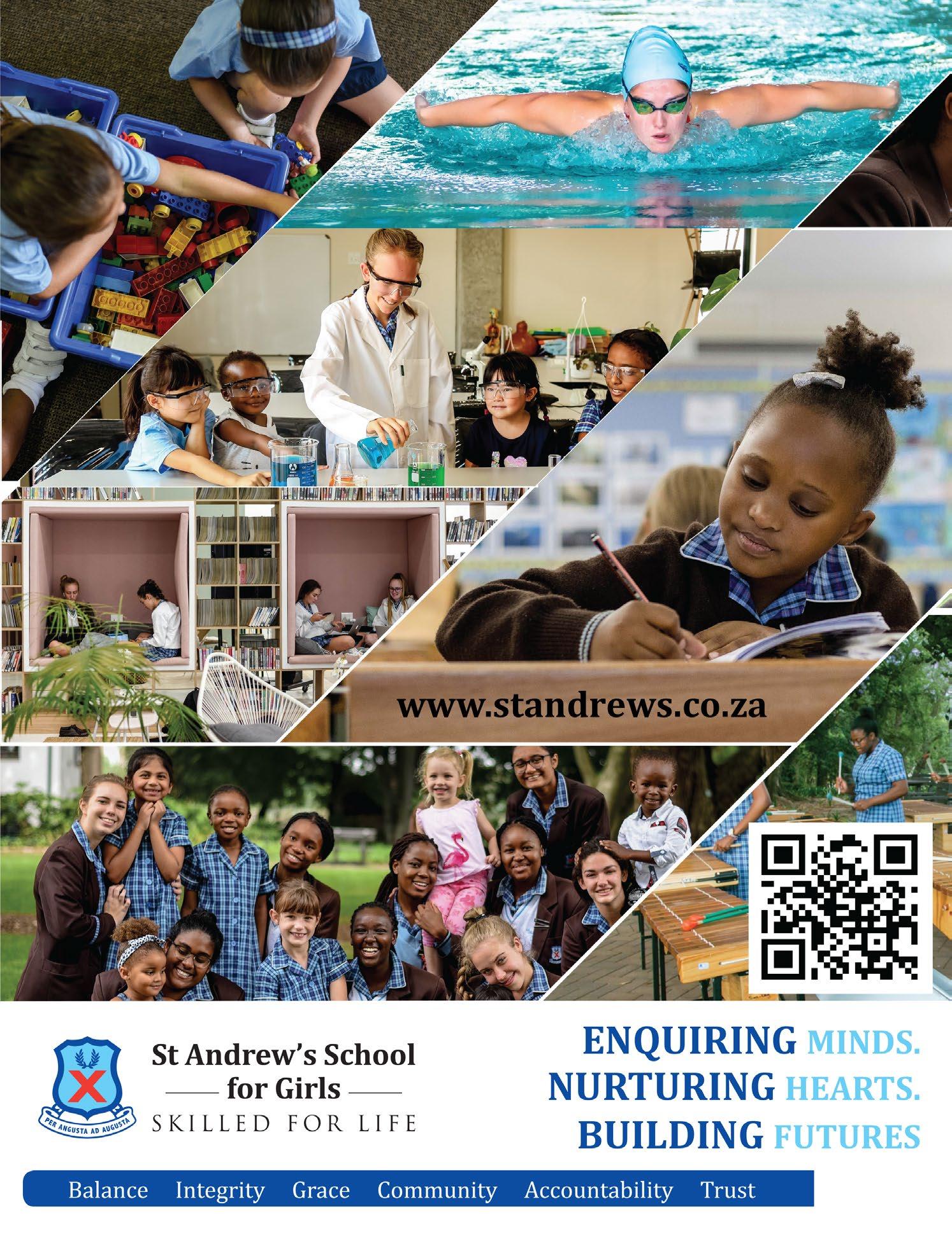

HAVE YOU EVER CONSIDERED THAT PLAYING WITH HOT WHEELS MONSTER TRUCKS IS NOT ONLY FUN BUT ALSO A BENEFICIAL ACTIVITY FOR YOUR KIDS? MONSTER TRUCKS CAN BE AN EXCELLENT STRESS RELIEVER FOR YOUR CHILD. THE FEELING OF CONTROL THEY HAVE OVER THE TRUCK AND THE POWER IT POSSESSES CAN BE EMPOWERING AND THERAPEUTIC. IT CAN HELP THEM BLOW OFF STEAM AND EASE ANY PENT-UP FRUSTRATIONS THEY MAY BE FEELING.
By Hot WheelsMonster Trucks can also be a great way for your child to get some exercise and fresh air. Running around, pushing, and pulling the truck, and playing in the dirt can help them burn off some calories and improve their cardiovascular health. Plus, getting outside and soaking up some Vitamin D from the sun can boost their mood and immune system.
The physical benefits of playing with Monster Trucks can also help your child develop problem-solving skills. As they navigate obstacles and create their own jumps and ramps, they'll start to develop critical thinking and spatial reasoning abilities. They'll also learn how to adjust and adapt their strategy as they encounter new challenges.
Hot Wheels Monster Trucks can help improve your child's hand-eye coordination. Manoeuvring the Monster Truck around obstacles and slamming it into things takes a lot of precision and control. Over time, they'll develop better hand-eye coordination and fine motor skills, which can transfer to other areas of their life, like sports or playing musical instruments.
Also, they can be a great way for your child to bond with friends and family. Whether they're competing in races, creating obstacle courses, or just smashing things together, the stress relief, shared experience, and light mood around playing with Monster Trucks, in general, create connections that benefit everyone as they create lasting memories.
Stand a chance to win a Monster Truck valued at R374.99! valued at R374.99!
To ENTER scan the QR code with your phone and complete the entry form online at www.futuresa.co.za/competitions/ Closing date: 30 June 2024. T&Cs apply.






















Helping children navigate AI
5 reasons you should take a further studies programme

ENGINEERING: THE DESIGN, BUILDING AND USE OF ENGINES, MACHINES AND STRUCTURES THROUGH SCIENCE AND TECHNOLOGY, FORMS AN ESSENTIAL PART OF FUTURE-PROOFING OUR NATION.
By The Love TrustAccording to Matshoene Tladi, Subject Head of the STEM (Science, Technology, Engineering and Maths) programme at Nokuphila School, "Our programme offers a well-rounded learning experience for learners. Our STEM programme is a learning bridge that connects our various standalone subjects. We equip students with essential skills in the form of hands-on experiments and challenges that integrate principles and knowledge from natural science, technology, mathematics and robotics, which includes engineering and coding."
What is the aim of the STEM programme?
Our world is undergoing a major shift with The Fourth Industrial Revolution, and we want our learners to keep up. To do so, Nokuphila has implemented a STEM programme that will help equip its learners for future job opportunities. The programme will also teach essential skills like analytical thinking, problemsolving collaboration, and digital literacy – all of which are increasingly important in today's ever-evolving landscape.
Why is it important to have STEM programmes in underprivileged areas?
The future of our nation and the world hinges on today's youth, many of whom are in impoverished neighbourhoods. To ensure that the youth have an equal opportunity to thrive, it is important to boost their confidence by providing them with resources and opportunities they may not otherwise be able to access due to financial constraints. Thereby enabling all children, regardless of socioeconomic status or background, a chance at success in this ever-evolving digital arena.
This initiative aims to provide individuals with the aptitude and skills they'll need in an ever-changing job market. Equipping them with confidence and modern tech knowledge, we hope our programme helps break their cycle of poverty while preparing them for future career opportunities and ensuring no one is left behind.
What are some of the problems facing STEM programmes in these areas?
Many impoverished communities lack quality STEM education programmes due to a shortage of resources. With limited funding available this problem is exacerbated, hindering any progress that can be made towards bridging this gap.
South African learners often face significant obstacles while developing literacy skills. As a result, they may struggle to learn and grasp science, technology, engineering and mathematics.
Local schools are facing an uphill struggle; basic learning necessities such as safe, functioning buildings and materials are paramount, and many of these institutions lack the infrastructure to provide even those. STEM programmes remain a distant dream due to the minimal resources available within their reach.
in these areas?
Investing in STEM programmes across school districts is essential for the success of private and public companies, governments, and all stakeholders involved. Leaders need to come together to develop effective solutions that strengthen financials so our schools can provide quality educational opportunities with a focus on science, technology engineering and mathematics. This collective effort will ultimately benefit the entire economy.
Schools need to collaborate with appropriate departments to create curriculums that are backed up and address issues related to the current social context. Additionally, working with vulnerable communities necessitates tailoring instruction toward their STEM needs.
With the help of generous sponsors, The Love Trust works to raise funds for its STEM programme. This involves presenting
proposals or getting creative with what resources are available. Sometimes money isn't even necessary to bring learning experiences like robotics into schools.
To make STEM engaging and enjoyable for learners, committed teachers that are willing to go the extra mile are essential. It takes skilled educators who have creative approaches to teaching complex material that will effectively engage their classes.
How can you help?
Tladi strongly believes that people with the necessary expertise should be encouraged to return to their roots and inspire students in educational institutions: "We can provide our youth with a valuable opportunity for growth by introducing inspiring role models, who have pursued successful careers, such as those from scientific advancements like space exploration."
Parents have an important role to play in encouraging their children's engagement with the educational programme. By providing resources, such as old and recycled items of interest that can be used for project-based learning at home, parents increase opportunities for development outside a traditional school setting.
In the ever-changing future of work, STEM skills are key for our children to succeed. We must embrace this Fourth Industrial Revolution and ensure that current students have the resources they need to be prepared. With a strong focus on problem-solving, we can encourage creative mindsets so young innovators don't just rely on someone else. Instead, equip them with confidence in their own abilities as well.
SAY THE WORD ‘SCIENTIST’ AND ONE MIGHT IMAGINE SOMEONE IN A LAB COAT INSIDE A STERILISED LABORATORY CONDUCTING EXPERIMENTS WITH COMPLICATED FORMULAS AND PETRI DISHES.
However, that is only a small fraction of what science actually is. The food of Chef Heston Blumenthal is science, so is the work of those mad storm chasers we see on television. The fashion designer who recycles plastic bottles into wearable clothes is a scientist too and so is the craft beer brewer.
“Science is all around us, it’s the basis for everything we use, wear, eat and drive. Science can and is used in almost every career and is a career path which is poised for growth, and we need to be teaching it that way,” says Shaun Fuchs, founder and CEO of Centennial Schools.
“The South Africa education system needs a new approach to teaching science to ensure we’re meeting the STEAM (science, technology, engineering, arts and mathematics) requirements of the country. South Africa faces a dire shortage of STEAM professionals,” Fuchs says.
“Because we produce so few STEAM experts, many jobs in the sector are outsourced to large multinational companies. What is urgently needed is homegrown STEAM talent. To achieve this, there needs to be a
dramatic change in the narrative around science, and the way in which it’s taught in our schools,” he adds.
Centennial School’s science teacher, and lifelong science fan, Lyn Haupt does exactly this by offering a new perspective on teaching science.
“At Centennial Schools we are technologybased on our education outlook. Students already enrich their lives with technology, and if we can use technology to enrich science learning, it’s a win for all of us.
“While textbooks are great supplements, we need to do real science using some form of technology. We record everything we do, we log our data, cell phones are used to measure time, pictures are taken, and videos are made –that how we show our students the importance of data analytics,” says Haupt.
Haupt’s biggest concern about traditional science teaching methods is that it reduces the subject to a set of fragmented facts, good for writing an exam, but really bad for a full understanding of what it all means in a real-world context.
“While our lessons have traditional content, we also teach our students to go through the mental and physical activity of doing science. We run experiments similar to those working scientists conduct so that the students understand the actual process of science,” she says.
“At the moment, the curriculum is designed for students to memorise facts. Students who scored good marks in matric go to university and end up failing tests because they know the facts, but not the application. We need to balance out facts with actually doing science that matters.”
The solution to this is simple, says Haupt, and needs to start as early as Grades 7, 8 and 9.
“We have to change the way questions are asked. We must do more practical work based on outcomes.”
Fuchs agrees: “Scarce skills in South Africa range from geologists to chemists, software developers, multimedia designers, investment managers, high school teachers and tax professionals. All of these require STEAM learning.
“STEAM education also contributes skills to the primary and secondary sectors of the economy – agriculture, mining, manufacturing, utilities, and construction – which contributes to around 30% of our GDP and 30% of employment opportunities. Once we start showing students that STEAM is a major influence in creating entrepreneurs and innovators, we are on the right track,” he concludes.
THE PRESIDENT
PROFESSIONALS SOUTH AFRICA (IITPSA), ADMIRE GWANZURA, HAS CALLED FOR MORE URGENCY IN THE INTRODUCTION OF ICT EDUCATION IN SCHOOLS, SAYING CHILDREN IN AFRICA ARE FALLING BEHIND THOSE ELSEWHERE IN THE WORLD.
Gwanzura welcomed the South African Department of Basic Education’s plans to introduce coding and robotics into the school curriculum for Grades R to 3 and Grade 7, but said efforts to introduce ICT in education needed to move faster.
“Our children and youth cannot wait for multi-year government projects to be implemented: the ICT sector is evolving all the time, and our young people to be empowered now, to live and work in the 4IR,” he said.
Without digital access and ICT skills, Africa’s children will remain at a disadvantage Gwanzura noted that the digital divide had been highlighted during the Covid-19 pandemic, when multitudes of children had fallen behind in their schoolwork due to a lack of access to digital technology and connectivity.
“Without digital access and ICT skills, Africa’s children will remain at a disadvantage when it comes to education, and opportunities in a borderless digital workplace,” he said. “Unless we equip them to compete for lucrative opportunities in a global job market, they will continue to labour on the wrong side of the digital divide. On the other hand, the benefits for individuals, communities and African GDP and development as a whole would be immense if all our children were digitally skilled and globally employable.”
“It should be noted that numerous individuals and organisations are making strides in empowering children and youths to master digital technologies,” Gwanzura said.
The IITPSA has recognised several of them, including Nyari Samushonga, the winner of the 2022 IITPSA IT Personality of the Year award and CEO of WeThinkCode and a tech academy
with a presence in Johannesburg, Durban and Cape Town. Tiyani Nghonyama, the IITPSA IT Personality of the Year award in 2019, is COO of Geekulcha, which teaches technology skills to rural and under-privileged youth. Girl Code, an NPO empowering young girls and women through technology, was the winner of the Social Responsibility/Community Award at the 2020 IITPSA President’s Awards.
Another noteworthy example is that of Prof Jean Greyling, Associate Professor in the Department of Computing Sciences at the Nelson Mandela University, and IITPSA Eastern Cape IT Personality of the Year 2019, whose Tangible Africa project is introducing learners to coding without the use of computers. Tangible Africa’s coding applications, TANKS and RANGERS, are being used to teach coding offline in underserved communities.
The IITPSA has also recognised the sterling work of Prof Barry Dwolatzky, Emeritus Professor in the School of Electrical and Information Engineering and director of the Joburg Centre for Software Engineering (JCSE) at Wits University, who has devoted his life to teaching, supporting and encouraging young software engineers. He was named the IITPSA IT Personality of the Year in 2013, and in 2016 he received an IITPSA award for Distinguished Service in IT.
The annual Computer Olympiad Talent Search initiative of the IITPSA challenges school learners of all ages and is designed to help them develop the problem-solving and computational abilities they need for all STEM-ICT subjects. In 2023, over 16 700 learners from 174 schools nationwide participated in the challenge.
“However, individuals and NPOs can only do so much. Fasttracking ICT in education requires a massive collective effort by all stakeholders across the public and private sector,” said Gwanzura.











MANY OF US HAVE, AT SOME POINT, DREAMED OF BEING OUR OWN BOSSES. THE ALLURE OF SETTING YOUR OWN RULES, FOLLOWING YOUR PASSIONS, AND DRIVING YOUR OWN SUCCESS IS UNDOUBTEDLY APPEALING. ONLY A SMALL NUMBER OF US, HOWEVER, EVER END UP PURSUING THAT DREAM. WHILE THERE ARE ANY NUMBER OF REASONS FOR THAT, AT LEAST ONE OF THEM IS THAT MOST OF US DON’T KNOW WHERE TO START.
“Why wasn’t I taught this in school?” is the common refrain. And it’s a fair one too because, outside of the odd market day, most of us weren’t taught anything about entrepreneurship at school or university. It’s also something that urgently needs to change if Africa is to address its substantial youth unemployment problem.
“Africa’s youth should be one of its greatest resources,” says Nolizwe Mhlaba, Community and Project Manager at The Anzisha Prize, an organisation born out of a partnership between African Leadership Academy and Mastercard Foundation that seeks to increase the number of job generative entrepreneurs fundamentally and significantly in Africa.
“They are increasingly well-educated, connected, and are reaching maturity at a time when other populations around the world are ageing and shrinking. Unfortunately, far too many young people around the continent end up leaving school or university without any real career prospects.”
With youth unemployment rates above 40% in both Nigeria and South Africa, it’s clear that a radical shift is needed. The best way to do that is to encourage entrepreneurship from the day a child enters the formal schooling system to the day they graduate. Entrepreneurs are, after all, drivers of economic growth, job creation, and even social change.
But how should education systems adapt to that need?
After all, you can’t jump straight in and try to teach primary school children about things like elevator pitches, term sheets, and burn rate. It can be difficult enough for degreed adults to wrap their heads around those concepts.

A good place to start is to understand what we mean by entrepreneurship in education. As a 2015 OECD paper notes, there are two competing understandings. The first centres on the narrow definition of entrepreneurship as someone starting their own business. The second, meanwhile, operates from a much broader base. In this understanding, entrepreneurship encapsulates “making students more creative, opportunity-oriented, initiativetaking and innovative, adhering to a wide definition of entrepreneurship relevant to all walks in life.”
While Africa obviously needs more out-and-out entrepreneurs, the second approach is much more likely to produce the outcomes that the continent needs.
“The last thing we want is a situation where the education system becomes a factory, producing cookie-cutter African versions of Mark Zuckerberg or Jeff Bezos,” says Mhlaba. “We also need people who can work with (and for) entrepreneurs, create policies that support entrepreneurialism, and who can find innovative solutions to the continent’s most pressing problems.”
Adapting this model to the education system means giving educators the tools they need to teach ‘through’ entrepreneurship, rather than teaching ‘about’ or ‘for’ entrepreneurship. That means integrating entrepreneurial thinking into other subjects across the curriculum and connecting entrepreneurial characteristics, processes, and outcomes to more general subjects.
“Using this approach, entrepreneurship becomes a habit for learners rather than a specific subject,” says Mhlaba.
While there are numerous organisations across the continent working to equip young people with these entrepreneurial skills, they can only achieve so much without effective government policy and implementation.
“Governments across the continent have stressed the importance of fostering youth entrepreneurship,” says Mhlaba. “In fact, it was a central pillar of South African President Cyril Ramaphosa’s 2022 State of the Nation Address. But they need to follow that sentiment up with informed policy.”
“It’s also critical,” she adds, “that educators be able to implement that policy, no matter what level they teach at. Fail to get that right and the policy won’t get widespread buy-in and will eventually collapse.”
Here, at least, some progress is being made. In South Africa, the Basic Education Department has run its E3 (Entrepreneurship, Employability and Education) initiative since 2018. The initiative aims to use “project-based learning methodologies to unlock an entrepreneurial mindset.” The country is also set to roll out entrepreneurship hubs at its Technical Vocational Education and Training (TVET) colleges to support graduates looking to move into self-employment.
There is still a long way to go, however. A report released by the Alliance for African Partnership found that African higher education institutions are still overly focused on preparing young people to work in the formal sector, leaving “little space for innovation or creativity.”
As Mhlaba points out, however, parents and guardians can still help prepare young people for entrepreneurship while we wait for the policy building blocks to be put in place. For many of these parents, this would mean educating themselves on how best to work with young people to prepare them for entrepreneurial careers.
“At the Anzisha Prize, for example, we work with parents, guardians and teachers to help them understand how best to nurture and raise entrepreneurial young people to enable their transitions from school to entrepreneurship as a career,” says Mhlaba. “We also provide educational resources and training to these parents and encourage them to use some of our books including Think Like A Parent: Act Like A Coach - a practical guide for parents on how to coach and support entrepreneurship in young people.”
These kinds of initiatives help build a fully entrepreneurial ecosystem and ensure that, even when every school child feels confident that they could be their own boss, they have the best possible chance of doing so.
THE UNIVERSITY LANDSCAPE, BOTH LOCALLY AND INTERNATIONALLY, IS INCREDIBLY COMPETITIVE. BECAUSE OF THIS, LEARNERS AND PARENTS OFTEN LOOK TO ALTERNATIVE LEARNING OPTIONS, LIKE FURTHER STUDY PROGRAMMES, AS AN ADDED ADVANTAGE.
By Advantage LearnPreviously, the only advanced curriculum you could take was Additional Mathematics (Add Maths) and it existed as an additional subject as part of the National Senior Certificate at the time. It was examined by both government and private schools as part of the DBE and IEB assessment bodies, respectively.
Today, high school learners are presented with three advanced curriculum subjects: Further Studies Maths, Further Studies Physics, and Further Studies English. Designed for academically advanced learners, the IEB’s Further Studies subjects (formerly known as Advanced Programmes) are geared to improve self-discipline and critical thinking skills.
Here’s why learners should consider taking any of these as additional subjects.

1. Further Studies undoubtedly have a positive impact on core subject results
James Lees, CEO of Advantage Learn says, “Ask any one of our learners and they will lay testament to this. Further Studies challenge you to learn concepts and theories ahead of your time. It also makes your normal school subjects seem a bit simpler and helps build your confidence and improve your general subject ability.”
Essentially, learners who engage in these challenging subjects are stretched further than their school subjects can, and they learn to approach each subject more broadly. This means that learners can apply more lateral thinking when it comes to their Core Mathematics, Physical Science and/or English Home Language subjects at school.
2. Further Studies, although it doesn’t give you points, seems to be a helpful differentiator of University candidate selection
In South Africa, we have an undersupply of higher education institutions and thus seats are limited at top universities. Differentiating yourself from the rest of the candidates is important.
Although doing a Further Studies Programme at a school level does not grant you any points towards your university application there is no doubt that it helps build a case for your acceptance into your chosen degree, diploma or course over other candidates at the same level.
3. The likelihood of you getting through any degree that requires Mathematics is greatly increased University is difficult. The difficulty of the content increases considerably from school to university and the style of teaching goes from ‘hands-on’ to ‘you are an adult now, ensure that you keep up!’. This is a big change for most learners and one that leaves some learners playing catch up from day one.
Doing Further Studies Programmes at a school level helps soften this sudden culture shock by helping to create a buffer of content that has already been learned at a school level. This gives you a slight advantage in the first year and allows you a bit more space to breathe and settle as you adjust to the heavy university life.
It can also increase your chances of making it through some modules in your first year and hence increases your chances of
excelling and successfully completing your chosen degree. As an example, in degrees where Mathematics and Physical Science skills are necessary, it becomes easier to excel in if you have taken Further Studies in Physics or Further Studies in Maths. These degree programmes include all engineering degrees, any subject where you will eventually use Statistics, Medical and Science degrees, Business Science and Actuarial Science.
4. Tackling important topics
Statistics is one of the most feared subjects, and it really shouldn’t be. Further Studies Maths allows learners to tackle this module throughout Grade 10 to Grade 12. This is an extremely beneficial module within Further Studies Maths because all learners going into higher education will at some point have to use statistics in their research, regardless of field.
Thus, getting insight and familiar with key topics in statistics is really helpful and is yet another reason to do Further Studies in Maths.
Communication and being able to formulate strong, supported arguments is also a critical skill to master. Further Studies English enables learners to master this important skill and expand their approach to tackling the written word. This essential skill can be applied across all degree programmes and will serve learners well throughout university and their working careers.
5. Pressure makes diamonds
Further Studies Programmes are in no way easy subjects and taking any one of these subjects will put a lot of pressure on learners.
However, with this additional pressure, learners who take on these subjects inevitably develop a strong work ethic. All too often the top candidates at high school settle into bad habits because they are able to cruise through the content. This creates a false sense of security that learning will always be easy in all environments.

At university, the workload and content difficulty increases dramatically leaving some learners, who have not developed good habits in school, struggling to stay afloat. Putting yourself under pressure will force you to step up your game and work hard at something that isn’t necessarily easy. This lays a strong foundation for further education and for life
Advantage Learn is a premier South African education company operating mostly out of Durban. We're a small team of passionate and driven individuals with the combined goal of making a difference in the South African education space.
We have a simple dream: to provide students with the best South African high school educators, resources, and technology, giving them the educational support, they need to thrive. Top-quality content and educational support, delivered in a way that makes sense, to students! We specialise in blended and online learning, with a special focus on STEM subjects & NBTs.


hen you express yourself, you show the world what you're passionate about, what you stand for, and what you believe in. This can help you connect with others who share similar interests and values, and it can also help you feel more confident and empowered.
However, self-expression can sometimes be difficult, especially for teens who are dealing with a variety of challenges. Some of the most common issues that teens face are:
• Bullying: Many teens experience bullying, either in person or online. This can make them feel isolated and alone, and it can also damage their self-esteem.
• Body image: Teens are often self-conscious about their appearance, and this can lead to negative feelings about themselves.
• Academic pressure: Teens are under a lot of pressure to perform well academically, which can be stressful and overwhelming.
• Family problems: Many teens come from families that are struggling with issues such as divorce, substance abuse, or financial problems.
• Mental health issues: Depression, anxiety, and other mental health issues can be especially difficult for teens, who may not know how to cope with these feelings.
Stand a chance to win 1 of 2 Monster High Dolls

valued at R749.99 each! valued at R749.99 each!
To ENTER scan the QR code with your phone and complete the entry form online at www.futuresa.co.za/competitions/ Closing date: 30 June 2024. T&Cs apply.
Important to recognise the warning signs Unfortunately, some teens may feel so overwhelmed by these challenges that they consider suicide. It's important to recognize the warning signs of suicide, such as talking about suicide, withdrawing from friends and family, and giving away possessions. If you or someone you know is experiencing these warning signs, it's important to seek help immediately.
One way to prevent suicide is to encourage self-expression. When teens feel free to express themselves, they are less likely to feel isolated and alone. Here are some ways to encourage selfexpression:
• Encourage creative expression: Whether it's through art, music, or writing, creative expression can be a powerful way to express emotions and connect with others.
Listen actively: When teens feel heard and understood, they are more likely to open up and express themselves.
Provide a safe space: Teens need a safe and supportive environment where they can be themselves without fear of judgment or ridicule. Celebrate uniqueness: Encourage teens to embrace their individuality and celebrate what makes them unique.
As kids grow older, exposing them to inclusive content and products like Monster High enables them to recognize that each of us is unique, and learn to embrace what makes them special.
Dealing with self-esteem or mental health is always a challenge, but cultivating an inclusive system of engagement and play is one way to create a more supportive and accepting world.
ACROBRANCH IS A TREETOP EXPERIENCE OFFERING CHILDREN AND ADULTS A UNIQUE ADVENTURE AS THEY MOVE FROM TREE TO TREE IN LUSH, GREEN FORESTS. OBSTACLES CONSIST OF AWESOME TREETOP ROPES AND TRICKY CROSSINGS (WITH LADDERS, TUNNELS, WALKWAYS AND BRIDGES). WE ALSO OFFER SPECTACULAR ZIP LINES TO TOP IT OFF.
You will enjoy two hours of fun and adventure – it is an awesome way to experience something truly unique! With four exhilarating Treetop Adventure courses at each of our 11 locations across SA; Acrobranch offers adventure for everyone. All fitness levels are welcome.


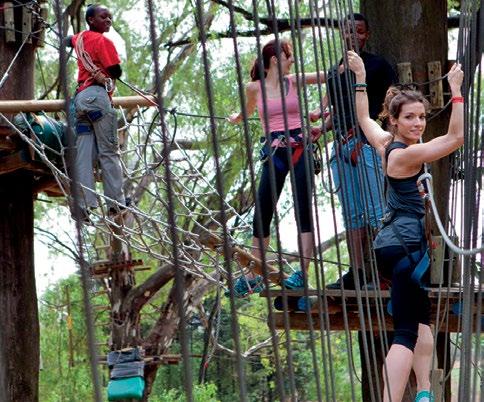
Build confidence and coordination while you have fun
Not only are our adventures all round fun, but they are a great activity to build confidence and coordination. Slide, balance, jump, crawl, dash, swing, or stroll – our courses will test your physical ability, brainpower, and balancing skills. It is a wonderful way to get those muscles and minds working in a beautiful and peaceful outdoor setting.
Acrobranch is the ideal location for kids’ and adults’ birthday parties, fun days out with family and friends, corporate events and team buildings and school trips. Invite your tribe to climb, swing, balance and explore their way around our adrenaline-packed courses.

Safety is our priority, and we ensure that every individual is harnessed and given training before embarking on any of the courses. We introduced the Clic-It system at all our parks. A continuous belay system prevents anyone from detaching both carabiners at the same time. Obstacles including zip lines were designed and built to European standards and verified by European industry experts. Our safety gear is EUmarked and imported directly from Europe.
On arrival we brief you about safety before you take off on an obstacle course. Our experienced instructors will keep a watch over things, ready to jump in if a helping hand is needed.
Each park offers its own set of rules regarding catering. While some parks offer the option to self-cater, there are a few parks that have restaurants (separate entities from Acrobranch) on their premises with delicious cuisine, and you will be required to order your food and drinks with them.
Gauteng: Pretoria North, Garsfontein, Centurion, Melrose, Casalinga, and Germiston
Western Cape: Stellenbosch, Constantia, and Garden Route
KZN: Pietermaritzburg and Hillcrest
ACCORDING TO THE WORLD HEALTH ORGANIZATION, NEARLY 700 000 PEOPLE DIE BY SUICIDE EVERY YEAR. THAT'S AN AVERAGE OF ONE PERSON EVERY 40 SECONDS. SUICIDE IS THE 4TH LEADING CAUSE OF DEATH AMONG 15 TO 19-YEAR-OLDS GLOBALLY AND IN SOUTH AFRICA, 9% OF ALL TEENAGE DEATHS ARE DUE TO SUICIDE – AND THE NUMBERS ARE INCREASING.

The Covid-19 pandemic and resultant lockdowns have sharply focused attention on the mental health and wellbeing of young children and teenagers. However, the lockdowns simply shone a spotlight on issues too often ignored or relegated to the side lines. These issues have been impacted by daily stresses which have been exacerbated by isolation, being away from friends, and bullying amongst many others.
Nkazimulo Zitha, Head of School Achievement, at SPARK Schools says, “we constantly aim to create a community of well-informed and mentally healthy scholars who embody SPARK’s core values, are aware of wellbeing challenges and are able to communicate them. It starts by being well-informed and willing to have open conversations.”
SPARK Schools has contracted The Care Junction, a therapy and educational support services company that often visits the various networks to help navigate mental wellbeing conversations with its scholars.
The aim is to create a safe space for scholars who may want to discuss personal issues ranging from bullying, trauma, anxiety, or any issues affecting their mental health. “Lockable ‘safe space boxes’ have also been created for those scholars who would like to write their concerns, questions, or requests for support so that they can be counselled, as necessary. Scholars are also able to email Care Junction’s mailbox to report or share any wellbeing challenges,” adds Zitha.
Children and adults have bad days, but there are signs that your child’s bad day may be more than just a mood. Experts agree that some clear signals should alert parents that everything is not going well with their children.
• Prolonged unhappiness
• An inexplicable drop in school marks and an unwillingness to go to school
• Changes in social habits which include withdrawing from friends and activities your child liked
• Struggling with concentration
• Struggling to sleep and do not want to eat
The South African Depression and Anxiety Group (Sadag) is a free and accessible resource. Contact them on 011 234 4837 or use their 24-hour helpline 0800 456 789
As a society, we need to ask tough questions like, how mentally healthy are our children and how do we make sure they have all the tools to cope with mental health issues?
Parents and schools can play an important part in assisting our children to understand their mental health journey, but too often the behaviour of young people is seen as “weird” or “antisocial”, rather than delving into the causes of those behaviours.
Most parents know that attempting a conversation with a teenager is not easy and results mostly in grunts and oneword answers. Teenagers are like that, but if you think your child is in mental distress, talk to them to see if anything has happened at school.
“If bullying is involved, do not take the law into your own hands, or tell your child to retaliate. Schools have procedures in place for these issues, use the correct channels and processes that have been communicated to you by the school. Make sure your child knows you are on their sideyou are the safest adult protection they have,” says Zitha.
1. Be genuine, teenagers know it when someone is feigning interest. Also, be honest about your comfort in having such a discussion. A practical application of this
discussion could be: “This is hard for me to talk about, and I understand that it’s just as hard for you to talk about.”
2. Don’t talk down to your teenager, and don’t try and use the language or slang they use – this could come across as disingenuous. Communicate in a way you’re comfortable with, like you usually do.

3. Don’t feel the need to fill the silence. Let your child think through their thoughts and responses without pressure or judgement.
4. Choose carefully where you have your conversation. A chat, while you are busy with something else, is not going to work. Your venue should be a safe space for you and your child, and one where your child has your undivided attention. Make eye contact and make sure they know you are listening.
5. What seems trivial to you, may be a massive issue for your child. Their experiences or emotions are not less valid because they are young.
The more normal we make these conversations, the easier they will get and the more support your child will feel.
Talk to the teachers at school to see if your fears are founded. Talk to your GP about your child’s mental health issues; your GP can easily make a referral to a mental health specialist.
ACADEMIC INSTRUCTION IS ONE OF TWO KEY COMPONENTS TO SUCCESSFUL EDUCATION. THE SECOND, EQUALLY AS IMPORTANT, ARE THE NON-TANGIBLES THAT SHAPE LEARNERS AND NURTURE A FOUNDATION OF LIFELONG LEARNING, SAYS ST MARTIN SCHOOL ACTING HEADMASTER WARREN VENTER.
“A well-rounded education prepares students for success not only academically but also in all aspects of their lives. While academic knowledge is essential, it is not the only factor that contributes to a student's success and well-being,” he adds.

Venter explains that a focus on the intangibles, such as social-emotional learning, health and well-being, and civic engagement, can positively impact a student's academic performance and future success.

Values like courage, kindness, inclusion and empathy are important in the learning cycle.
St Martin School merged its high school and primary school campuses to create a consolidated learning environment. Venter believes that a single geography for primary and high school creates a more positive transition between scholastic stages while also allowing a greater measure of role modelling between older and younger learners, in line with the school’s lifelong learning philosophy.
"Lifelong learning is essential in today's rapidly changing world, where new technologies and innovations are constantly emerging. We want our students to develop a love of learning and to be curious about the world around them. By instilling a commitment to lifelong learning, we are preparing our students for success in a constantly evolving global economy,” he adds.
“It is our intention to build the people who build tomorrow,” Venter adds.
He says that lifelong learning is the continuous pursuit of knowledge and personal growth throughout one's lifetime. “And for us, it starts here, where we are able to lay solid foundations and a love for lifelong learning.”
"Our students learn skills that result in a holistic education, we are nurturing a foundation that will serve our students well beyond their time in the classroom,” Venter says.
The school also emphasises the importance of entrepreneurship, critical thinking and community service and has developed several initiatives to instil this as part of the school’s greater cultural milieu. Students are encouraged to participate in projects, discourse and volunteer work, both within the school community and beyond.
"We want our students to understand that they have a responsibility to make a positive impact in the world," Venter says. "By instilling a sense of confidence, ambition and civic engagement and a commitment to service, we are helping our students develop the empathy and leadership skills they need to become responsible and contributing global citizens."
By creating a safe and inclusive learning environment where students feel supported and valued, learners develop the confidence and skills they need to succeed academically and in life. Venter said that he believes students must take away more than a set of marks when their scholastic career transitions to tertiary education and later, a career.
Venter says that this is an interpretation of true outcome-based education.

DOES THIS SOUND FAMILIAR? FOR SOME TIME NOW, YOUR CHILD’S SCHOOL MARKS HAVE BEEN DROPPING. THEY’VE BEEN COMPLAINING THAT THEY HATE MATHS OR DON’T LIKE THEIR TEACHER. AND THEIR SELF-CONFIDENCE HAS TAKEN A DIP.
ou’ve been meaning to get help, but now the situation is so bad that you simply can’t leave it any longer. So, what do you do?
The sooner you intervene, the better the outcome for your child, say husband and wife team Wynand and Gemay van Heerden, founders of academic extension centre Edify. “The longer you leave it, the wider the crack. Act immediately.”
The figures prove their point: they have found that both learners who start with Edify in Grade 8 and matric will increase their marks – but it makes a big difference whether they start
1. Consider the snowball effect
with, say, 75% in Grade 8 or 40% in Grade 12. “As an example, we might pick up a child’s marks in matric from 40% to 60%, but the kid who started in Grade 8, we pick up from 75% to 90%.
“We had the second group in matric that started in Grade 8 with us – and our average mark for a child who started with us in Grade 8 is 80%, where our average mark for a learner who started with us in matric is around 62%,” says Wynand.
Every child can benefit from tutoring if they’re in the right environment, he adds – even those who are already doing well at school.“Tutoring is not just for children who are struggling; it’s also to provide that extra push,” says Gemay. “Many of our students are doing phenomenally well. It’s all about challenging them and enriching them with skills they’re going to need.”
“Maths is a very emotive subject,” says Wynand. “Your marks can decrease very quickly – but the other side of the coin is that they can also increase quickly.” Tutoring can help your child stay on the “right side” of that trajectory.
“Once a child believes they can do Maths, they then want to do Maths, and from there it’s a snowball effect… The moment they start doing better in Maths, everything else follows, because then they start believing in their own abilities,” adds Gemay.
But once your child starts believing they “can’t do Maths”, it can quickly lead to a loss of confidence and self-esteem.
Parents should be aware of several critical areas in specific grades to ensure Maths success:
• Preschool: start developing a love for numbers, through playing “in a smart way”
• Mid-primary school/Grade 4: this is when your growing child becomes quite self-aware. If they’re on top of Maths at that time, it’s good for their selfesteem and social and academic development – if not, seek help
• Grade 7 is when your child prepares to go to high school. Their Maths must be at a level where they can start Grade 8 on the front foot. If they’re struggling now, this is an excellent time to find support
• Grade 9: this is a watershed year when your child must master many fundamental Maths concepts and topics (such as, vitally, factorisation) – get help if your child is falling behind
• Grade 11: the Grade 11 exams are critical to provisional university acceptance – make sure your child has the support they need
Tutoring can also make all the difference when it comes to subjects such as Afrikaans First Additional Language. Children often start at Edify with a very limited Afrikaans vocabulary which, says Wynand, “is like going to war without bullets”.
“We need to increase their vocabulary in order for them to have more options when they’re answering an exam question.”
Gemay adds, “Again, if they get to us early, we can really do a lot for their language.”
So, what do you need to know when it comes to personalised learning and the benefits of tutoring? Here are some top tips from Wynand and Gemay.
If you see your child studying hard, but their marks don’t reflect it, something is going wrong.
But what? Expert educators are trained to pinpoint problems and find solutions.
Qualified teachers know the baseline knowledge that children should have at different stages of their schooling, says Gemay. They can assess where your child is academically, where they should be – and how to get there.
Edify offers free 30-minute baseline assessments by subject experts in your child’s grade, both to provide feedback to parents about the way their child learns and to allow the teachers to create an individualised action plan.
For subjects like Maths, the assessor will look at your child’s understanding of foundational subject matter, and whether they can apply new knowledge and retain that information. This will help them determine which aspects to focus on and what pace to set.
If there’s any doubt in your mind, says Wynand, bring your child for an assessment. “Get to us early – the sooner we intervene, the more we can do.”
There are myriad tutoring options out there, but Wynand and Gemay warn parents against simply going for the cheapest option.
It may be more economical to pay a university student for extra lessons, but they may not know the exact requirements of the curriculum or how to convey complicated concepts effectively. Chances are they’re not equipped to assess your child, work on specific areas of concern or know what they’re working towards.
“You get what you pay for,” says Wynand. “What sets us apart is that you will have an expert working with your child who checks every single thing they do and immediately picks up on areas of concern.”
“Our teachers do continual assessments and do not label the kids – as they improve, we also adapt their learning programmes. That’s why we assess our kids on a weekly basis.”
All Edify’s teaching staff work full-time for the company and are university graduates with extensive knowledge of their subject matter. Many have teaching degrees, are qualified engineers, have BSc degrees, or are chartered accountants. Daily lessons start at 1.30pm, with the last session commencing at 5.30pm. Three mornings a week, all teachers undergo training on different aspects of the syllabus.
“We see this as a major differentiator for Edify because you can always improve as a teacher,” says Wynand.
Some parents may wonder about the value of extra classes if they’re already paying for a good school, but the goal is for the two services to complement each other, stresses Gemay.
At Edify, the teacher-to-learner ratio is, at most, 1:5 or 1:6 for the older grades (and less for the younger grades). “So, we have an indepth idea of where every kid is at. Every single thing a child does, we check.”
While the basics of the teaching remain the same for all learners in a grade, the questions they are set and the pace at which they work will differ, he explains.

Parents often think it’s normal if their child’s performance declines once they start high school, but that perception is false, stresses Wynand. “If your child is a 90% candidate in primary school, they should be operating at the same level in high school.”
Something is wrong if there’s more than a 10% deviation in your child’s results, and marks should also not be going down from year to year, he adds. So, don’t wait until their marks have dropped by 20% or more before seeking help.
Consult an expert if your child:
• (Grade 3 and younger) starts saying things like, “I hate Maths”, “I don’t like my Maths teacher” or “I don’t like numbers”
• Writes numbers the wrong way
• Starts believing they can’t do a particular subject
• Can’t count forward and backwards by grade 2 or 3
• Can’t do fractions by grade 4 or 5
• Marks drop once they start high school
• Marks decline year on year
• Marks are constantly fluctuating by more than 10%
If a child is self-confident, the battle is 60% won, says Wynand. Trained Edify teachers know how to build learners’ confidence.
Make sure your child is 100% “present” when they’re studying – cell phones and social media are big distractions. Rather set aside an hour for TikTok and Instagram, and then get your child to focus on their studies.
Finally, stresses Wynand, there’s no need for a child to study for hours or days on end – you need to work constantly, and in shorter increments, to get the brain to process the information you just learnt.


ARTIFICIAL INTELLIGENCE ALREADY PLAYS A SIGNIFICANT ROLE IN OUR DAILY LIVES, FROM CORRECTING OUR TEXTS, TO NAVIGATING OUR WAY AROUND TOWN, INTERNET SEARCHES, TO THE WAY WE INTERACT WITH OUR BANKS AND OTHER ORGANISATIONS. WITH THE RELEASE OF CHATGPT, THE REALISATION THAT AI IS RAPIDLY BECOMING AN INTEGRAL PART OF OUR CHILDREN’S LIVES AND EDUCATION HAS BEEN BROUGHT TO THE FORE.
An education expert says that with the rapid emergence of ChatGPT, we were denied the opportunity to discuss and process our thoughts, to prepare ourselves and our environments – even though we had received ample warning.
Our initial reaction tended to revert to a deficit perspective and the need to stop or prevent this type of AI entering our school and educational institutions or systems as we did not want the negative influences and disruption that it may have on our children’s education or prospects.
“But just as we had to adapt to the use of calculators in the classroom decades ago, so we will need to adapt to the use of AI in our classrooms and homes. Within the context of schooling and education, we will need to enter discussions with all stakeholders to ensure that we explore and develop deep ethical understandings and central agreements around how we use AI,” says Lynda Eagle, Academic Advisor at ADvTECH, Africa’s leading private education provider.
“We will need to redefine expectations around plagiarism and copyright, how we can pre-empt the pitfalls and put in place scaffolding to assist our children as they navigate their way, and mould and create their own narratives and personal learning journeys.
We can further design learning experiences that move from the regurgitation of content to that of deeper contextual understandings – to experiences that are relevant, where
connections can be made and where what is learned can be applied to real world situations,” she says.

Eagle says that in the early years, it is important to remember that students learn best through play-based learning opportunities. This ensures that their executive functioning develops the way that it is intended to – through exploration and discovery, through real-life experiences and interactions with the world around them, and through reciprocal and supportive relationships. “So, in these critical spaces of the student’s development, we must be very intentional in the way we introduce our children to devices, the appropriateness of the content they watch and the amount of screen time that they are exposed to. In the older years and as our children become more proficient with the use of AI, it is our responsibility as educators and guardians to remain aware of what is available and the impact that it has on our students’ wellbeing and ability to learn.
“Our focus should remain on how we can then expose our children to deeper contextual learning experiences – where they can develop their critical and creative thinking skills, where they can make comparisons, look for patterns, identify bias, hypothesise and find solutions. Where innovation can be taken to new levels, where their ability to communicate can be enhanced, and where their learning can be facilitated by the exposure to the information they require to make informed decisions and create deeper understandings.”
“Through all of this it is also important to not forget that we are building our children’s digital citizenship to ensure that they engage with AI safely and mindfully,” adds Eagle.
Breaking down the possibilities further, parents and educators can promote AI and technology in the following ways:
Encourage exploration: Encourage children to explore and experiment with AI technologies, such as chatbots, voice assistants, or educational apps – this is done more effectively where parents and educators take a more ‘co-viewing’ approach and mindfully evaluate the benefits or pitfalls of the application together.

Teach critical thinking: Teach children to think critically about the information they receive from AI-powered sources, and to layer their own insight on top of the information they receive. It is important that children understand how algorithms work and how to ask questions in a way that can identify bias, and inaccurate statements.
Foster creativity: Encourage children to use the information they have gained to create their own ideas and solutions, and to apply these to new learning situations or experiences.
Model healthy tech habits: Model healthy tech behaviours – this includes the limiting of screen time. It is important that they participate in non-tech activities such as playing games, outdoor time, reading and connecting with friends and family.
Limit reliance on AI: While it can be the easiest path of least resistance, having information at your fingertips in an instant may only fuel the need for instant gratification. It is important that children are aware that there are many resources and that building a deep understanding means looking at a situation from many different perspectives. This means that they need to explore different resources, brainstorm, communicate and collaborate, hypothesise, develop their arguments for or against, and that information should never be taken at face value.
Eagle says teachers, parents and guardians and children should be made aware of the pitfalls of AI as it relates to their privacy, bias, and accuracy, how they should respond in such instances and what course of action they should take.
“In this constantly evolving space of AI, parents and educators must always remain cognisant of the pivotal and protective role that they play as their children navigate their way in a new world full of opportunities, possibilities, and potential.”


IF ONE THINKS BACK TO THEIR EARLIEST INFLUENCES ON HOW THEY CHOSE THEIR CAREER PATH – ONE’LL OFTEN FIND AN EDUCATOR’S NAME HAILED AS A GUIDING LIGHT. WHETHER IT’S EARLY ON IN ONE’S SCHOOLING YEARS OR LATER AS A TERTIARY STUDENT, TEACHERS HAVE THE INNATE ABILITY TO RECOGNISE THE POTENTIAL IN THEIR STUDENTS, ENCOURAGE THEM TO WORK HARD AND THRIVE IN THEIR TALENTS, AND IMPORTANTLY, ACT AS A SOURCE OF INSPIRATION AND MOTIVATION.


Every student has the potential to reach their true academic potential and rise above the socio-economic conditions they live through –however, this can only be attained through targeted support. This is why it’s critical to continue empowering not only our students but also the teachers at the frontlines of education.
According to UNESCO data, sub-Saharan Africa has the highest rates of education exclusion in the world, with over one-fifth of children between the ages of six and eleven out of school, and girls particularly disadvantaged. Moreover, we know that teaching has its bevy of challenges across the continent.
Findings from HP’s education-focused survey in Africa sheds light on the education landscape in the region. How teachers’ skill sets can be improved so that students’ learning experiences enhance and how we can overcome challenges faced by educators, that can negatively affect teaching outcomes. These include a lack of basic materials, adequate technological resources, having too many learners in their classrooms, and not sufficient time to assist individual students.
Despite these challenges, at least 95% of teachers surveyed in South Africa and Nigeria are optimistic about their jobs and their roles in shaping and inspiring the future leaders of tomorrow.
Maggie MacDonnell, a Canadian educator based in Tanzania working on teacher training, recalls her earliest and biggest influence in teaching.
“There were key moments where I saw my work as a teacher pivoted in the right direction. I was teaching in an isolated context, an Inuit village in the Canadian Arctic that could only be reached by plane. My school board at that time, did so much heavy lifting, to provide us with some specific and highquality professional development training that just hit home, it spoke to our reality. “
“We had one trainer help us understand intergenerational trauma and how this affected our students, from a neuroscience perspective to their wellness. By understanding them better, I was able to figure out how I could be a better teacher to them. To meet them where they were at,” MacDonnell adds.
After the weekend workshop, MacDonnell said she stepped back into the classroom with new ideas, outlooks, and tools.
“I could better connect with my students and was no longer failing them. When you uplift and support a teacher with quality training, you uplift the hundreds of kids they will work with throughout their lifetime. It is such a strategic investment.”
That early inspiration has come full circle today, as she too works to encourage and advocate for learners and educators, and hopefully, inspire them to believe in themselves.
MacDonnell has had a long-held passion for teaching in marginalised communities. Presently she is in Tanzania, East Africa with her partner and children, working on teacher training programmes.
MacDonnell added that she was excited to know HP was leading custom training for teachers across Africa. “Teachers on this continent face incredible challenges, and by working with them to provide training – you are releasing bottlenecks in these systems – that can affect a whole generation.”
By joining forces as educators, institutions, NGOs, government, and the private sector, we can turn the face of education around for African children. It is heartening to see companies such as HP champion this ideal by not only supporting students but educators too – and that can only lead to wider progress for the sector.
The HP Innovation and Digital Education Academy (HP IDEA)[2], offers educators in Africa, and many other parts of the world, the opportunity to create digital capabilities based on educational frameworks from leading global universities.
The programme is part of HP’s commitment to enabling better learning outcomes for 100 million people globally by 2025 and has thus far been launched in 19 countries across Africa, the Middle East, and Central Asia.
Our next frontier in education is bridging the digital technology divide across the continent, for both educators and students. Providing increased access to quality education in Africa is the key to not only alleviating poverty for millions of young people but also can inspire hope and enabling change for generations to come.
References:
[1] Global Teacher Prize is an annual US$1 million award by the Varkey Foundation to a teacher who has made an outstanding contribution to the profession. Nominations of teachers who meet specific criteria are open to the worldwide public.
[2] The HP Innovation and Digital Education Academy The HP Innovation and Digital Education Academy (HP IDEA) is an immersive instructional leadership program for educators, offering two pathways - HP IDEA Fellowship and HP IDEA Associates - that foster digital pedagogy skills and help develop an innovation mindset.

By offering Cambridge Primary and Lower Secondary, you can provide a broad and balanced education for your learners, helping them to thrive throughout their schooling, work and life. Cambridge Primary is typically for students aged 5 to 11 years, whilst Lower Secondary is for students aged 11 to 14.
By offering Cambridge Primary and Lower Secondary, you can provide a broad and balanced education for your learners, helping them to thrive throughout their schooling, work and life. Cambridge Primary is typically for students aged 5 to 11 years, whilst Lower Secondary is for students aged 11 to 14.

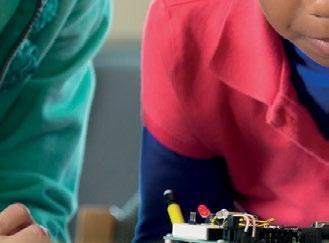










With 10 subjects to choose from, including English, mathematics and science, the programmes provide excellent foundations for the next stage of education, as well as plenty of opportunities to develop creativity, expression and personal wellbeing in a variety of ways.
With 10 subjects to choose from, including English, mathematics and science, the programmes provide excellent foundations for the next stage of education, as well as plenty of opportunities to develop creativity, expression and personal wellbeing in a variety of ways.




Schools can shape the curriculum around how they want students to learn. Because the programmes are flexible, you can adapt the content to suit your context, culture and ethos. The programmes are part of our Cambridge Pathway, which gives students a clear path for educational success from age 5 to 19.
can shape the curriculum around how they want students to learn. Because the programmes are flexible, you can adapt the content to suit your context, culture and ethos. The programmes are part of our Cambridge Pathway, which gives students a clear path for educational success from age 5 to 19.
Cambridge Primary and Lower Secondary
Cambridge
A broad curriculum.
We are part of the University of Cambridge. Our mission is to contribute to society by enabling teaching and learning at the highest international levels of excellence.




We are part of the University of Cambridge. Our mission is to contribute to society by enabling teaching and learning at the highest international levels of excellence.






A broad curriculum. A balanced education. A strong foundation.
We believe in an education that takes your students further. That’s why we have designed Cambridge Primary and Lower Secondary to help equip younger learners to thrive throughout their schooling, work and life.
It all adds up to being ready for the world.
We believe in an education that takes your students further. That’s why we have designed Cambridge Primary and Lower Secondary to help equip younger learners to thrive throughout their schooling, work and life.
To learn more, visit www.cambridgeinternational.org/why-choose-us
It all adds up to being ready for the world.
To learn more, visit www.cambridgeinternational.org/why-choose-us

76 AI & higher education
Meaningful & impactful community engagement in higher education
Business schools show a competitive edge in alumni employability


WHEN UNIVERSITY STUDENTS HEAD BACK TO UNIVERSITY THROUGHOUT SOUTH AFRICA, THEY ENTER A WORLD OF STUDY THAT HAS ALREADY CHANGED JUST FROM LAST YEAR AND WILL CONTINUE TO DO SO MORE RAPIDLY THAN EVER BEFORE DUE TO TECHNOLOGICAL ADVANCEMENTS CHANGING THE LANDSCAPE ALMOST FROM ONE DAY TO THE NEXT.
This is why these students should, as soon as possible, strategise their career trajectory, taking into account not only their current graduate studies, but also potential post-graduate options, an education expert says.
“Today’s students are developing their skills in the face of an uncertain future, the only certainty being that they
will be competing in a very tough job market by the time they graduate,” says Peter Kriel, General Manager at The Independent Institute of Education, South Africa’s leading private higher education provider.


Reduce uncertainty and stress
“One of the most important reasons for strategising one’s
career trajectory from early in your studies, is to reduce uncertainty and stress, by knowing that you have a solid plan in place which will allow you to focus on going above and beyond in your everyday endeavours during your academic journey,” he adds.
“By having a plan in place, you will feel more confident and in control of your future, which will allow you to be resilient if the landscape changes on the way and allows you to make decisions with greater clarity and purpose, rather than feeling overwhelmed by the many options and uncertainties that will be coming your way.”
A post-graduate qualification will become a nonnegotiable to remain competitive
Kriel says in coming years, a post-graduate qualification will become a non-negotiable for remaining competitive in the job market, which is why it is important for students to factor that into their academic journey from as early as possible.
“Postgraduate studies are of course a significant investment, so it is therefore, important to carefully consider your goals and options before pursuing an advanced degree. It's also important to choose a programme that aligns with your career goals and provides the skills and knowledge you need to advance in your chosen field. It is for this reason that this decision should be top of mind throughout one’s graduate studies, and not be left until the last moment.”
Kriel says making the contemplation of post-graduate studies part of one’s graduate student career has a number of benefits, most notably the fact that time is on one’s side.
“When you start planning your career trajectory early, you have more time to explore different options and make informed decisions. You can take advantage of opportunities as they arise and make adjustments to your plan as needed.”
It also allows a student to continuously align their academic and career goals. “In other words, you’ll be able to select programmes leading to qualifications, the elective modules within such programmes where applicable and the focus of any research projects in such a way that will best support your career aspirations and build the skills and knowledge you need for your future studies and career.”
Knowing that you’ll be continuing your studies will also allow you to start building your professional network, says Kriel.
“While studying towards your first qualification in university, you will have opportunities to connect with academics, alumni and industry professionals who can help you build your professional network, which will not only be able to support you as you progress to post-graduate study and point you towards new
opportunities but who will also later be a valuable support network as you enter the job market.”
With technological advancements and automation changing the nature of work, employers will in future increasingly look for candidates who have advanced skills and knowledge, regardless of their field of study, as no field is exempt from these developments, says Kriel.
“A postgraduate degree not only demonstrates your commitment to professional development and objectively increases your competitiveness and earning potential in the job market, but also proves that you have deepened your understanding in your field of expertise and that you can stay on top of new developments.
“By starting now and taking the time to consider your options and make informed decisions, you can set yourself on a path to a successful and fulfilling future from early in your university career.”
Study trajectory: how each qualification level builds on the next
First degrees and diplomas (NQF LEVEL 6 or 7): A first degree or diploma equips you with the toolkit to do certain tasks and enables you to become competent in delivering on the key outputs in line with these tasks. Some four year professional degrees are on Level 8).
Honours degrees (NQF 8): When competency has been achieved in terms of the toolkits acquired in the first qualification, an honours degree allows you to level up by learning how to use different tools at once, particularly in relation to one another. This brings a new level of maturity within the field.
Postgraduate diplomas (NQF 8): An option to expand you knowledge base and specialisation. For example if you have a general business-related undergraduate degree and you would like to gain deeper insight into for example marketing or human resource management – or even beyond that.
Master’s degrees: A master’s degree develops the art of being able to synthesise and develop independence in a field. Instead of just being able to competently develop an identity for a brand, now you start to be able to stretch a brand’s identity into mergers and acquisitions and product portfolios.
Doctorates: Doctorates enable you to contribute to thought leadership and development of the field.
The University of KwaZulu-Natal (UKZN) has been ranked in the top 2.4% of 20 531 universities worldwide on the 2023 Centre for World University Rankings (CWUR) list.

The CWUR publishes the largest academic rankings list of global universities, according to its President, Dr Nadim Mahassen, who congratulated UKZN, saying the Institution’s highly ranked position is an outstanding achievement.
Mahassen said the rankings are unique in that:







• Objective indicators are used for all four key pillars underlying the methodology of the ranking (education, employability, faculty, and research) with no reliance on surveys and university data submissions;
• Equal emphasis is put on student-related and faculty-related indicators;



• 62 million outcome-based data points were used for this year’s rankings; and

• 20 531 universities were ranked according to their academic performance.
Further detailing UKZN’s achievement, Mahassen said the University ranked 478th out of the 20 531 institutions in the survey and was placed in 4th position in Africa and in South Africa. UKZN had an Employability rank of 360, a Research rank of 469 and an Education position of 500.

The CWUR uses seven objective and robust outcome-based indicators grouped into four areas to rank the world’s universities:

1) Education: based on the academic success of a university’s alumni, measured by the number of alumni who have received top academic distinctions relative to the university’s size (25%);


2) Employability: based on the professional success of a university’s alumni, measured by the number of alumni who have held top company positions relative to the university’s size (25%);
3) Faculty: measured by the number of faculty members who have received top academic distinctions (10%);



4) Research:
i) Research output measured by the total number of research articles (10%)









ii) High-quality publications measured by the number of research articles appearing in top-tier journals (10%)
iii) Influence measured by the number of research articles appearing in highly-influential journals (10%)
iv) Citations measured by the number of highly-cited research articles (10%).
‘The CWUR is a leading international consulting organisation providing policy advice, strategic insights and consulting services to governments and universities to improve educational and research outcomes. Its authoritative global university rankings are respected for objectivity, transparency, and consistency, and trusted by students, academics, university administrators and governments around the world,’ said Mahassen.
















Ms Normah Zondo, UKZN Corporate Relations Executive Director, welcomed the news: ‘We are proud of the recent ranking of our University at a global level. This is well received by all stakeholders as the rankings place our Institution on the world map. It is clear that UKZN is making great strides in various areas.’

Are you inspired to pursue greatness? Then the University of KwaZulu-Natal is your University of Choice. Join a top-league University ranked amongst the best worldwide.

IF YOU WANT AN INTERNATIONALLY RECOGNISED QUALIFICATION, APPLY TO STUDY AT UKZN-THE PREMIER UNIVERSITY OF AFRICAN SCHOLARSHIP.



We o er exciting academic programmes in our four Colleges, namely:
• Agriculture, Engineering and Science

• Health Sciences

• Humanities






















• Law and Management Studies
Closing dates for 2024
Undergraduate Applications:













• Medicine: 30th June 2023










• All other programmes: 30th September 2023
• First time entering students must apply via Central Applications O ce (CAO).



For more information, visit: http://applications.ukzn.ac.za
www.ukzn.ac.za
www.cao.ac.za





FOR MANY PEOPLE, PASSING MATRIC CAN BE AN EXCITING OR SCARY EVENT. EXCITING AS NEW OPPORTUNITIES ARE, THEY ARE ALSO SCARY BECAUSE OF REALITIES SUCH AS ACADEMIC RESULTS AND FUNDING FOR TERTIARY EDUCATION.
Public universities are a popular choice for many matriculants, however, it is highly competitive as there are limited spaces and can be costly.
Private universities are an option but can be more expensive than a public university.
There are a variety of independent colleges that offer flexible courses – fulltime or part-time.
Universities of Technology offer predominantly diploma and certificate courses in addition to some degree courses. These institutes generally offer a mix of theory and practical.
Did you know?
If your matric results do not meet entry requirements for higher education institutions, you have the option to rewrite some of the subjects so you can improve your results through bridging courses.
Technical and Vocational Education and Training (TVET) College courses are occupational by nature. Students receive education, training and practical experience to enter the workforce for a specific job. Graduates receive a certificate, and certain courses enable students to further studies at a University of Technology.
There are a variety of institutions that offer short courses. The length of study time varies from course to course – some being a few days, weeks and some a few months. This can be an avenue for matriculants in addition to people who are looking to expand on skillset.


Wherever you choose to study, it is important to check if the institution and course is accredited, in other words, that the qualification is formally Internships
Internships are a great way of gaining experience. In addition to practical training, internships usually pay a monthly stipend.
Individuals participating in a learnership generally attend classes at a college or training centre coupled with on-the-job training at a workplace.
A lot of higher education institutes offer part-time study. This option is ideal for matriculants who are perhaps working and don’t have the time to attend full-time studies.

THE INTRODUCTION OF PROGRAMMES SUCH AS OPENAI’S CHATGPT RAISES QUESTIONS ABOUT ITS IMPACT AND IMPLICATIONS ACROSS VARIOUS INDUSTRIES. ONE SECTOR THAT URGENTLY NEEDS TO CONSIDER QUESTIONS AROUND THE OPPORTUNITIES AND CHALLENGES SURROUNDING CHATGPT IN PARTICULAR, BUT ARTIFICIAL INTELLIGENCE IN GENERAL, IS HIGHER EDUCATION.
The Independent Institute of Education (The IIE) says universities have to consider this factor and its impact on teaching and learning, as well as academic integrity, and implement the appropriate guidelines and policies.

And while ChatGPT is South Africa’s first widescale encounter with AI, technologies are now advancing at such a rapid pace, that the education sector must remain vigilant and resilient in response to new developments.
“The technology has already had an impact on higher education in the form of quite different reactions to the release of the technology as we are still in the early days of release,” says Dr Gillian Mooney, Dean: Academic Development and Support at The IIE and member of the Accreditation Committee of the British Accreditation Council (BAC).
“On the one hand, there are camps that are thinking about how to leverage the technology in their teaching and learning practices. On the other hand, there are discussions that assume students will cheat using this platform, and we need to work on ways to stop this.”
On the opportunity side, academics are taking the following questions into consideration at this stage:
• How to provide students with a strategic advantage in the current academic, and future work, contexts with this technology;
• How to ensure that students are not disadvantaged in any way;
• What are the implications of this technology for knowledge generation, given that the response is based on information to which the platform has access; and
• Does the above include peer-reviewed journal articles, which are typically only available via subscription? And what will be the impact of the fact that in recent years, researchers have made their work more readily available?
For instance, if you do a basic search in Google on “assessment help in South Africa”, in 0.44 seconds you receive 553 000 results. What ChatGPT is likely to do is to collate this information for the student.
In recent years, there has been an explosion of what is considered ‘cheating websites’, which work off various models – from paying for an ‘expert tutor’ to write your specific assessment response, to sites that mimic social media platforms in which students upload their assessments, other students download these assessments and there is a matrix of ratings and likes for each user.
“So how can institutions of learning now ensure that the degree certificate that a graduate holds reflects a valid set of knowledge and skills that a graduate can demonstrate, and not the knowledge and skills of a paid-for expert, fellow student, or a piece of technology? There are certain levers in this regard,” Dr Mooney says.
“Academics at good universities should already be considering how to embrace this new technology, and ask how they can be leveraged in their teaching and learning to provide students with a strategic advantage in the academic and future work contexts. However, not surprisingly, there are significant concerns about academic integrity and the validity of degrees which, if not addressed, could have a devastating impact on the reputation of a university and its qualifications going forward,” Dr Mooney says.
She says currently, the most extreme version of the response to AI developments is that all assessments will have to be written by hand in a standardised and invigilated venue to ensure students are not submitting AI-generated responses.
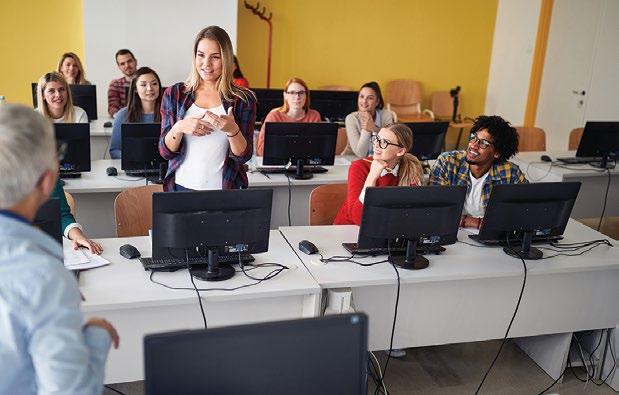
However such thinking reflects a wider existing problem in education, she says.
“Firstly, there is the ‘stick’ approach. Students who cheat must fail the assessment and face disciplinary consequences. Students must not be able to access such platforms via the campus WiFi. One can also send lawyers’ letters to such websites to require them to remove the institution’s content. However, this is not enough and is not aligned with the imperative of developing students.”
Of greater importance is the ‘carrot’ approach, Dr Mooney says.
“The nub of the issue is about the ethical practices of a socially-responsible citizen in the world of academia and work. Here we focus on the ethical identity of the student and see this ethical behaviour in a range of everyday activities. To put it simply, we help students to understand that cheating is stealing, and both behaviours are ethically unacceptable.
“We should be encouraging our students to want to be socially responsible and retain the integrity of their hard-earned qualification in the workplace, and to make a contribution to the economy and to society. While all of this may sound idealistic and a mammoth challenge in a society in which accusations about corruption are widespread, we must own this idealism and take our responsibility as educators of future generations seriously.
“Ultimately, the response to these rapid advances in AI technology will require a two-pronged approach which includes elements of the carrot, as well as the stick.”
COMMUNITY ENGAGEMENT SHOULD FORM A VITAL COMPONENT OF ANY SUCCESSFUL AND RESPONSIBLE HIGHER EDUCATION PROVIDER, NOT ONLY BECAUSE IT IS A MORAL IMPERATIVE, BUT ALSO BECAUSE IT IS ONE OF THREE KEY PILLARS OF HIGHER EDUCATION ALONGSIDE TEACHING & LEARNING, AND RESEARCH. HOWEVER, THIS IMPORTANT PILLAR IS OFTEN AN AFTERTHOUGHT RATHER THAN A KEY FOCUS FOR UNIVERSITIES.

“In the South African higher education context, community engagement is an expressed requirement from a regulatory perspective, and for good reason. Because if done right, not only does it benefit the community, but it also strengthens the institution,” says Dr Franzél Du Plooy-Cilliers, Dean of Accreditation and Quality Assurance at The Independent Institute of Education.
Allows universities to foster collaboration

Engaging with the community allows universities to develop relationships and foster collaboration, and it has a positive impact on student learning and developing their sense of civic responsibility, she says.
“Students who are exposed to community engagement activities develop a deeper understanding of the challenges facing their community and gain valuable real-world experience. Community engagement can also encourage diversity and inclusion by exposing students to people and cultures different from their own, fostering empathy and understanding.
“This experience often helps students better understand the complexities of social issues and how to address them, making them better equipped to become responsible citizens and leaders,” says Du Plooy-Cilliers.
Another key benefit of community engagement is that it helps universities build and maintain strong relationships. By being active and engaged members of the community, institutions demonstrate their commitment to transformation and the greater good, as well as establish trust and credibility.
This can lead to increased opportunities for partnerships, internships, and research collaborations, all of which can have a significant impact on not only the higher education provider’s success but the community too.
“Higher education institutions have long played a critical role in fostering public engagement by serving as key anchors in their communities. However, the way institutions engage with their communities is evolving as more meaningful and impactful forms of community engagement are sought,” notes Du Plooy-Cilliers.
It is, however, a pity that community engagement and what this means in practice is often misinterpreted and misunderstood by those responsible to drive such initiatives, she says.
“At its core, meaningful and impactful community engagement in higher education is about fostering mutually beneficial partnerships between the institution and its community. This involves working collaboratively with community organisations, non-profit organisations, NGOs and the like to address pressing social issues, such as poverty, inequality, and environmental sustainability,” says Du Plooy-Cilliers.
One example of this type of community engagement is the establishment of service-learning programmes. Service learning provides students with the opportunity to engage in community-based projects that align with their academic coursework.
“Through this approach, students are able to apply their programme knowledge to real-world challenges, while also developing a deeper understanding of the needs and concerns of their local communities. Community engagement can therefore improve student learning outcomes by providing opportunities for hands-on learning, critical thinking, and problem-solving.”
Another example is the creation of community-based research initiatives. These initiatives involve faculty and students collaborating with community organisations to conduct research that is relevant to local communities.
“This approach not only provides valuable insights and data to communities, but also provides students with the opportunity to develop research skills while making a tangible impact in their communities,” Du Plooy-Cilliers says.
Beyond service-learning and communitybased research, there is a range of other initiatives that universities can undertake to foster meaningful and impactful community engagement. These might include hosting community events, partnering with local businesses to promote economic development, or supporting local arts and cultural programs.

Must be grounded in a commitment to listening to and learning from the community However, for community engagement to truly be meaningful and impactful, it must be grounded in a deep commitment to listening to and learning from the community.
“This means engaging in dialogue and collaboration with community partners to identify their needs and priorities and developing initiatives responsive to these concerns. And above all, it must be sustainable,” says Du Plooy-Cilliers.
“Once-off initiatives that, for example, simply involve the donation of used IT equipment to a school are beneficial and not discouraged, but they do not reflect the true spirit of meaningful community engagement, unless ICT students are required to, for example, maintain such equipment on an ongoing basis by applying and developing their own skills in this way.”
Meaningful, sustainable, and impactful community engagement is, therefore, a critical aspect of higher education in the 21st Century, says Du Plooy-Cilliers.
“By working collaboratively with their communities, institutions can foster deeper connections with the people and places around them, while also contributing to the greater good for all involved. As we look to the future, higher education institutions must continue to prioritise, develop best practices, and invest in this important aspect for meaningful, sustainable, and impactful higher education.”



EDUCATION IS THE KEY TO A GREAT FUTURE, BUT, LIKE ALL GOOD THINGS, IT CAN COME WITH A STEEP PRICE TAG. FOR MANY GRADUATES, THIS MEANS SHOULDERING PART OF THE NATIONAL R16.5 BILLION STUDENT DEBT AND STARTING A WORKING LIFE WITH THIS FINANCIAL BURDEN. BUT, SAYS OLD MUTUAL, IT’S NOT ALL BAD NEWS.
Having a diploma or degree is an investment that can offer rich returns for the rest of your life, says John Manyike, Head of Financial Education at Old Mutual. Yes, you may have debt, but how you manage it will be key.
“Student debt is a serious issue in South Africa. Debts accumulated by young people are increasing. For many, taking a student loan is often the only way to realise their dreams,” says Manyike.
“For parents, the obvious thing to consider is an education plan that matures when a child is due to enter a tertiary institution. If contributions keep pace with education inflation, this could guarantee a paid-up place at a university. Even if the amount realised falls short, it could reduce the loan size needed to get that qualification.”
For potential students who will have to pay their way, the thinking should begin early, says Manyike. Things to consider are:
• What you want to study and its market value: Having a degree or diploma doesn’t guarantee employment. Qualifications in fields that are important to commerce and industry will offer a better chance of work. It’s best to do research, check out market requirements and then select a career that appeals.
• Numbers don’t lie: Find out exactly what a loan is going to cost you. Know how much cash you need, the interest rate, the total cost of a loan and the repayment terms. The secret here is to borrow what you need only. Being told that you qualify for a R50 000 loan doesn’t mean that you must take that amount.
“Responsible borrowing can add value to life, but loans must be repaid. With some student loans, repayment day may begin the day you start your first job. Again, you don’t have to wait for
this. Being proactive can save you money,” says Manyike, who advocates making early repayments.
To get ahead and reduce the spectre of high future payments, any money you can get from side hustles, part-time employment or even gifts can make a dent in what you owe and cut future monthly repayments. Reducing overall debt while still studying is the way to go.
Other ways of paying your student debt are: Setting up a budget and making student debt payments a priority.
• Paying the monthly instalment through a debit order. This strategy ensures that payments are made on time, every time, which helps develop a good credit record.
• Pay more than what is due if possible. Additional monthly payments add up quickly, reduce the loan term and interest payable over time.
Know the difference between what you want and what you need
“Servicing debt is also about knowing the difference between what you want and what you need. Starting a career and surrendering to the temptation of further loans to enable a glitzy lifestyle means the ghost of that student loan will be around much longer than you anticipated.
“Steadily paying your student loan and avoiding late payments will provide another unseen benefit. You will have a good credit record, and when you are ready for a mortgage loan or car loan, your credit record will speak for you.
“A bad credit record can deny you a job opportunity too. Making the correct choices today means having plenty of benefits in the future,” Manyike adds.
“Small sacrifices can make a big difference. If, for instance, you love take-aways and treat yourself daily at the office, you are probably spending about R250 a week and R1 000 a month and R12 000 a year! That money could help pay that loan off faster,” says Manyike. “Being proactive can save you money. Rather make a lunch box from left overs.”
IN A JOB MARKET THAT IS CHALLENGING, BUSINESS SCHOOLS ARE COMMITTED TO PROVIDING AN INNOVATIVE AND INTEGRATED APPROACH TO HIGHER EDUCATION THAT PREPARES GRADUATES TO SUCCEED IN THE 21ST CENTURY WORKPLACE.
 By Regent Business School
By Regent Business School
Stats and students that speak for themselves
In an employability report released by Regent Business School (RBS), 80% of their students reported being satisfied with the institution, and 93% agreed that the education received at RBS met and exceeded their job requirements.
Furthermore, 87% of their alumni were employed at the time of the survey, with many in top management roles such as Managing Directors, CEOs, and Directors of blue-chip companies. These statistics demonstrate the effectiveness of a 4IR approach to higher education in preparing graduates for positive outcomes.
Alumnus Reece Oakes, CEO at Rennie’s BCD Travel had this to say after completing a Master of Business Administration: “I commenced my MBA whilst in the role of Head of Front-End Services at African Bank. The MBA through Regent was key in opening career doors and is a force to be reckoned with. I was blessed to be offered the opportunity to commence the Regent DBA with the first group intake at the start of 2021.”
Margaret Hirsch, COO of Hirsch’s completed a Master of Business Administration later on in her career: “It’s quite intimidating when you haven’t studied for a long time, but I must say that Regent Business School made me feel comfortable and was on-hand to be able to help me with any questions I had. I appreciated the lessons which took place on weekends which meant they did not interfere with my work schedule.”

Education that is 4IR driven
Top business schools should place a strong emphasis on developing employability skills in their students. Skills such as communication, problem-solving, teamwork, and time management give graduates an edge in a competitive and complex job market.


Employers are increasingly seeking candidates with these 21st Century skills, which are an integral part of Regent Business School's online curriculum and academic integration programme. This programme allows for the creation of partnerships with employers and industry leaders, providing practical experience and professional networks for students.
Dr Ahmed Shaikh, Managing Director of Regent Business School, emphasises the importance of disrupting, rethinking, and innovating to ensure that alumni have the edge when it comes to employability.
“We are committed to preparing agile leaders with an entrepreneurial mindset,” says Dr Shaikh. “Our innovative approach to higher education focuses on developing employability skills and creating partnerships with employers and industry leaders. This ensures that our graduates are well-equipped to succeed in the 21st Century job market.”
A forward-thinking and comprehensive approach to higher education ensures effects employability in a meaningful way which should encompass:
• Flexible and accessible distance learning.
• Transversal skills training for mature working adults.
• 21st Century skills training for the modern workplace.
• Dedicated and personalised career support.
• CV review, academic counselling, career guidance, mentoring, and a job portal.
Resources that stand out Regent Connect is a valuable platform exclusively for RBS alumni that provides access to a wide range of resources and opportunities to help advance their careers.
With approximately 11 000 alumni active on the platform, Regent Connect offers a wealth of information, including job postings, career advice, and tips on how to improve resumes and interview skills. This platform provides a distinct advantage when searching for employment and navigating the corporate world. By leveraging the knowledge and experiences of fellow alumni, Regent Connect creates a supportive community that fosters growth and professional development allowing alumni to stay connected and excel in their careers.
To further support student success, Regent Business School has collaborated with over 50 diverse employers and industries. These collaborations enable students to gain practical experience and build professional
networks, enhancing their employability and career prospects. The emphasis on innovation and entrepreneurship also prepares students to become agile 4IR leaders and entrepreneurs through reskilling and upskilling.
An ongoing commitment to student success and employability is reflected in the opening of a dedicated career centre that can be used by RBS students and non-students alike. This initiative results from Regent Business School’s association with the Honoris United Universities and will provide access to career development resources and support, further enhancing their employability and career prospects.
This integrated approach to higher education, with a strong emphasis on developing employability skills and creating partnerships with employers and industry leaders, ensures that all graduates are well-equipped to succeed in the 21st Century job market. With a focus on innovation and entrepreneurship, Regent Business School prepares agile 4IR leaders with an entrepreneurial mindset, giving them the edge when it comes to employability.
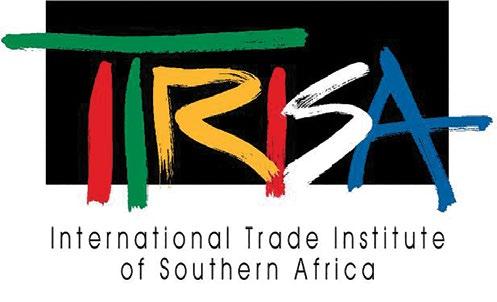
ITRISA has also assisted, e.g., Canada in the early planning stages of its Forum for International Trade Training (FITT); New Zealand in the establishment and later accreditation of the Export School of New Zealand; the Swedish Trade Council in the provision of local content for an international trade management programme conducted by the Swedish training company, ITM Worldwide and recently the UK IEX&IT in the production of a multi-media ‘Doing Business with South Africa’ guide.
ITRISA’s international trade training programme consists of focused short export and import courses that are currently offered online but were previously conducted regularly in Johannesburg, Cape Town, Durban and Port Elizabeth.
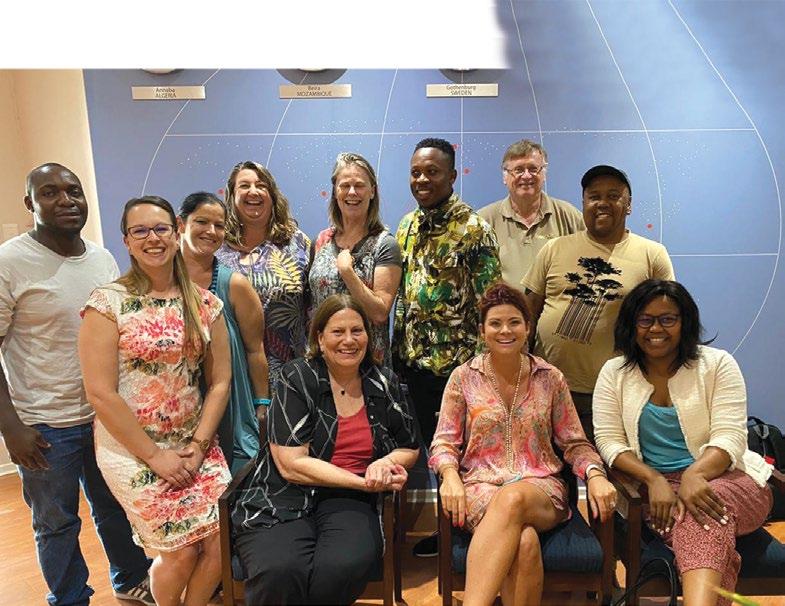
Established in 1996 as a Section 21 (‘not for gain’) company, the International Trade Institute of Southern Africa NPC (ITRISA) assists organisations and individuals to develop the knowledge and competencies required for success in today’s highly competitive global marketplace.
Internationally accredited, registered provider of higher education and training in SA
Accredited internationally by the international trade standards body, IATTO, and in South Africa by the Council on Higher Education, and registered as a provider of higher education with the Department of Higher Education and Training (DHET), ITRISA offers distance learning tuition for two qualifications at National Qualification Framework (NQF) Levels 5 & 6 (SAQA IDs: 96698 and 24333), the Higher Certificate in International Trade and the Diploma in International Trade Management (Import or Export).
Over the years, ITRISA management has addressed events worldwide on both the Institute’s own activities and various trade-related topics. For example, in 2017, ITRISA was a panel member at the World Trade Organisation’s Open Forum discussion on the impact of trade qualifications on trade performance.
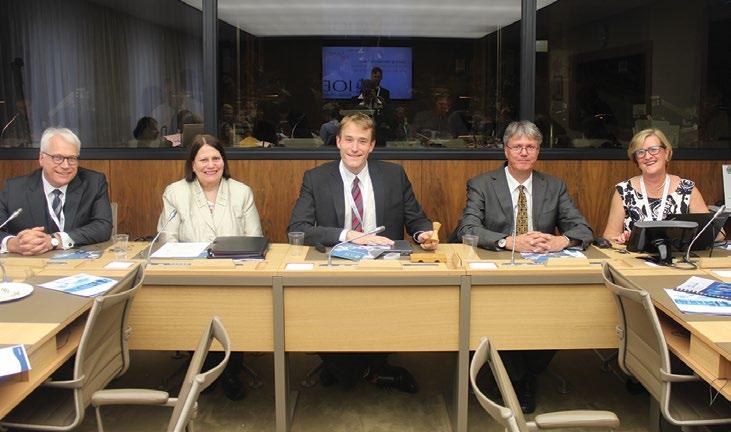
Through tailored in-house training programmes and government-driven projects, (such as the year-long Eastern Cape Exporter Development programme) ITRISA also assists the private sector in honing its trade-related skills and developing new business strategies for foreign market access. Beyond South Africa’s borders, ITRISA has provided export capacitybuilding training across southern Africa from Namibia to Swaziland, Mozambique and Kenya.
For further information on ITRISA, its globally recognised qualifications in export and import management, or its wide range of international traderelated short training courses, visit www.itrisa.co.za; or tel: +27 11 807 5317; or email info@itrisa.co.za.

90 Skills-based hiring brings SA in line with international hiring trends
Technical skills needed to tackle SA's youth unemployment crisis 10 ways to ignite e-Learning excitement

ALTHOUGH SOUTH AFRICA’S YOUTH UNEMPLOYMENT RATE DROPPED SLIGHTLY IN THE FOURTH QUARTER OF 2022, THE SITUATION REMAINS CRITICAL, WITH THE LATEST QUARTERLY LABOUR FORCE SURVEY (QLFS) REVEALING THAT 4.6 MILLION YOUNG PEOPLE ARE LOOKING FOR JOBS.

Considering that 90% of the country’s employment opportunities require youth with technical and vocational skills, as reported by the Human Resource Development Council, equipping them with these skills is crucial for reducing the country's unemployment rate.
This is according to Dr Andrew Dickson, Engineering Executive at CBI-electric: low voltage, who says that currently, technical skills are in dire need, particularly in the areas of electrical, mechanical, industrial, and civil engineering. In addition, there is an increasing requirement for artisans and technicians to support base operations within the engineering disciplines, especially as infrastructure repair and maintenance become more crucial than ever for keeping the country’s lights on.
This sentiment has been reinforced by President Ramaphosa who reiterated that technical skills are what South Africa requires, stating that the skills that our country needs, the jobs that can grow our economy, and importantly, the avenues for entrepreneurship that are so sorely needed, can best be achieved by increasing learner access to technical and vocational subjects.
“Unfortunately, however, Government is limited in its ability to bridge the skills gap, so the private sector needs to step in either by investing in institutions or individuals,” says Dr Dickson.
He notes that, with state funding being reduced for universities and technikons, additional support is vital.
“This option may not appeal to shareholders; however, it is important to see the bigger picture where the value lies in investing in employees of the future who will be key for taking the country forward.”
“Another option is for businesses to work with institutions by providing practical learning opportunities for graduates so that they learn how to apply the skills they have acquired,” he adds.
“For example, we provide training to electrical engineering students at Technical Vocational Education and Training (TVET) colleges around the country on electrical safety compliance as well as the practical use of products like circuit breakers, wiring accessories and earth leakage devices,” Dr Dickson adds.

“Our holding company has taken this a step further with the establishment of Reunert College, which offers a bridging programme for school leavers from previously disadvantaged communities. It enables them to improve their Matric results which might otherwise have prevented them from getting a university exemption and/or from becoming employed,” he explains.
“Many participants who have successfully completed the programme have secured bursaries to study further.”


When it comes to investing in individuals, he recommends that more industries consider making apprenticeships mandatory, like the accounting and law fields where new graduates are required to do their articles.
“It ensures that companies take on apprentices and equip them with the experience required to meet the demands of the working world,” comments Dr Dickson.
“For businesses that choose this route, it is important to note that they needn’t shoulder the total cost alone, as Government provides support via the Skills Development Levy and the provisions of the Income Tax Act. But what this does require is that, if individuals are trained, they need to be placed in a position in a company thereafter.”
“One of the biggest skills gaps plaguing the country, particularly in the technical and electrical environments, is a lack of practical know-how amongst new employees,” he highlights.
“In the past, this would be passed down by veteran employees, but as this practice is no longer in place due to factors like the brain drain and retirement of seasoned workers, inherent institutional knowledge is being lost. Mentorship must be provided to develop new hires into competent employees who can acquire these intricacies and, ultimately, pass them on to the next generation.”
“South Africa has the highest unemployment rate in Africa and the third highest in the world, according to a global list of 82 countries monitored by Bloomberg. Our plight is far too big for Government to tackle alone. With there being 3.1 million companies in South Africa registered by the Companies and Intellectual Property Commission (CIPC), imagine what could be achieved if they all invested in institutions and individuals, especially those operating in the technical space,” concludes Dr Dickson.
AS TECHNOLOGY CONTINUES TO EVOLVE AT AN UNPRECEDENTED PACE AND BECOME INFUSED ACROSS ALL ASPECTS OF THE BUSINESS, COMPANIES ARE INCREASINGLY UNDER PRESSURE TO REMAIN COMPETITIVE BY ATTRACTING THE BEST TECH TALENT AVAILABLE. HOWEVER, WITH A SHORTAGE OF IT SKILLS AND LIMITED ACCESS TO HIGHER EDUCATION, IT IS CLEAR THAT ALTERNATIVE APPROACHES TO RECRUITMENT AND TALENT DEVELOPMENT ARE REQUIRED, AND THIS INCLUDES A GREATER FOCUS ON SKILLS-BASED HIRING.
By Jessica Hawkey, MD at redAcademyPromotions within an organisation are usually a result of skills and experience rather than academic qualifications, so why not use these as the criteria right from the start?
Globally, large multinationals such as Accenture, General Motors, IBM and LinkedIn among others are placing importance on skills when hiring employees rather than focusing on traditional educational qualifications.
These organisations are looking for problem solvers with proven experience and a multi-disciplinary skill set rather than someone with just theoretical knowledge. This approach is especially useful for filling modern, technology-based entrylevel roles in specific industries, such as software development as an example.

By removing the requirement for mandatory higher degree qualifications from job advertisements, recruiters can tap into a wider range of candidates who possess relevant skills and experience.

By removing the requirement for mandatory higher degree qualifications from job advertisements, recruiters can tap into a wider range of candidates who possess relevant skills and experience.
This not only increases the number of candidates available but also ensures that the best candidate is selected for the position. In a country like South Africa, skills-based hiring can be an effective means of providing opportunities for young people without a university education.
Of course, there is resistance as this is a shift that can upset the status quo; organisations have long relied on academic qualifications as a vetting measure, and it can be hard to bring about change. To be clear, we are not disregarding traditional degrees as they still have a vital role to play in certain professions. However, when looking at areas such as technology, traditional educational institutions have simply not been able to keep up with the rate of change – or produce the number of skilled graduates needed.
Businesses looking for tech talent the traditional way first need to look at how many graduates are on the market, then whether they are familiar with the organisation's technology stack and finally whether there is a culture fit. There’s no wonder why there is a fierce war for scarce talent, while it is also clear that an alternative approach to skills development is needed if businesses are to meet their future requirements.
While there were not many alternatives in the past, organisations such as redAcademy are filling the gap by introducing a skills development and training programme, aimed at fast-tracking the careers of young South Africans in the IT industry. Rather than being bound by academic qualifications, the focus is on attitude – problem solvers who are quick to learn, dedicated, accountable, responsible and take pride in their work.
The programme then equips these youth with software development training and theoretical knowledge before providing them with the practical, real-world experience of working alongside professional developers on projects for real clients, using their specific technology stacks, not unlike work integrated learning.
Not only may opting for candidates based on their skills yield more favourable employment outcomes, compared to selecting based on their level of qualification and degrees, but they will be able to 'hit the ground running'.

Beyond simply providing organisations with entry-level talent, skillsbased hiring can also help with building a developer resource pipeline as well as ensure that succession planning within organisations is successful.
A talent partner can ensure that sourced candidates have the right hard and soft skills, familiarity with a particular organisation's technology stack and way of working and can vet them based on acquired refined skills rather than general academics.

It's important to note, however, that skills-based hiring cannot solely be the responsibility of the HR department.
Based on industry insights shared by Insaaf Daniels, Human Capital General Manager at redPanda Software, Chief Technology Officers (CTOs) and other members of the C-Suite must play an equally active role in driving the process forward. They are responsible for determining the organisation's strategic direction and ensuring that it has the resources it needs to achieve its objectives, and skillsbased hiring will be a crucial component as it guarantees that businesses have the right people with the right abilities to deal with any issues that may arise.
What is clear is that to remain competitive, companies in South Africa need to adopt new approaches to developing scarce talent while also investing in upskilling their current workforce and integrating learning into their corporate cultures. Slowmoving companies that operate with outdated paradigms will fall behind and risk losing their most valuable resource: Talent.
I LIVE IN FOREST VILLAGE, EERSTERIVIER. I PREVIOUSLY STAYED IN LANGA, WHERE I ATTENDED SIYABULELA PRIMARY SCHOOL. THEN I WENT TO LEAP SCIENCE AND MATHS SCHOOL, AND THAT'S WHERE I DID MY MATRIC AND PASSED IN 2018.
By Simbongile DyiAyear after I applied to attend university, but because I didn’t meet the minimum requirements, I wasn’t accepted. I then applied to the Cape College in Athlone and was accepted. I decided to do a construction course because I wanted to be involved in the building industry. I started the course in 2019 and passed the first and second trimesters but failed the third trimester. I then had to pay for my own tuition because the bursary no longer funded me.

A turning point
This was the turning point in my life.
Due to the pressure at home, I had to find a job so that I could take care of myself and contribute financially. I struggled to find opportunities and applied for different jobs, including at retail stores, but nothing came from that. I tried to sell insurance policies by recruiting people but that didn't work either because people couldn’t afford it. I also tried to sell health supplement products for a few months but that also failed. In the environment I was in, people were not using such products and it was not well supported.
It got a bit rough from there. I was stuck at home with nothing to do. I had a mentor who was helping me through my journey, and I decided to rewrite my matric so that I could go to university or get a job so that I could go back to school and pay the fees.
I started working in construction and I was the only young man amongst the elders in the family. Due to the pressure I was experiencing at home and from myself, I had to focus and work hard so that I could raise money for myself and my family. The experience was not pleasant, but now I am grateful that I went through it all. It taught me a lot about the journey of life; that things will not always go the way you want; however, you have to keep pushing.
My mentor, Tumelo, worked in IT. He told me about the redAcademy programme. He explained that the minimum requirements were that I needed matric and that I needed to be a hard worker, a self-driven person, and focused. He said this would be a good opportunity for me.

He then helped me to complete the application form, do the video submission, and prepare for the interviews. I had never been interviewed in my life before. I went to the redAcademy and was interviewed that same day. I wrote the test, and I got a call to say that I had been accepted!
At first, I was nervous because I had no background in the field so my knowledge was zero about coding or the IT industry, but the teachings of facilitators like Emmanuel Madzunye made it possible for me to see that I could do it.
As time went by, I improved and realised the support I was getting was not only about coding but also about life lessons and soft skills. That made things easier for me. I began to develop a love and passion for coding. The first six months were an introduction to coding (theory and practical work), learning about the work environment, and I was doing small projects at that time. Passing them was motivational for me.
I then got involved in client projects. Things are a bit different because I'm doing projects that will be used by a big company and by a lot of people. When doing the programming on such projects I have to be aware that someone is committing and investing in me, and a project that is expected to work and is a solution for the business.
Mentors from redPanda Software make all the difference I have realised that the pressure is on, and I cannot make mistakes. At first, it was very challenging. But with the help of technical mentors from redPanda Software, I have been helped and shown the correct processes and how to code the right way. I have been shown how to debug the system I was working on and find out where the problems are, then fix it, run it again, and debug until the system is running the way it should.
I have learned a lot in a short time, and I can now develop front-end pages and back-end APIs. All of this has been made possible by the support of the redAcademy team.
Comparing this one year with redAcademy versus a three-year programming degree at university, the biggest difference I found is that I get to work on live client projects, something that university and college don't offer.
Being part of redAcademy has also given me a chance to grow personally. I had always wanted to help youngsters with my online videos and now I have a YouTube channel called Your Next Level Productions. And I have been able to do this with the support of the HR director at redAcademy; another example of the type of support that redAcademy offers.
I have been given the opportunity to explore and share my creativity online, by sharing my journey, and experience, and motivating young people who can relate to me. Being here has opened a lot of doors for me and my mind. I am so grateful for such an opportunity.
I would recommend that more youngsters apply for the redAcademy programme, especially those from black communities because I believe this can make a big difference in their lives, as it has done for me. It can expand their life choices and impact their environment and future positively.
The pace at which AI is being integrated into our lives in general is dizzying. AI is perhaps the best example of exactly how fast the world of work can change.
The people best suited to thriving in this scenario aren’t necessarily the ones with computer science and software qualifications. The ones who thrive and develop a competitive advantage will be those who take the initiative to experiment with this new tool and learn from others’ experiences, which can be accessed via the many articles, discussion threads and videos that exist about generative AI.
The capacity to thrive isn’t about being able to use AI tools per se – that specific skill is just a good example. Rather, it’s about facing a strange and sometimes fearful situation by finding a way forward rather than resisting or avoiding change. Would you choose fight, flight or figuring it out?
Learning agility involves cognitive, emotional, and behavioural factors
Being able to adapt to new situations in this way is known as learning agility. Learning agility involves a combination of cognitive, emotional, and behavioural factors, such as seeking out new experiences, learning through errors and experiments, taking calculated risks, and admitting when you made a mistake so that you can move on and find a method that works.
It’s a matter of coping with uncertainty rather than being undermined by it. Another definition of learning agility is ‘knowing what to do when you don’t know what to do’. At Salesforce, our ethos is that skills development is a crucial means of finding ways forward, for both individuals and society. And in the term ‘skills development’, I like to put slightly less emphasis on the ‘skills’ and more on the ‘development’.
Effective skills development recognises that lifelong learning –another way of conceptualising learning agility – is the means to
adapting in a world of constantly changing technology, and the way to have a more fulfilling life in general.
Because what happens when people get stuck and don’t know what to do? They become anxious, stubborn and defensive. They might resort to old methods and reject the risk inherent in new ideas, or double down on their mistakes rather than admit to error. Or they just hunker down in a rut of demotivation and complain about the conditions there. That’s not a great way to live or work.
Learning agility, in contrast, gives you a ‘growth mindset’. This is when you think of yourself as someone who can change, adapt, move. In contrast, people with fixed mindsets see themselves as trapped with their personal qualities, skills and identities, especially when it comes to their professional personas. But we’re not trapped. We can always choose to develop new skills, new ways of being in the workplace.
As the senior talent programme manager at Salesforce South Africa, I love being able to point people towards Trailhead, our skills development initiative, where you can get started with free online courses, and connect with others via classes and communities. We believe that business is a platform for change, and this is our way of making that belief manifest and actionable.
We also partner with training organisations across the globe to address skills shortages and unemployment. The Salesforce ecosystem is moving us steadily towards the goal of creating 31 800 new jobs and generating $5.1 billion in new business revenue in South Africa by 2026.
At the current rate of change, there’s no knowing what the world of work will look like in 2026, but for the curious and agile, that’s not something to worry about. Embracing learning agility means being able to thrive in uncertainty and helping others to do the same, so we’re choosing action instead of fear.

THE EMERGENCE OF NEXT-GENERATION AI SHOULD NOT BE SEEN AS A DIRECT THREAT TO IT PROFESSIONALS, BUT RATHER AS AN OPPORTUNITY TO UPSKILL AND MASTER THE NEW TECHNOLOGY.

This is according to Admire
Gwanzura, President of the Institute of Information Technology Professionals South Africa (IITPSA).“In just a matter of months large language and natural language processing AI has gone from hype to free app, with OpenAI’s ChatGPT topping a million users in just seven days – faster than any other application or platform ever released. We all knew it was coming, but the pace of change has been staggering – even for the IT sector,” he says.
Gwanzura says that while the technology is proving to be hugely resource intensive and is not yet mature, it is proving highly capable, and progressing fast.
“What this means for the jobs of the future is that things will change. PWC expects AI to create more jobs than it eliminates, but it should be noted that many people are not yet equipped to fill the new roles that will emerge. The skills we have today may become obsolete in a matter of just a few years.

“Goldman Sachs expects AI to replace the equivalent of 300 million jobs, but at the same time, it could eventually increase the total annual value of goods and services produced globally by 7%. In South Africa, where skills are in short supply and labour costs are high, we expect to see employers harnessing AI to carry out everything from the mundane, routine tasks to the highly specialised ones,” he adds.
A JCSE-IITPSA ICT Skills Survey revealed that employers were struggling to find appropriate skills, and the number of employers recruiting specialised IT skills abroad has risen to 50%, (from 38% the year before). The survey found there was demand for deep skills in coding, development, project management, business analytics and data science.
“AI can fill, or supplement many of these roles, and may become the de facto workers if employers continue to experience a skills gap,” Gwanzura says.
Prof Barry Dwolatzky, Emeritus Professor and Director of Innovation Strategy at Wits University, and a co-author of the JCSE-IITPSA Skills Survey, noted that there was still a role for human IT professionals, however.
Speaking at an IITPSA Careers in IT webinar, he recommended starting with a foundation of a broad computer science degree and continually upskilling to adapt to continual change in the sector.
“I’m sad to say that before long, AI systems will soon be writing code better than humans can, but we will still need humans to innovate and transform business processes. People should prepare themselves for where they can contribute to innovation,” he adds.
“At the IITPSA, we agree. AI may change the landscape dramatically in the next few years, but humans still possess reasoning, creativity and problem solving skills that AI doesn’t yet have. There will be a place for those who can identify problems, match them with technologies that can solve the problems, contextualise and create,” says Gwanzura.
“To stay relevant in a changing job market, IT professionals will have to be agile and adapt fast. We will have to develop a culture of continuous learning. Studying should not stop once a student graduates. We all need to remain curious and passionate about how emerging technologies can be deployed to address existing problems. If new tools and technologies emerge – we need to master them. Fortunately, many vendors and OEMs offer free training online, so that anyone who seeks knowledge can find it.”
Gwanzura notes that IT professionals must remain cognisant of the importance of ethics in this fast-changing environment. “The ethics of AI will be determined by the humans who train it; so we will need to be cautious, and remember that the AI tools we develop today may control everyone’s lives tomorrow,” he says.
IN 2016, SOUTH AFRICA SIGNED THE PARIS AGREEMENT ON CLIMATE CHANGE AT THE UNITED NATIONS IN NEW YORK. SIGNING THE AGREEMENT MEANT THAT THE COUNTRY IS COMMITTED TO REDUCING GREENHOUSE GAS EMISSIONS AND COLLABORATING WITH THE GLOBAL COMMUNITY TO REDUCE GLOBAL TEMPERATURES TO BELOW 2˚C. THE PROBLEM THAT THE COUNTRY FACES IS HOW BEST TO ACCELERATE THE REDUCTION OF CARBON EMISSIONS TO MEET ITS COMMITMENTS TO THE PARIS AGREEMENT.
One way of accelerating the reduction of carbon emissions is the use of green hydrogen as a zero-emissions energy carrier. In 2021, the International Energy Agency (IEA) declared that hydrogen would be an essential source of energy for reducing carbon emissions. According to a recent report by the Hydrogen Council in collaboration with McKinsey & Company, 40 countries have developed national hydrogen strategies to tap into hydrogen’s potential to decarbonise. The industry has also announced 680 hydrogen project proposals as at the end of May 2022.
However, the emerging green hydrogen industry is facing a multitude of challenges. One significant challenge is the skills needs and training for a hydrogen-ready workforce. This
pertains to both current and future skills needs and training requirements.
A study on reskilling the green hydrogen economy found that 80% of industry employees would require new hydrogen skills and further education about electrolysers, fuel cells, hydrogen storage, and future refuelling stations.

The lack of skills development and training is the biggest challenge to growing South Africa’s hydrogen economy. It’s not just accessibility to hydrogen training that poses a challenge, but actually receiving the education and skills to meet industry needs.
The main barriers to closing the hydrogen skills gap in South Africa are a lack of expertise, funding, and a lack of training facilities and equipment, such as electrolyser simulators. For this reason, more needs to be done to develop South Africa’s education infrastructure and physical infrastructure to support both current and future demand.
If we are unable to develop this infrastructure in the next five years, we may miss the opportunity to be a leader in this rapidly growing industry. We need to plan now for the future growth and expansion of hydrogen energy.
In the future, a more comprehensive assessment of skills requirements will be needed. The current desktop modelling places a greater emphasis on engineering qualifications with extraordinarily little attention paid to occupational qualifications.
Hydrogen safety training has been less of a priority, yet safety skills programmes will be a vital part of hydrogen education. Hydrogen can be an extremely dangerous gas to work with as it is highly flammable and hence appropriate training is essential.
In attempting to close the hydrogen skills and training gaps in South Africa, research by the Chemical Industries Education and Training Authority (CHIETA) has identified 17 specific training and skills requirements. Approximately 14 000 jobs are likely to be created including hydrogen systems engineers, technicians, gas fitters, and other associated trades and services.
The technical and regulatory uncertainties in South Africa provide a major challenge for effective skills planning. For this reason, leadership needs to be provided for enabling policy and regulatory changes.
The education sector needs to work more closely with industry for joint skills planning and the co-creation of future training courses and learning materials. What is needed is more crosssector collaboration and research development by engaging with industries such as transport, mining, manufacturing, energy, infrastructure, and agriculture.
South Africa lacks the cross-sector collaboration to support skills development and training on green hydrogen. Crosssector collaboration and joint skills planning between government, the private sector, and training authorities should be an apex priority for a hydrogen-ready workforce. Without cross-sector collaboration, a fragmented and piecemeal training landscape may evolve in which hydrogen training is expensive, exclusive, and inaccessible to all.
Digital skills are the foundation for hydrogen skills. For this reason, South Africa needs to prioritise digital literacy skills programmes. A coherent digital literacy skills curriculum is required for hydrogen education.
To this end, CHIETA has prioritised digital literacy skills by launching SMART Skills Centres across the country. CHIETA SMART Skills Centres provide free digital literacy skills programmes including experiential learning using virtual reality technology for certain occupations. This first-of-its-kind SMART centre in Saldanha Bay has been opened to the public since the 1st of February this year. Eight new centres are planned over the next two years.
The biggest risk facing South Africa is the inability to seize the moment and implement green hydrogen at scale because of the lack of adequate skills and appropriate expertise.
To mitigate this risk and close the hydrogen skills gap in South Africa requires a multipronged strategy that includes better coordination from government, cross-sector collaboration with industry, digital literacy programmes, and specialised training on electrolysers, fuel cells, and hydrogen systems.
The relevant expertise will have to be sourced to develop and deliver the training required by the industry. The country needs an explosion of training to become a leader in the global hydrogen economy.
The Chemical Industries Education and Training Authority (CHIETA) is a statutory body that was established by the Skills Development Act in 1998. CHIETA’s role in the sector, is to facilitate skills development as well as to ensure that skills needs are identified and addressed through various training initiatives in the chemical and manufacturing industries.

DESPITE EFFORTS BY MANY HR AND LEARNING AND DEVELOPMENT (L&D) MANAGERS TO ADDRESS THE WIDENING SKILLS GAP, A STUDY SHOWS THAT ONLY HALF OF EMPLOYEES CONSIDER THE TRAINING PROVIDED BY THEIR EMPLOYERS TO BE USEFUL. ADULT LEARNING SPECIALISTS SUGGEST THIS IS BECAUSE THERE IS ALSO A GAP IN LEARNING OPPORTUNITIES AVAILABLE TO EMPLOYEES.

The same study reveals that a whopping 96% of employees want to develop their skills and grow their careers, proving that an effective skills development programme has never been more relevant. To do this, a no-fuss L&D plan focused on building critical competencies and meeting the organisation's objectives is essential.
Michael Gullan, CEO of G&G Advocacy, an eLearning consultancy that provides sharp and focussed eLearning solutions to corporates, suggests the following no-fuss approach to an actionable eLearning plan.
“These are usually initiated by an organisational pain point or challenge,” suggests Gullan. “Anything from losing your innovative lead to needing to increase market share. Challenges are always related to the organisation’s goals. If not, they’re usually not worth fixing. If the organisation’s goals are initially unclear, take time to explore them as they will help you determine your training needs.”
Organisational goals may be measurable, such as financial performance, revenue, profit, earning growth, and share price, but may also include softer outcomes, such as customer satisfaction, customer loyalty, and culture. “We recommend you investigate how the organisation’s goals need to be achieved by department, as it will help clarify your training needs,” says Gullan.
This is to understand the gap between your employee’s current skills and where they need to be to meet your goals. Identify behaviours that will help achieve the set goals identified in Step 1. “That intersection of skills needed to achieve your goals is an accurate way to determine your learning and development pathways,” says Gullan.
As you assess the best solution for your organisation, ask the following:
• Is the solution flexible and easy to update?
• Can it be personalised?
• Will it hold learners’ interest?
• Does it support busy, time-strapped adult learners?
• Can your existing training resources be used?
• Do you need new instructional materials?
• How can you harness technology?
• Can you include rich educational media, like video, animation, and interactive content?
• Does your platform offer granular metrics to show success by individual, course, and organisation?
• What gamification strategies can you include to keep your employees engaged?
Without stakeholder backing and learning champions, even the most comprehensive L&D plan can leave you underwhelmed. With buy-in from middle to C-suite management you’ll not only create a culture of learning, but also ensure there is shared purpose in the learning experience.
Once you’ve identified your learning needs, by department and individual, you have the beginnings of a L&D roadmap. Next, consider what your short- and long-term training needs are, so you can prioritise and build critical skills pathways. At the end of this process, you should be clear on both present and future training needs and have an actionable L&D plan to achieve them.
“We suggest prioritising human-centred skills, competencies that will get big wins fast, and skills that are resistant to change, such as analysis, critical thinking, and problemsolving,” adds Gullan.
“Be sure to take your employees needs into account as you select your learning solution. Afterall, they need to learn effectively and stay engaged while still performing at their roles,” says Gullan.
“The World Economic Forum anticipates a boost of up to $6.5 trillion to the global GDP if organisations address their skills gaps,” says Gullan. “It’s important that the benefits of your L&D programme to the organisation and the individual are clearly communicated across the organisation.”
6:
The future of work has never been more dynamic, which is why you need to keep monitoring your learning metrics, identifying new gaps and opportunities and ensuring your employees are completing their personalised learning pathways and meeting their training goals. Your learning plan must be as dynamic as your people, your customers, your business, and the economic landscape.
This simplified plan should help you not only close the skills gap, but also close the L&D gap. It lays a foundation for a simple, yet effective and actionable plan based on the premise that “where the organisation needs to go, is where skills need to be learnt,” says Gullan.
PEOPLE ARE AN ORGANISATION’S MOST VALUABLE ASSET, AND BUSINESS LEADERS ARE REALISING THE IMPORTANCE OF CREATING OPPORTUNITIES FOR THEIR PEOPLE TO LEARN AND GROW (PERSONALLY AND PROFESSIONALLY).
L“earning and development is changing, and we’re seeing organisations going beyond onboarding and process training to offering the full sphere of personal development.” Gullan unpacks the important eLearning trends to look out for in 2023 for employees and organisations.
1. Career and personal development
There’s a shift from mandatory training to meaningful learning that empowers employees to grow within their organisation. Gullan suggests that employees lean into the learning offered by their organisations rather than look elsewhere to uplift themselves.
2. Meet the needs of modern professionals

There is a shift towards seamless, convenient, micro-learning, making it easy for time-sliced employees to learn and grow from within the workplace, from any device.
3. Training is not a luxury but a necessity
In the past, only the privileged few attended tertiary education and gained access to scarce information which they implemented in the workplace. Today, we’re seeing more working professionals becoming lifelong learners as they seek to stay relevant and to advance their careers.
4. More loud persisting, less quiet quitting
With high unemployment and struggling economies, we can expect more employees to have a growth mindset. They will be seeking learning opportunities to upskill and thrive at their jobs and enjoy a sense of belonging to something greater.

5. More learning champions
We are also seeing more learning advocates in the workplace who participate in and encourage others to lean into eLearning programmes on offer. Their constructive feedback will assist L&D teams to progress their eLearning programmes to be more relevant, interesting, and employee centric.
“Developing people has become an important priority for organisations,” says Michael Gullan, CEO of G&G Advocacy, an e-Learning consultancy.



























1. Seamless learning















eLearning solutions that integrate HR, learning, and talent management in one simple personal development process will be the new normal for organisational learning. This will create an environment where employees grow, and organisations thrive.

2. Sharing in-house knowledge
Organisations have a wealth of knowledge and experience, most of which only exist in a few key employees' heads. More organisations will use eLearning to unlock and share knowledge across their workforce. This will develop skilled, confident, and empowered teams ready to take on new challenges and move organisations forward.
3. Equal learning opportunities























Leaders understand that every individual, no matter their role or rank, should be given the opportunity to reach their potential. They’re seeking eLearning solutions tailored to individuals' strengths, weaknesses, ambitions, and roles within the wider organisational goals.
English language skills for teachers, trainers and students both private and in-company.














The FLC (Foundation Learning Competency) programme for NQF 2 to assist in up-skilling.
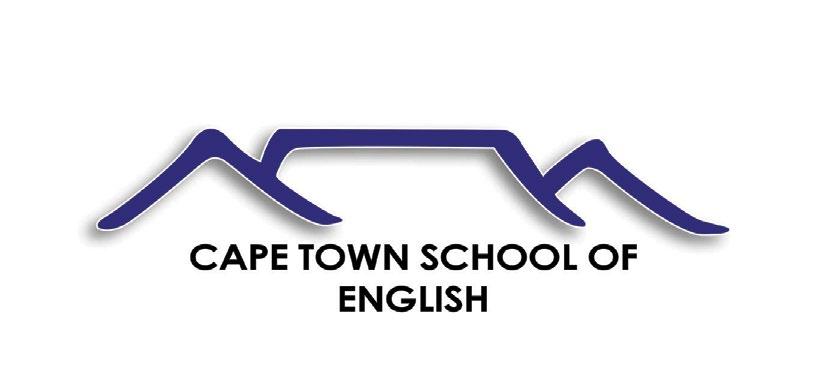

ONGOING LEARNING AND DEVELOPMENT (L&D) ARE CORNERSTONES OF ALL SUCCESSFUL ORGANISATIONS AND CONTRIBUTE TO KEEPING EMPLOYEES HAPPY, FULFILLED, AND PRODUCTIVE. AS MORE ORGANISATIONS ARE LOOKING TO ELEARNING TO MEET THEIR L&D GOALS, THEY’RE ALSO LOOKING FOR METHODS TO KEEP THEIR EMPLOYEES ENGAGED AND COMMITTED TO MEETING THEIR LEARNING OBJECTIVES.
“For e-Learning to succeed, it requires executives and employees to buy in. Executives need to invest in the right solution to drive their business forward, and employees need to invest their energy and time,” says Michael Gullan, CEO of G&G Advocacy, an e-Learning consultancy that assists corporates with high impact learning solutions.
Gullan shares some practical methods to stoke employee interest, keep them engaged for the long term and build a learning culture in your organisation.
Stay relevant: Assign only relevant courses to employees and teams, and include courses that benefit the whole employee, such as wellness, mental resilience, stress reduction, fitness, and growth mindset. This will help employees bring their best selves to work.
Acknowledge top learners: This helps build learning advocates and demonstrates how much your organisation values learning.
Company-wide learning time: Assist time-sliced employees to make time for learning. Get managers to encourage their teams to set aside their daily tasks for learning.
Special learning occasions: Ignite course discussions with monthly course clubs, lunch-and-learns, breakfast-of-learners, and learning-power-hours. Encourage employees to review the material independently, share their learnings, and gain insights from colleagues.
Shout-out new and popular courses: An ideal e-Learning programme should release new courses regularly to keep up with industry trends and maintain employee interest. Your analytics will tell you which courses are popular. Share them with as many employees as relevant.
Dedicated learning channel: Your company’s messaging apps or channels are great for employees to chat about their latest learnings. Schedule weekly prompts to encourage employees to share what they’re currently learning and how it’s helping at work. Use it to acknowledge learning champions and stoke excitement about new courses.
Reinforce your learning culture: Remind managers to identify learning opportunities during the workday and in meetings. Whether you’re learning a skill, refining a process, or examining competitors, there are many ways to learn and grow daily.
Use gamification: Offer rewards and badges and stoke competition amongst employees and departments. Acknowledge leaders and tap into employees inherent reluctance to be left out.
Be flexible, personal and use Content CapsulesTM: These strategies assist employees to fit learning into their work day, as they can switch between their desktop and phone and learn whenever they have a few minutes to spare.
Link to performance appraisals: Use learning paths to target employees’ personal objectives and make completion part of their quarterly performance metrics.
For learners struggling to meet their learning targets, Gullan suggests you reserve five minutes a day for learning.
“As you get to work, before you check your email, get your daily learning done. Do it for a few days, and it will become a habit,” Gullan says. “Five minutes a day is 25 minutes a week and 100 minutes a month.”
Engaging e-Learning programmes are enticing for employees and critical to closing your organisation’s skills gaps, boosting productivity, and retaining staff.
“Every organisation is unique, which is why some engagement tactics will work and others not,” concludes Gullan. “Adapt, combine and tailor yours, and make sure you give as much thought to your learner engagement strategies as you do to your e-Learning programme.”
G&G Advocacy is a leading e-Learning consultancy in the corporate space, founded on a simple insight: If we design a better experience, we'll get better results. With its proprietary Content Capsule™ learning methodology and e-Learning platform, G&G Advocacy provides innovative solutions to corporate clients to assist them with their online learning and training needs. G&G Advocacy’s mission is to elevate e-learning into a solution that transforms the workforce into a force that gives businesses a competitive advantage.



CV writing tips

Why employ young people in South Africa
ICT a game-changer for people with disabilities
IS YOUR FIRST OPPORTUNITY TO INTRODUCE YOURSELF TO A PROSPECTIVE EMPLOYER, SO IT IS VITAL YOU PUT YOUR BEST FOOT FORWARD.

A CV is a formal document that highlights your skills, qualifications, and experience when you apply for a job. This document can also help highlight your strengths or future potential. For example, in certain cases, you might not meet all the requirements for a particular job, but your CV could highlight that you are a quick learner, which could potentially make you seem like a viable candidate with some training. Choose a structure. For example:
Tips for your first CV
• Full name
• Contact details (location i.e. city, telephone, email)
• Summary (a brief introduction of yourself – about a paragraph – that summarises your strengths, career goals, etc.)
Example: Digital savvy and creative graphic design graduate with a passion for working on impactful and innovative advertising campaigns. Highly deadline driven and works well individually and within a team to ensure results are achieved. Committed to ongoing development via continuous learning.
Skills: This should include aspects such as communication, customer service, problem-solving, etc.
Tips for updating your CV

Education: List your most recent educational qualification first. This section should include:
• College/school name
• Qualification
• Period (dates)
• Subjects studied (optional)
Work experience: If you have had previous work experience, list this. If you have had no previous work experience, include aspects like volunteer work. For each experience include the following:
• Job title
• Period of work experience (dates)
• Organisation
• Responsibilities
Hobbies and interests: This offers the opportunity to highlight your personal interests that can add value professionally. Examples would be volunteering, sports, etc.
Achievements: This could be work achievements or academic merit awards.
References: Two to three references are generally acceptable. Include the following:
• Referee’s name
• Job title
• Company
• Telephone number
• Email address
Remember to tell your references in advance that you have listed them on your CV. If you have no prior work experience, you could include references who taught you, for example, a lecturer or teacher.
Often people update their CV when actively seeking employment, however, it is advisable to continually update your CV as you progress through your career. This way there is no rush to revamp a CV, and you won’t forget to include ongoing accomplishments, new skills or qualities. An updated CV ensures that you are always ready to send through applications should an opportunity arise quickly.
Research: When you read through a job spec, highlight certain keywords. Incorporate these words into your CV as some companies use systems and processes to search for keywords.
Change your summary: While this is a brief overview, it is generally the first thing that employers read, so you have an opportunity to make this read according to the job spec. For example, if a job spec says, “seeking a candidate who can work under pressure”, you can include the following, “I am very good a multi-tasking with strong project management skills, which ensures I deliver quality work and consistently meet deadlines”.
Delete: Take out what is no longer relevant or does not add value. For example, if you have 15 years of work experience, it is not necessary to highlight you were part of a debate team in high school – you should rather use the space for professional achievements.
Brag a bit: You have experience, and you have grown professionally – highlight your achievements. When doing this, keep it factual i.e. “saved company 25% by implementing…”
Update references: Your reference from 20 years ago has not worked with you recently – you have grown immensely since then. Make sure your references are current.
Proofread: Check that your spelling and grammar are correct.
Check the length of your CV: Not every employer is willing to read a 10-page CV. Your CV should only give highlights; more in-depth knowledge of your skills can be discussed at the interview. Try to keep your CV to two or three pages.
Tip: Make sure you spell check and grammar check your CV.
Design: Choose fonts that are neat and simple. You don’t want your CV to look difficult to read or illegible.
THE BEE CHAMBER OFFERS ADVICE ABOUT KEY CONSIDERATIONS WHEN EMPLOYING YOUNG PEOPLE.

In March 2023, it was announced that the unemployment rate fell to 32.7% in the last quarter of 2022 from 32.9% in the July-September 2022 period.
“Youth unemployment is one of the largest challenges faced globally and is particularly high in South Africa as many young job seekers are excluded from the social networks as a result of being in a non-working household, spatially isolated, or racial and gender issues,” says Yuneal Padayachy, Member Support Executive at the BEE Chamber.

1 2 3 4 5
One the largest challenges faced with entities is succession planning. “An example of this would be an entity where an individual has been in the same position for 20 years and nobody really knows how this person works but they always meet deadlines and get their job done,” says Padayachy.
“Once this person leaves the entity or retires, there is a gap that needs to be filled. However, there was no one in line to take over this position. Entities need to ensure that they remain competitive as well as grow talent and plan for the future and that starts by investing in the youth.”
“Youth in the working environment brings about a sense of diversity whereby not everyone is the same age and have the same views.”
Youth bring about a new way of thinking within the work environment offering fresh, new ideas that will have impact on an entity and its operations. “As we all know that technological advances are being made on a daily basis, Youth are considered to be quite ‘tech savvy’ and in the work environment, this can be effective and efficient.”
“Youth are also quite adaptable to a workplace situation. When change takes place within the workplace or something new is introduced, employees need to adapt to the change in order to be successful.”
“By providing an opportunity to a young person, this is the starting point of their career. This is the starting point of their journey to earn a living and often the starting point of changing a life,” says Padayachy.
Padayachy says government and the private sector are proactively seeking ways to mitigate high unemployment rates with a particular focus on the youth.
“I have had the pleasure of being a part of the Youth Employment Services (Y.E.S.) initiative since inception which addresses youth unemployment. It’s a key project that was introduced in 2018 to reduce unemployment.”
The Y.E.S Initiative is to provide for, and institute, BroadBased Black Economic Empowerment (B-BBEE) Recognition for Y.E.S measured entities and qualification criteria applicable to B-BBEE Recognition for job creation. It also seeks to address the issue of unemployment and place Black unemployed youth into job positions to gain experience.
“The Y.E.S initiative aims to improve the grim employment outlook for young work seekers by offering a quality work experience over a period of 12 months. This in turn should improve their chances of finding a job or starting their own business,” explains Padayachy.

Only individuals who meet the below criteria are eligible for participation under the Y.E.S Initiative from a B-BBEE Perspective:
• Individuals between the ages of 18 and 35; and
• meet the definition of “Black People” as defined in the Broad-Based Black Economic Empowerment Act 53 of 2003 as amended by Act 46 of 2013.
“Amongst the B-BBEE recognition awarded, entities are also eligible to access the Employment Tax Incentive (ETI). So not only does the Y.E.S. initiative offer benefits to the individual, but the entity will also benefit too – it is beneficial to all involved. If we are committed to seeing an ongoing drop in unemployment figures, it is imperative that we prioritise investing in youth with a particular focus on Black youth,” says Padayachy.
The table outlines the numerous levels of B-BBEE Recognition achievable through the Y.E.S initiative, provided that the preconditions and all requirements are met.
For more information on the Y.E.S. Intiative and how the BEE Chamber can assist with this and other B-BBEE related services, visit www.bee.co.za or call +27 (0)11 726 3052.







SOUTH AFRICANS ARE NOTORIOUSLY POOR SAVERS, BUT IT DOESN’T HAVE TO BE THAT WAY. BY USING THE VARIOUS TAX INCENTIVES AVAILABLE TO US, WE CAN NOT ONLY SAVE MORE BUT MAKE OUR MONEY WORK HARDER FOR US.
The February 2023 Budget Speech contained some tax relief for embattled consumers. The personal tax threshold for people under the age of 65 was raised from R91 250 to R95 750, while medical tax credits were raised to R364 per month for the first two members and to R246 per month for any additional members.
If you understand the tax breaks available to you, and construct your investments in a strategic manner, you can reduce your tax liability, optimise your returns and save more, says Stian de Witt, CFP®, Executive Head of Financial Planning at NMG Benefits. But to do this, you need to understand how the different tax incentives work, and how you can use them to your benefit.

A retirement annuity is a personal retirement fund savings vehicle that offers significant tax benefits both before and at retirement. You can claim back tax on your contributions up to 27.5% of your taxable income per year, up to R350 000.
At retirement, up to one-third of your fund can be taken as a lump sum, while the balance must be used to purchase a pension or annuity. If the total value of the investment is below a certain amount, the full value can be taken as a lump sum. Tax is only paid on the withdrawal of retirement annuity capital at death, disability, or retirement. The Budget Speech saw the tax-free retirement amount raised to R550 000, while the taxfree withdrawal amount will rise to R27 500.
A tax-free savings account allows you to put away R36 000 a year, up to a lifetime maximum of R500 000 – and all interest, dividends, and gains are 100% tax-free. Your money is easily accessible, and can usually be withdrawn within days, but it’s better to keep your funds invested for as long as possible because all returns are tax-free and you can benefit from the compounding of annual tax-free returns, says de Witt.
The Budget Speech contained a once-off tax rebate for individuals looking to install solar panels in their homes. Private households that install rooftop solar panels from 1 March 2023 will be able to claim a rebate of 25% of the cost of the panels, up to a maximum of R15 000. This can be used to reduce your tax liability in the 2023/24 tax year. But move fast: this incentive will be available for one year only.
If you make a bona fide donation to a registered non-profit organisation, you can qualify for a tax deduction if they can give you a Section 18A certificate. The deductible portion of the donation is capped at 10% of the taxable income of the donor. If you are donating to a registered non-profit organization, make sure to get your Sec 18A certificate.
An endowment policy is a tax-effective savings vehicle with a minimum investment period of five years. Investors can either make a lump sum contribution or pay regular premiums. Tax on investment income is withheld by the administrator at a rate of 30% for individuals, and 28% for companies or closed corporations. For trusts, the tax rate is based on the classification of the beneficiary, says de Witt.


A preservation fund is an investment vehicle where you can ‘park’ your pension or provident fund when you change jobs without paying tax on the transfer amount. There is no tax payable on interest earned, dividends received, or any capital gains realised when the units are sold. Tax is only paid on the withdrawal of capital, with a certain portion of the lump sum withdrawal tax-free.
“These aren’t the only savings vehicles available, but they are some of the more popular options. If you’re not sure which vehicle is best suited to your personal circumstances, speak to your financial adviser,” says de Witt.
AS SOUTH AFRICA’S TOP MENTALIST, LARRY SOFFER KNOWS A THING OR TWO ABOUT SUCCESSFULLY PURSUING AN UNUSUAL CAREER…
The average person will completely change their careers between five and seven times during their lifetime. There is nothing wrong with wanting a fresh new start but what happens when you decide to pack up your normal nine-to five and opt for an utterly unique career that not many have heard of?
As a magician, illusionist and mystery-conjuring extraordinaire, Larry Soffer knows a thing or two about choosing a career that is completely off the beaten path.
Daring to believe in both the possible and impossible is the very essence of who Soffer is; to inspire audiences of all ages and backgrounds to follow their dreams and be, and do, better so they can create a beautiful future.
He shares his five top tips on how to choose the career you have been dreaming about and make a success of it – even when others around you may think otherwise.
1. Prepare for pushback
This is especially important if you are a youngster about to embark on your first job. In this case, grandparents, parents, friends, and teachers will usually be the ones putting the most limitations on you, purely because they want you to be safe and secure in your job.
It might also be that they failed at pursuing their dreams and now want to unfairly put that on you. They may suggest that you have a plan B to fall back on if things don’t work out, but that is already setting you up for failure as you’re already thinking negatively.
Pursuing a career other than in magic was not an option for me, and I started experimenting with the fascinating realm of mystery when I was five. Even though I have been reading minds and bending metal for over 27 years, people still get very confused or surprised when I tell them what I do for a living.
They often ask if this is something I do on the side. They just cannot believe that I make a successful living from being a mentalist. If I had given up the moment someone had questioned my career choice back then, I would never have accomplished what I have, nor been as happy or as successful as I am now.
2. Have realistic but high expectations
Starting a new career in an unknown field is not going to be easy. You won’t necessarily be able to rely on a stable income for a few months and you may fail at many things, many times. It is important to remain persistent though, and not let small setbacks hinder your growth and success.
As with anything in life, including your career, you must keep fighting for what you want to achieve. Honesty is so important here; be candid and objective about what is working and what is not, and then be willing to improve on that. Some things will also be completely out of your control, so you will need to be prepared to get creative and find ways to tap into your resources when things are not going your way.
The pandemic was an especially harsh kick in the guts for performers, but rather than wallowing in self-pity, I did some brainstorming and was able to put on a world-class, fully interactive virtual show. Within four to eight weeks I was struggling to keep up with bookings. I was doing more shows, albeit virtually, and performing in more countries during the lockdowns, than I had in my entire career.
3. Turn negativity into positivity
Developing a thick skin is crucial if you don’t want to let comments from others affect you and deter you from reaching your goals, no matter how weird and wacky they are.
I have always tried to use the negative comments as fuel to fire my positivity and drive. My grandparents used to hate it when
I told them that I was going to be a magician. They would get upset and tell me I must become a lawyer or something similar.
I was quite cheeky as a child, and it became my life’s mission to tell them at every opportunity I had that I was going to be the world’s greatest magician, like David Copperfield. All the negative comments just made me want it more.
4. Don’t be afraid to take the leap
While I have never had any other job other than being a magician and mentalist (I started performing kids shows when I was just 13 years old) I do know other performers who transitioned from a so-called ‘normal’ career to their dream one.
Usually, the transition is gradual, with people doing parttime work in their spare time to build their reputation and client base and only taking the plunge once they make enough money. However, I think it is much more beneficial to completely switch over in one big brave step, as a bit of fear is a good motivator to push us towards what we want.
5. Put in the work
We all know the famous saying of “do what you love, and you’ll never work a day”, but that doesn’t mean you shouldn’t put in any work whatsoever.
Ever since I graduated from The College of Magic in Cape Town at the age of 17, I have never thought of myself as a struggling artist hoping to get gigs here and there. I have always actively worked as if I am running a business, completing courses, and further reading as well as learning about things like sales, marketing and branding.
Putting in the hard graft now will ensure you consistently grow and are able to adapt and change with the times. When I started performing professionally, there was still dial-up internet and Facebook didn’t even exist; so you can only imagine how his business has evolved over time.
You are your own best advocate. The most important thing is to remain steadfast and committed. Keep learning about your chosen field, the competition, the economy and your clients or customers. Don’t also be afraid to promote and keep putting your business and brand out there. After all, you are your best advocate.
Larry Soffer inspires his audiences to believe in the impossible so that they can achieve their dreams. Follow @LarrySoffer or visit his website for more information at www.larrysoffer.com
As with anything in life, including your career, you must keep fighting for what you want to achieve.

The ICT sector is probably the only sector in the job market with the potential to bring inclusivity...
That’s according to Prudence Mabitsela, co-founder and Managing Director of Dynamic DNA, a 51% black female-owned, B-BBEE level two accredited QSE training and skills development provider.

“People living with a disability should not be excluded from participating equally in our economy. If you have the right attitude, aptitude and skill, there is no reason why you should not be able to excel in this booming sector.”
Mabitsela is passionate about empowering young people with the right skills for the future and is focused on getting more people with disabilities and black women into the ICT sector while at the helm of Dynamic DNA.
“Disability inclusion is about creating an all-encompassing workplace where people feel welcome, comfortable, seen and appreciated for what they bring to the table. While some impairments like blindness for example are not at the level of inclusion that we would like, there are plenty of great opportunities for both the deaf, speech or mobility impaired,” she says.
“While there are still some barriers for people with disabilities in the workplace this is constantly changing thanks to innovative advances in technology, the support of South African companies who appreciate the value of becoming more inclusive, and the opportunity created by a growing IT skills gap,” continues Mabitsela.
Research from the City of Johannesburg suggests that South Africa currently has approximately 3.5 million PwDs, making up 6.6% of the total population. This means there is a substantial untapped market for businesses to plug into for scarce skills.
She goes onto add that those with disabilities are often early technology adopters, using it to help empower them to do more, so it makes sense that they would enjoy developing expertise in areas like cybersecurity, AI, and cloud computing which are in such high demand.“It is important to make clear
that providing training for and employing PwDs does not make businesses charitable. It is simply more of an intentional part of the skills development process,” she explains.
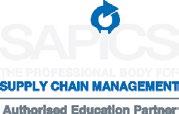

In addition to addressing their future skills shortage, prioritising learnership programmes for PwDs can significantly bolster an organisation’s B-BBEE compliance mandate, making it eligible for levies and grants provided by the Skills
1. ICT is not physically strenuous
Apart from telecommunications installers and technicians, most jobs in the ICT industry don’t tend to be physically strenuous – making it perfect for those who experience mobility challenges. The use of assistive technologies like speech to text means those living with a mobility disability or the hearing impaired can communicate with relative ease on email, WhatsApp, and through work applications.
It may require some getting used to and access to these technologies but there is nothing else stopping those who experience mobility challenges, speech impairments or hearing loss to enjoy a career as a programmer, systems analyst, business analyst or software engineer.
2. There are plenty of inclusive training institutions
Many training companies, like Dynamic DNA have adapted their learning environment to cater for people with a mobility impairment. Campuses for example are more accessible and inclusive, with flexible learning rolled out a pace and level that suits the individual.
For those with a hearing impairment, learning materials can be accessed in a visual format and our online platforms allows them to learn at their own pace in the comfort of their own home.
3. Remote work is an option
Thanks to the pandemic, remote working is now increasingly accepted which is great as it effectively removes the physical barrier of access to the workplace. Those with a physical disability can work from home, with many companies providing internet access as well as voice
Development Act and the Skills Development Levies Act. This includes mandatory and discretionary SETA funding and even SARS rebates.
The benefits really are twofold but just to drive home the message, Mabitsela shares her top five reasons why ICT could be a great career for people with physical disabilities and how businesses can market to PwDs below:
apps which allow them to make and receive calls through the company’s PABX from a mobile device.


Working from home is especially beneficial as many young people in South Africa do not have access to a specialised vehicle for travel and many workplaces are difficult to access. This way the barriers for people living with a disability are removed even further.
4. Workplace readiness and mentorship availability
People with disabilities may be nervous to integrate into the work environment, however companies like Dynamic DNA are on hand to provide learnerships with full learner management. This includes training, hiring, workplace mentorship to successful employment, and complete administrative management of the skills development process to ensure a company investing in PwDs also benefits from tax credits and levy reimbursements.
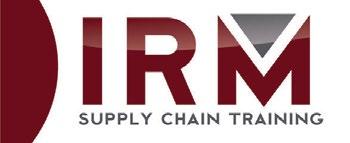

5. Enjoy the flexibility of a call centre job
If a person with a physical disability does not have an aptitude for a technical ICT qualification, working in a call centre will provide them with flexibility and they don’t need a specific qualification to enter this field. All they need is a personal computer, telephone, and headset. There are many call centre jobs available in South Africa, and there are already several people living with a disability doing them.
Mabitsela concludes by urging everyone help create more opportunities and inspire learners with a disability to reach for their dreams and know that a better future is possible.


Known as “The Jewel of Education on the Garden Route”, Glenwood House is situated in the picturesque town of George in the Western Cape. Safe, on-campus, weekly and termly boarding facilities are offered to High School Girls and Boys with a ‘home away from home’ experience. Glenwood House is an independent school that offers competitive sports and a curriculum

IN PURSUIT OF EXCELLENCE
PRE-PREPARATORY | PREPARATORY | COLLEGE

WEEKLY AND TERMLY BOARDING
Grade 000-12
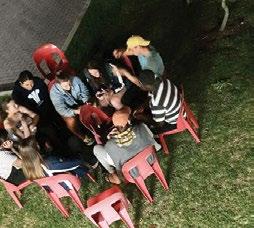
Tel: 087 354 8315 | Glenwood Avenue, George | glenwoodhouse.co.za


that develops critical and creative thinkers as well as producing the best IEB matric results in the Southern Cape region. George airport offers direct flights from major airports and the town is easily accessible on all major routes.



Choosing a school for your child is one of the biggest decisions you’ll make as a parent because the start of your child’s academic life should be nothing short of exceptional.
Elkanah House sets a new standard in private education with a dedication to excellence across every aspect of the school.
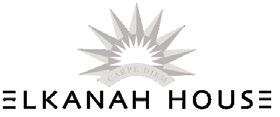


Our innovative, challenging and enriching academics, as well as performing arts and sports programmes, ensures our students leave with outstanding academic results, a lifelong love of learning, confidence and a firm value system that arms them to embrace the challenges and opportunities in life.

Injuries happen anywhere, anytime. Fast and effective administration of First Aid can, preserve life, prevent injury from worsening and promote recovery.
It’s an employer’s responsibility to ensure that all First Aiders in the workplace complete Accredited First Aid training and possess the necessary Certificates of Competence.
St John Facilitators are subject matter experts who regularly receive continuation training, keeping up to date with the latest First Aid protocols. We pride ourselves on being a leading global First aid training provider. We offer various courses, from First Aid to Basic Fire Fighting and Homecare.
Call us to book your training today:
Bloemfontein 051 444 6276

Cape Town 021 461 8420
Durban 031 305 6588
East London 043 722 9840
Fish Hoek 021 782 3306/20
Grahamstown 046 636 1650
Johannesburg 011 403 4227


Kimberley 053 838 2519/8
Port Elizabeth 041 364 2701/2


Somerset West 021 851 7394
We stock a wide range of First Aid kits - order today St John is a Level 1 contributor to B-BBEE www.stjohn.org.za

Divine Favour Progressive College
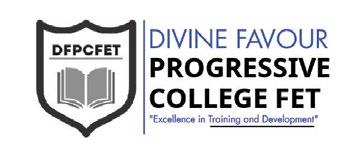
FET is a DHET registered private further education and training college and accredited with QCTO, UMALUSI, and HWSETA.








DHET REGISTRATION NO: 2019/FE07/035 | EXAM CENTRE NO: 08 9999 3823
Registrations are open to study any of our recognised and accredited certi cates, diploma and occupational quali cations:

NATED Engineering Studies N1 - N6





NATED Business Studies N4 - N6

Occupational Quali cations from NQF Level 3 Matric re-write/upgrade Specialised skills acquisition
For more information, contact:
T: +27 (0)12 023 1299 or +27 (0)87 711 1235


E: info@dfpcfet.co.za or dfpcfet@gmail.com
W: www.dfpcfet.co.za



Address: 293 Madiba St, Cnr Madiba & VanDerWalt St, Pretoria Central, 0002 (6th Floor, Navy House)



FOLLOWING THE ECONOMIC DOWNTURN SEEN OVER THE PAST COUPLE OF YEARS, THE SOUTH AFRICAN CONSTRUCTION INDUSTRY IS QUICKLY REGAINING STRENGTH AND COMPANIES ARE HIRING TO MEET GROWING DEMAND.
 By Roelof van den Berg, CEO of the Gap Infrastructure Corporation
By Roelof van den Berg, CEO of the Gap Infrastructure Corporation
Construction consistently ranks among the top 10 largest industries in the country, adding over a million rand to the national GDP and employing roughly 1.2 million South Africans every year. As a result, the industry is not only a key employer but has the potential to substantially lower the country’s worryingly high unemployment rate.
Construction industry has seen the largest rise in hiring activity of all sectors
According to research conducted by online recruiter CareerJunction, the building and construction industry had seen a rise in hiring activity.
If construction companies can keep this momentum going on the basis of increased project investment levels from both the public and the private sectors, then construction can grow into a truly influential industry and even more significant employer within the next few years.
Notably, in keeping with the needs of the local labour market, the construction industry has an abundance of job opportunities for unskilled and semi-unskilled labourers who are often overlooked by other industries. This is particularly significant for making a meaningful difference towards addressing unemployment, poverty, and inequality, and creating positions suited for our general workforce – a potential which has been restricted in previous years owing to a lack of investment.
For companies looking to improve their hiring practices and help combat unemployment, a few steps need to be taken:
1 2 3
The South African construction industry is currently under extreme pressure due to a pronounced shortage of skilled and qualified workers. The result is intense competition among firms for available skilled workers, while key positions often go unfilled for extended periods, which in turn further impacts the unemployment rate.

To help combat this shortage on a company level, Gap Infrastructure Corporation (GIC) endeavours to appoint unskilled and semi-skilled workers when possible, provide in-house training, and help them to acquire more experience and qualifications.
Vacant positions add to unemployment for the time they remain open. Leaving one position unfilled for one month may not seem like it could have much of an impact but spread that out over many companies across the sector, and the numbers start to add up.
Construction companies can choose to emphasise hiring, speed up hiring processes, do away with unnecessary and restrictive practices, and get employees into the office and onto the worksite sooner.
Economic slowdowns, downturns, and recessions usually negatively impact employment numbers as businesses are forced to retrench employees or close their doors. The effects are then felt for years after, as companies undergo the slow process of growth and re-hiring to build capacity.
But those construction companies that prepare for tough times should have enough capital to carry themselves through a few months of decreased business. This in turn allows these companies to retain skilled employees in whom the business has invested time and money. These companies are also better off when the economy rebounds and other companies are forced to search for employees.
The construction industry is pivotal for South Africa’s ongoing prosperity, from building homes and offices to ensuring that South Africans have access to crucial basic services and key infrastructure. The industry further has the ability and a responsibility to create jobs and develop people as much as it does the country’s buildings and infrastructure.
IN TODAY'S FAST-PACED, GLOBALISED ECONOMY, COMPANIES MUST CONSTANTLY ADAPT AND INNOVATE TO STAY AHEAD OF THE COMPETITION.
The most valuable asset of any organisation is its talent; individuals with the power skills and leadership qualities necessary to drive growth and success. As businesses in South Africa navigate a challenging landscape marked by political uncertainty, economic instability, and social disparities, it is more critical than ever for organisations to cultivate and nurture strong leaders who can steer their teams toward success. In this article, we explore the importance of power skills and leadership in fostering talent, and how they contribute to a company's competitive edge in the marketplace.

Power skills, the foundation of success, are often referred to as ‘soft skills’, and are a combination of personal attributes and interpersonal skills that enable individuals to work effectively with others, solve problems, and adapt to change (Dugan, 2021). These skills encompass communication, collaboration, critical thinking, adaptability, and emotional intelligence, among others.
In a world that is becoming increasingly interconnected and complex both from a communication and technology point of
view, power skills are essential for navigating the challenges that come with an exponentially evolving business landscape.
Soft skills have become increasingly important in today's workforce because they enable employees to navigate complex and dynamic work environments more effectively than hard skills alone. While hard skills are still essential for carrying out technical tasks, power skills are what enable individuals to excel in their roles by fostering strong relationships, problem-solving, and adaptability (Robles, 2012).
For example, strong communication skills are vital for ensuring that teams can work together seamlessly and effectively. A skilled communicator can articulate their thoughts clearly and concisely, while also actively listening and responding to feedback from others. This promotes a collaborative environment that encourages innovation and the sharing of ideas. Another power skill, emotional intelligence, allows employees to understand and manage their emotions and the emotions of others. This is crucial for conflict resolution and building trust among colleagues. Lastly, adaptability is a key power skill that allows employees to embrace change, learn from new experiences, and evolve in response to new challenges
Among power skills, leadership stands out as the most crucial for success and is the ultimate power skill. Leaders possess the unique ability to inspire, motivate, and empower others to achieve their best. They are visionaries who can see the bigger picture and strategise to achieve long-term goals, while also being able to empathise with their team members and address individual needs. Effective leaders are adaptable, agile, and possess a growth mindset, enabling them to learn from mistakes and continually evolve to meet the demands of their environment (Bennis, 2009).
Leadership stands out as the ultimate power skill because it encompasses a range of soft skills that are crucial for guiding and motivating teams to achieve their goals. Leaders must be able to communicate a clear vision, inspire their team, and make strategic decisions in the face of uncertainty – something essential- for navigating life and business in South Africa.
For instance, a great leader must have the ability to delegate tasks effectively, recognising each team member's strengths and assigning responsibilities accordingly. This not only optimises productivity but also fosters a sense of ownership and empowerment among employees.
Furthermore, leaders must be skilled in conflict resolution, addressing disagreements or disputes in a fair and empathetic manner to maintain a positive and harmonious work environment.
Another example of strong leadership is the ability to provide constructive feedback, helping team members identify areas for improvement while also recognising and celebrating their successes. This approach fosters a culture of continuous growth and development, ensuring that both the individual and the organisation can adapt and succeed in the face of changing circumstances (Northouse, 2018).
To foster a strong talent pool equipped with power skills and leadership qualities, South African companies must invest in continuous learning and development. This can be achieved through various methods, including mentorship programs, leadership development workshops, and on-the-job training (Bower, 2021).
Additionally, creating a supportive work environment that encourages open communication, collaboration, and the sharing of ideas can help employees to develop and hone their power skills.
Furthermore, in the South African context, it is essential for organisations to address the social disparities that can hinder equal access to opportunities. By actively working towards creating an inclusive and diverse workplace, companies can tap into a wider pool of talent and ensure that they are nurturing the best and brightest leaders of tomorrow (Nkomo, 2020).
One example of this is implementing diversity and inclusion initiatives, such as targeted recruitment programs, unconscious bias training, and mentorship schemes aimed at supporting underrepresented groups. These initiatives can help break down barriers to entry and promote a more equitable work environment, ultimately empowering a diverse range of individuals to succeed and lead (Hunt, Layton & Prince, 2015).
In conclusion, in the challenging and competitive landscape that defines the South African business environment, companies must prioritise developing and nurturing talent with the power skills and leadership qualities necessary to succeed.
By fostering a culture of learning, growth, and inclusivity, organisations can not only equip their employees with the skills needed to navigate complex challenges but also attract and retain top talent. Ultimately, investing in power skills and leadership development is the key to unlocking the full potential of South Africa's workforce and driving long-term success in an increasingly competitive global market.


NMG SmartAlec equips you with knowledge to understand financial ma�ers through easy to grasp, story-driven educa�onal content that is delivered to your mobile phone wherever you are.


